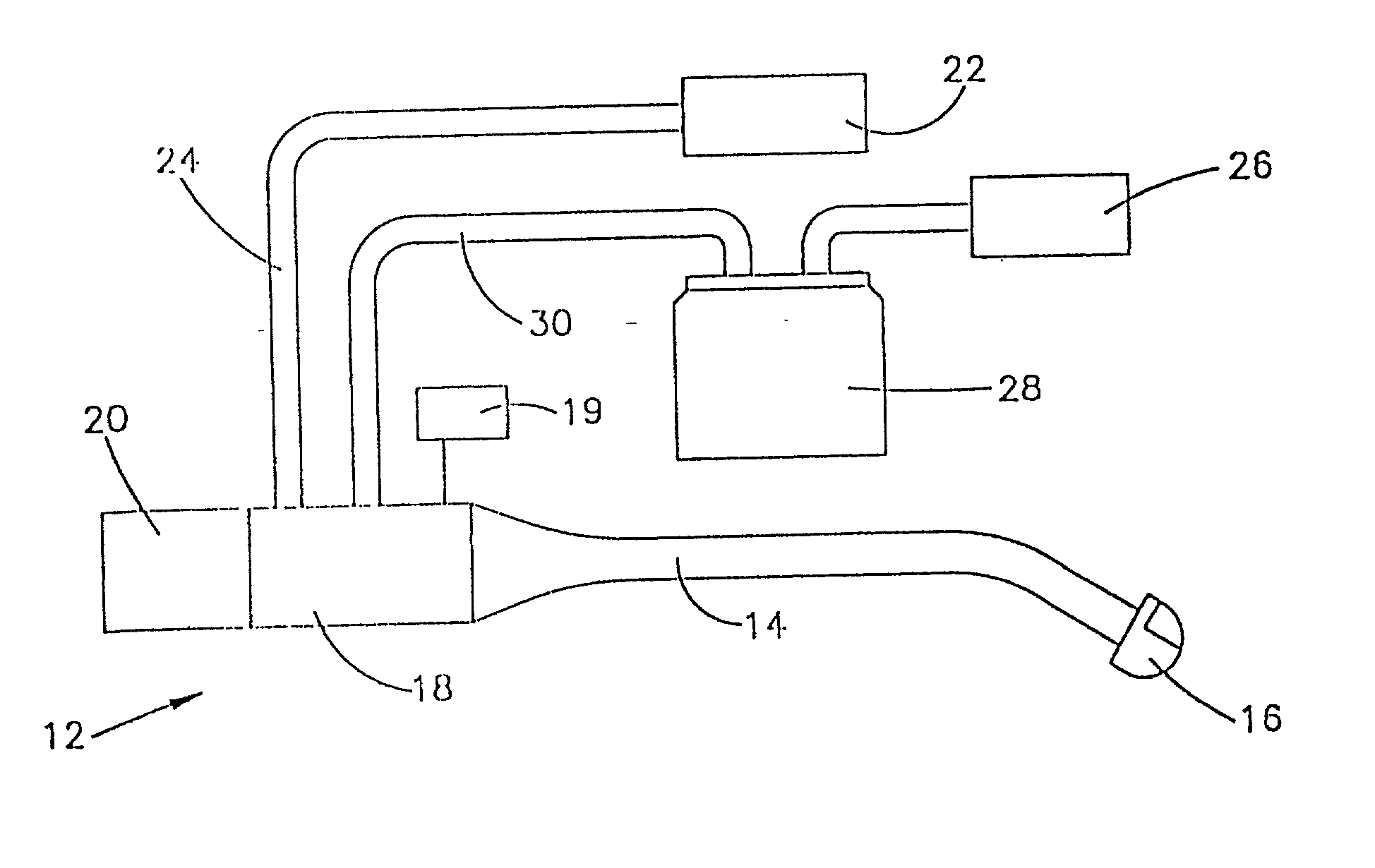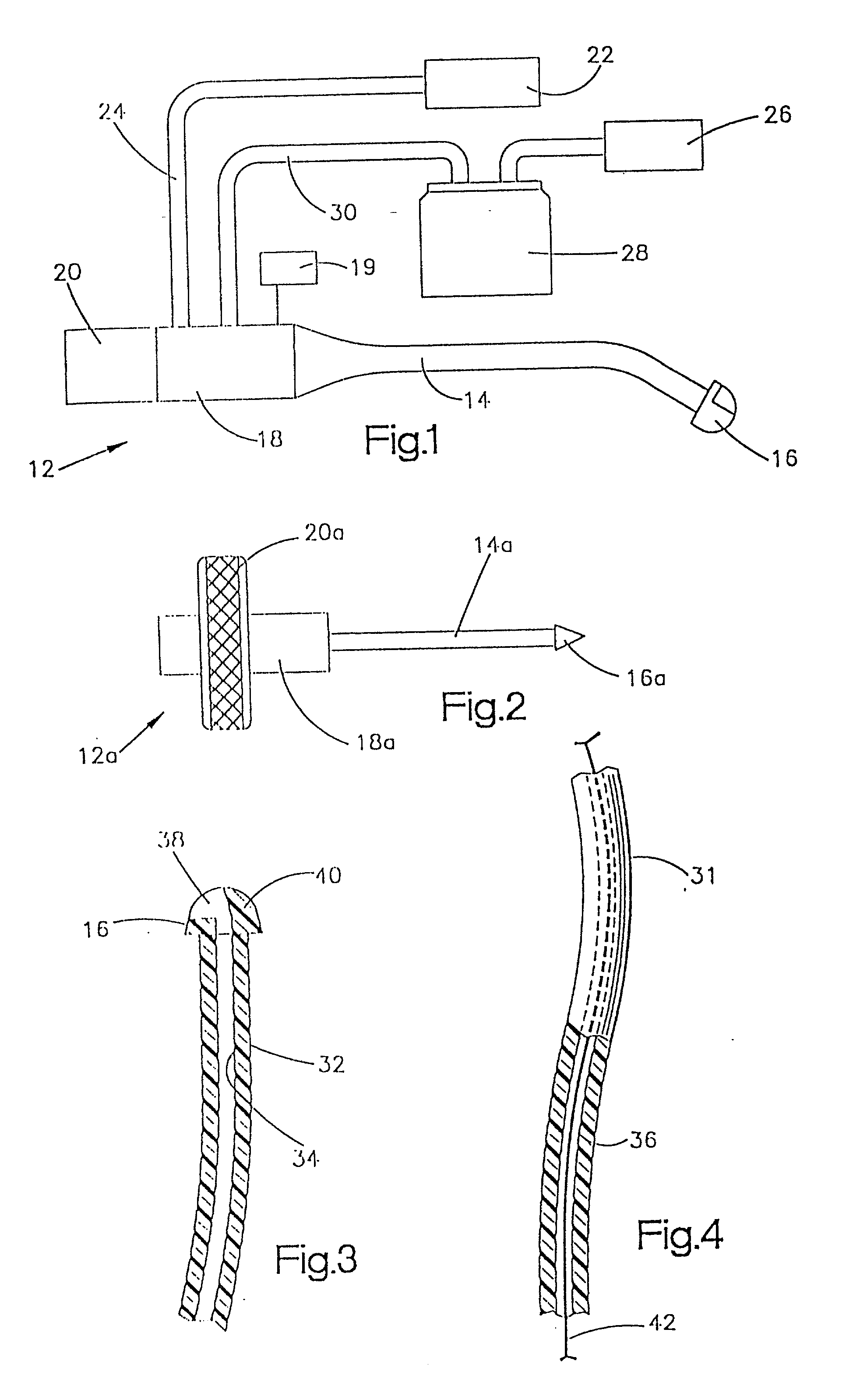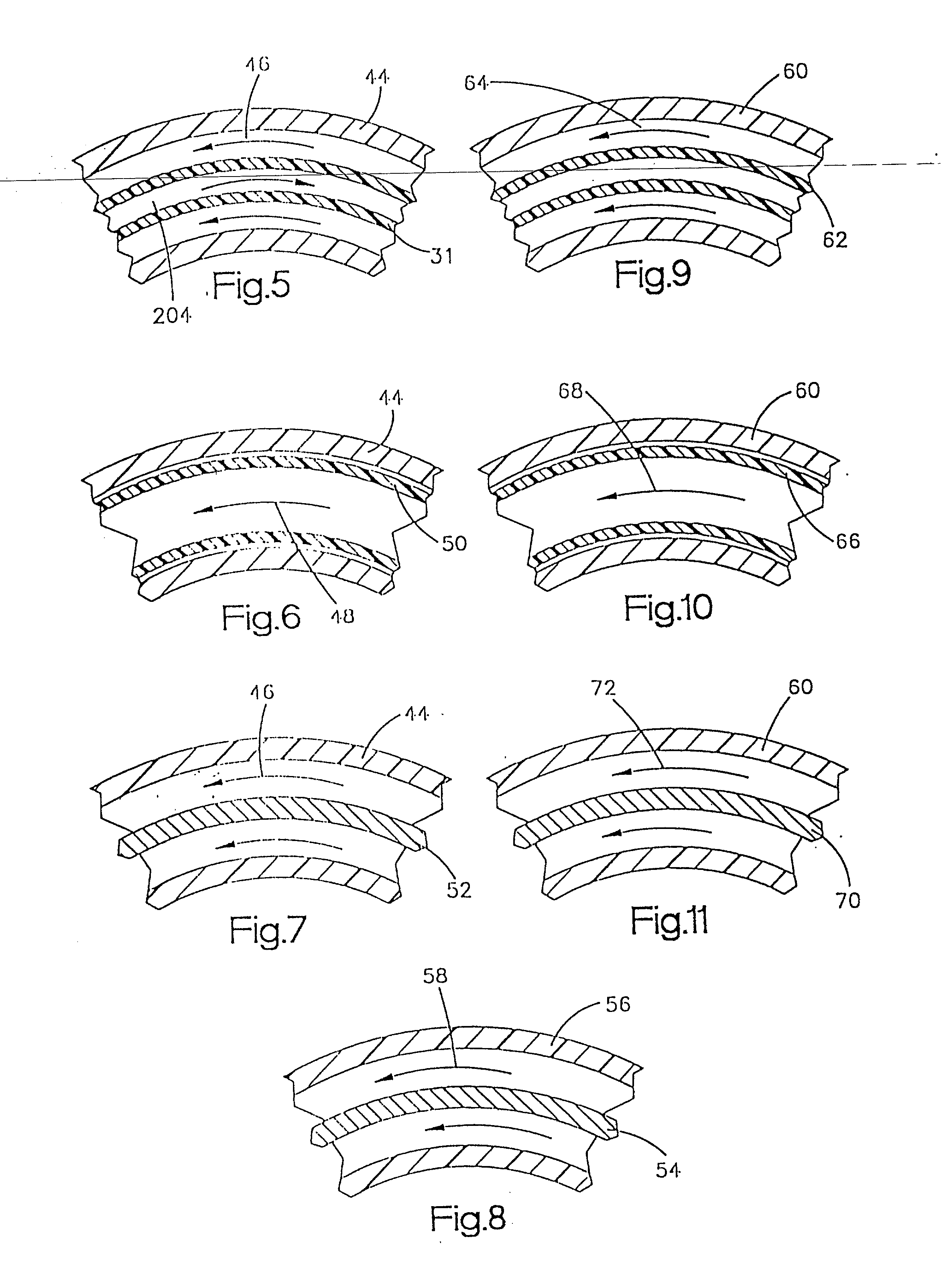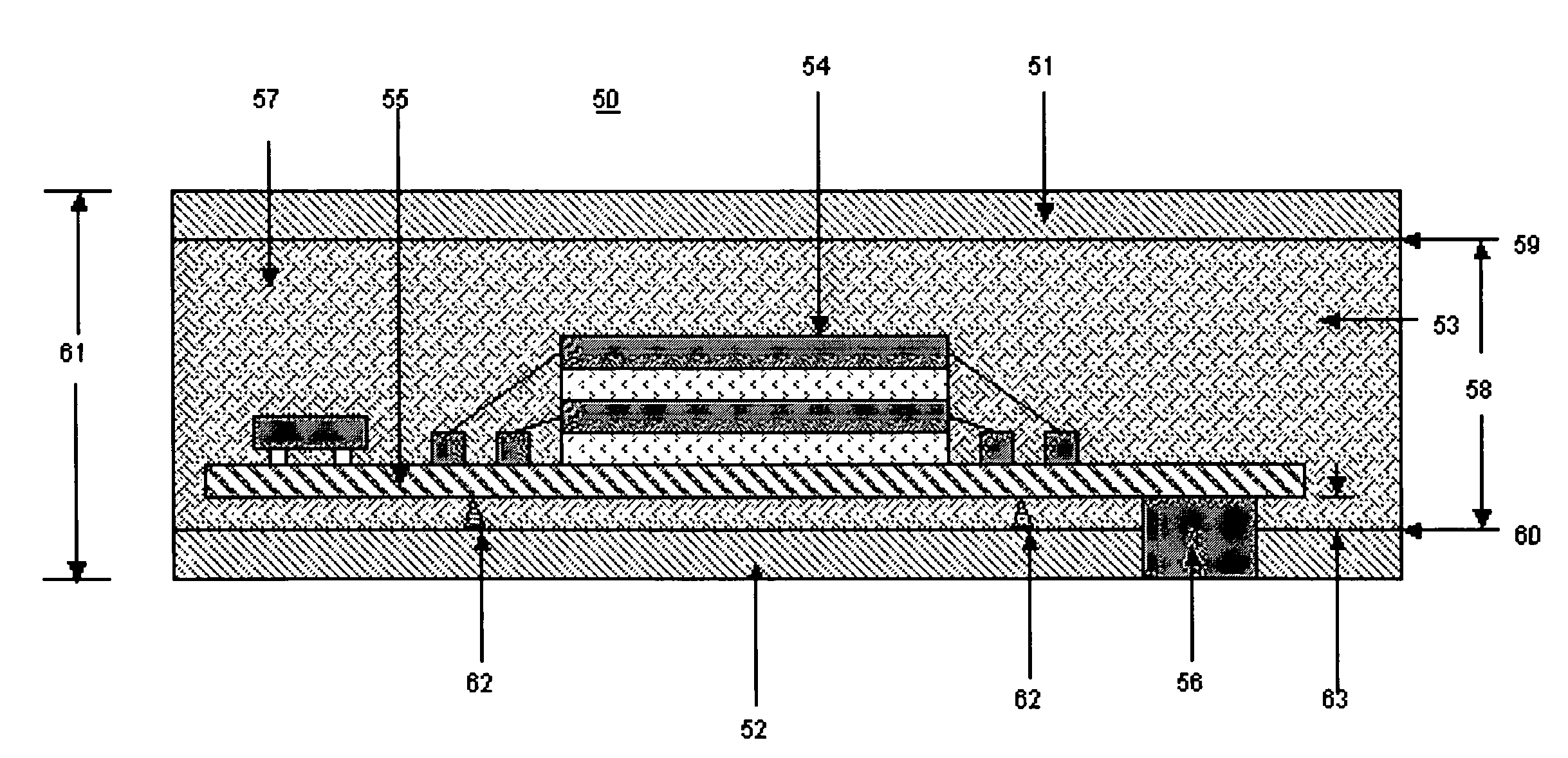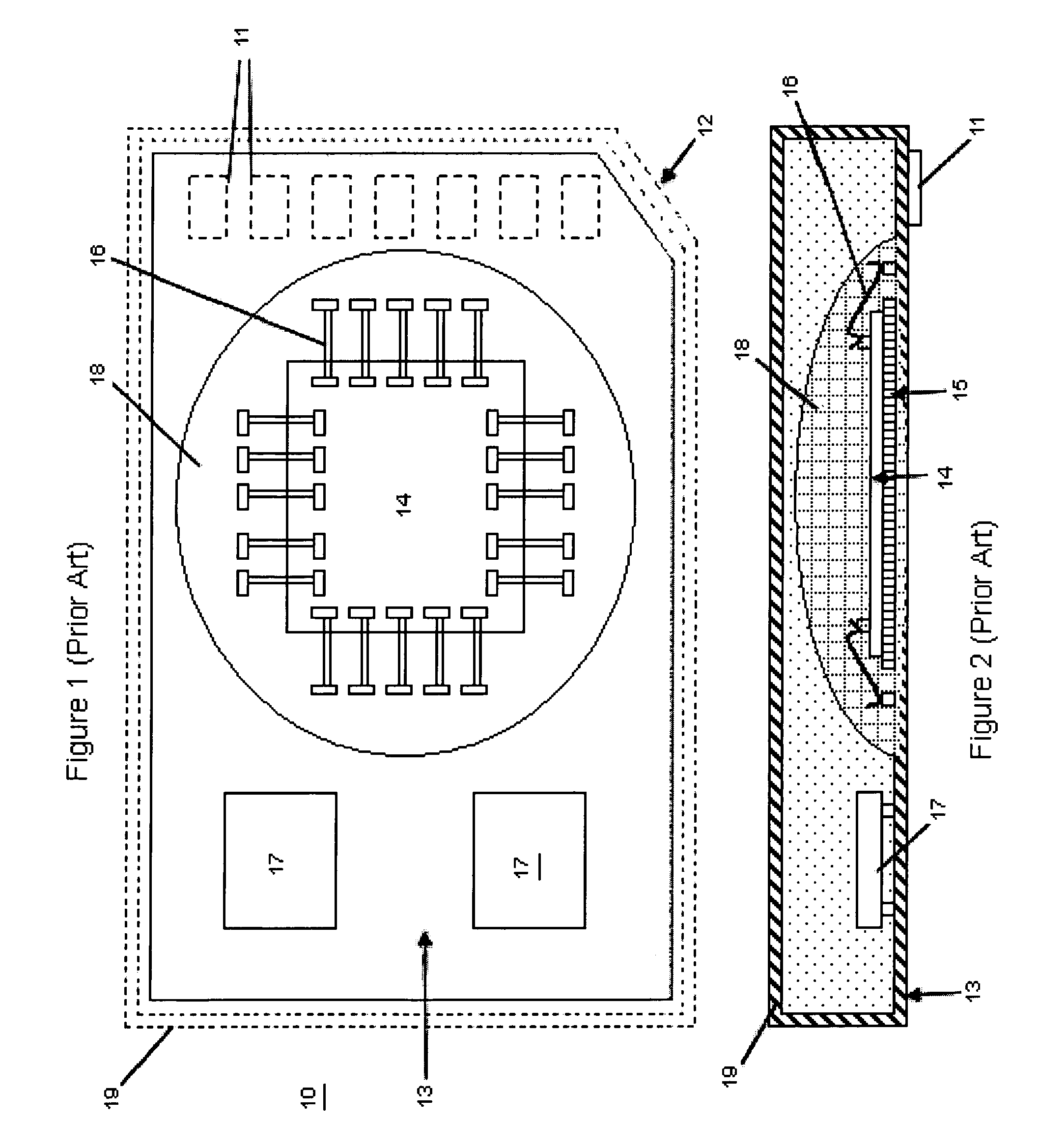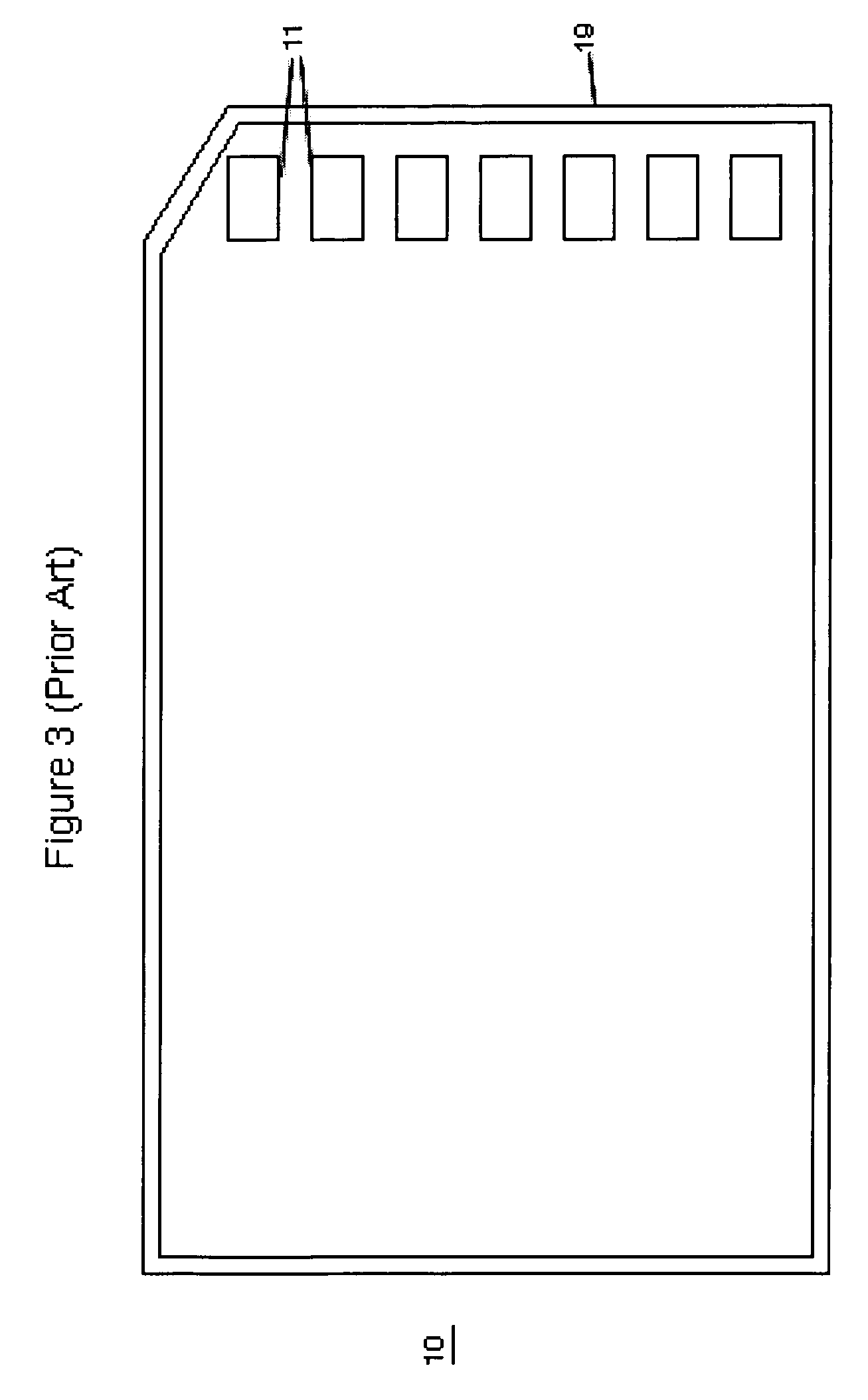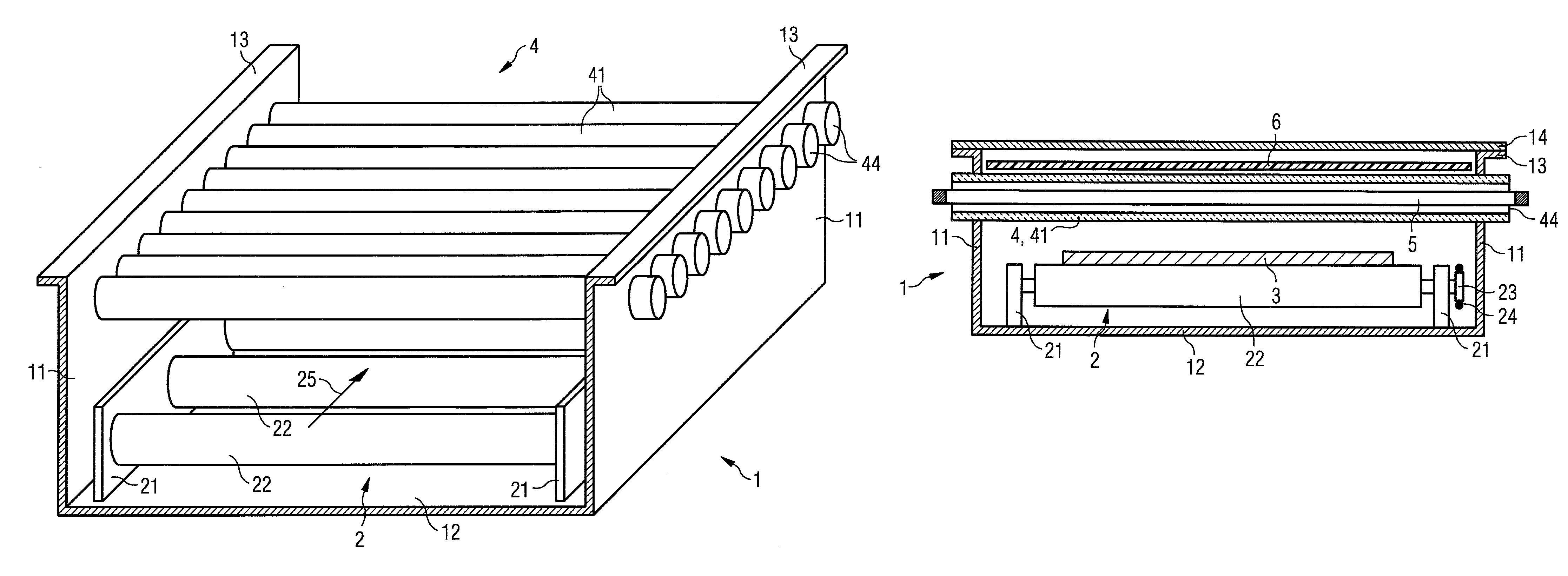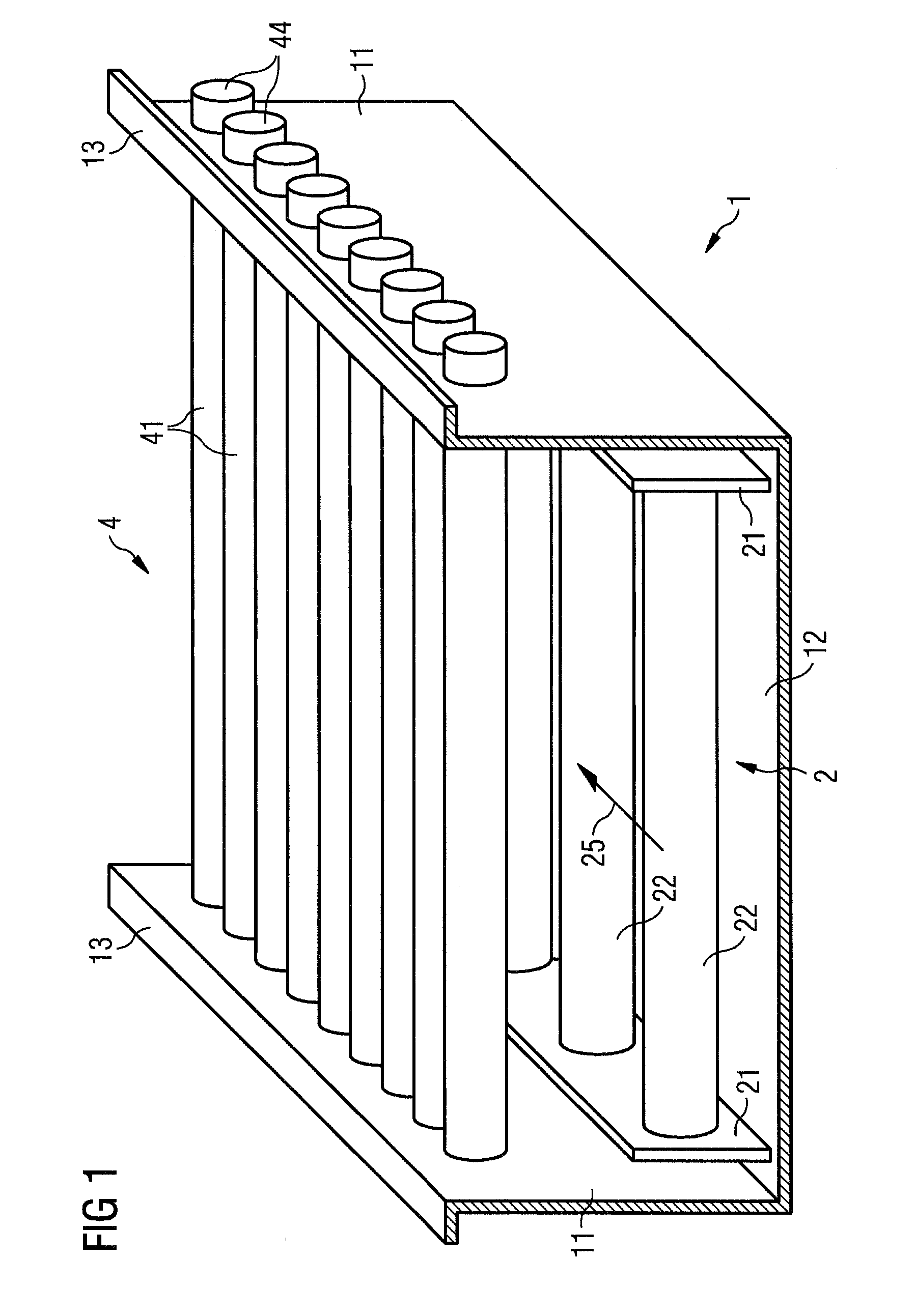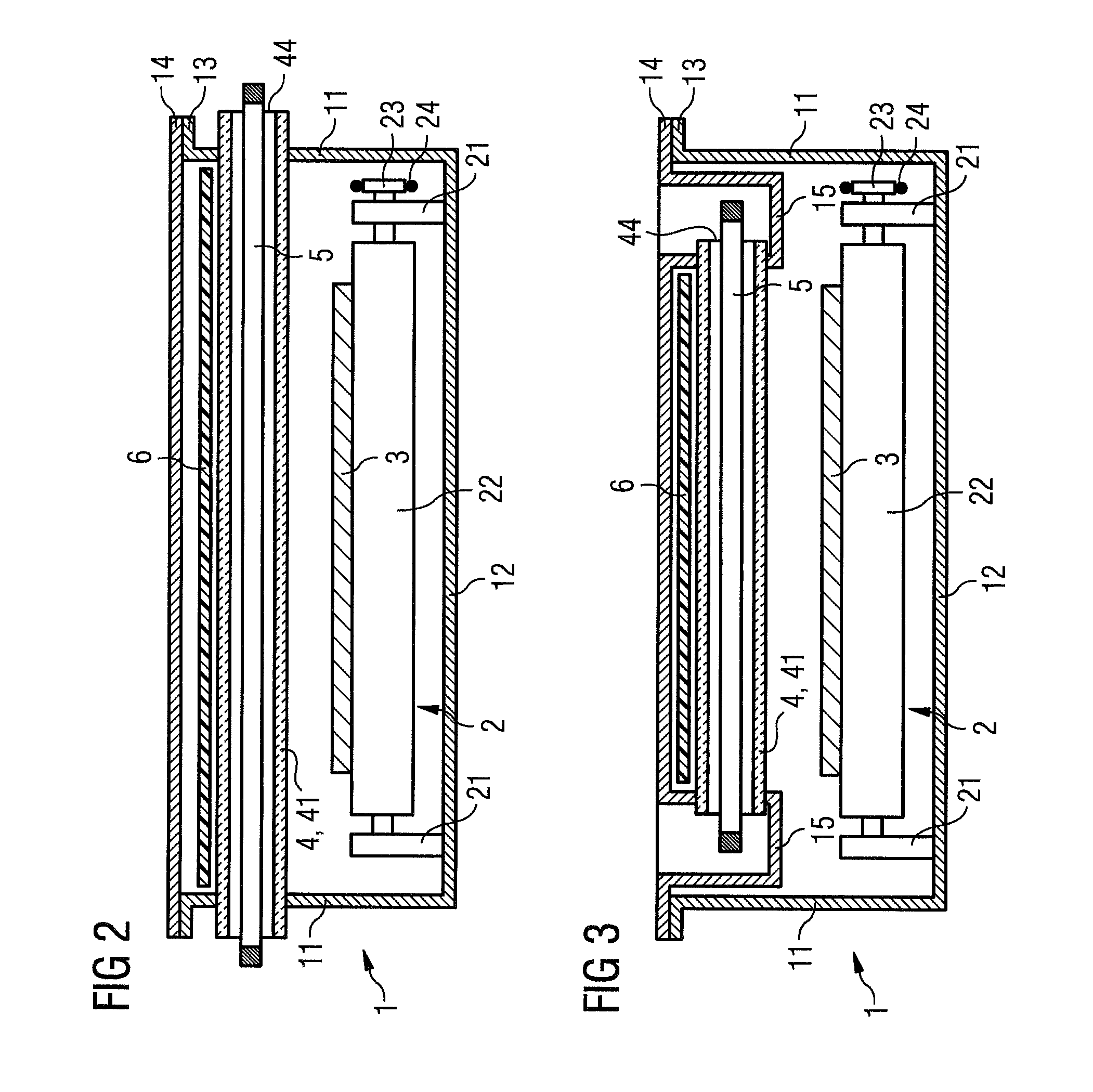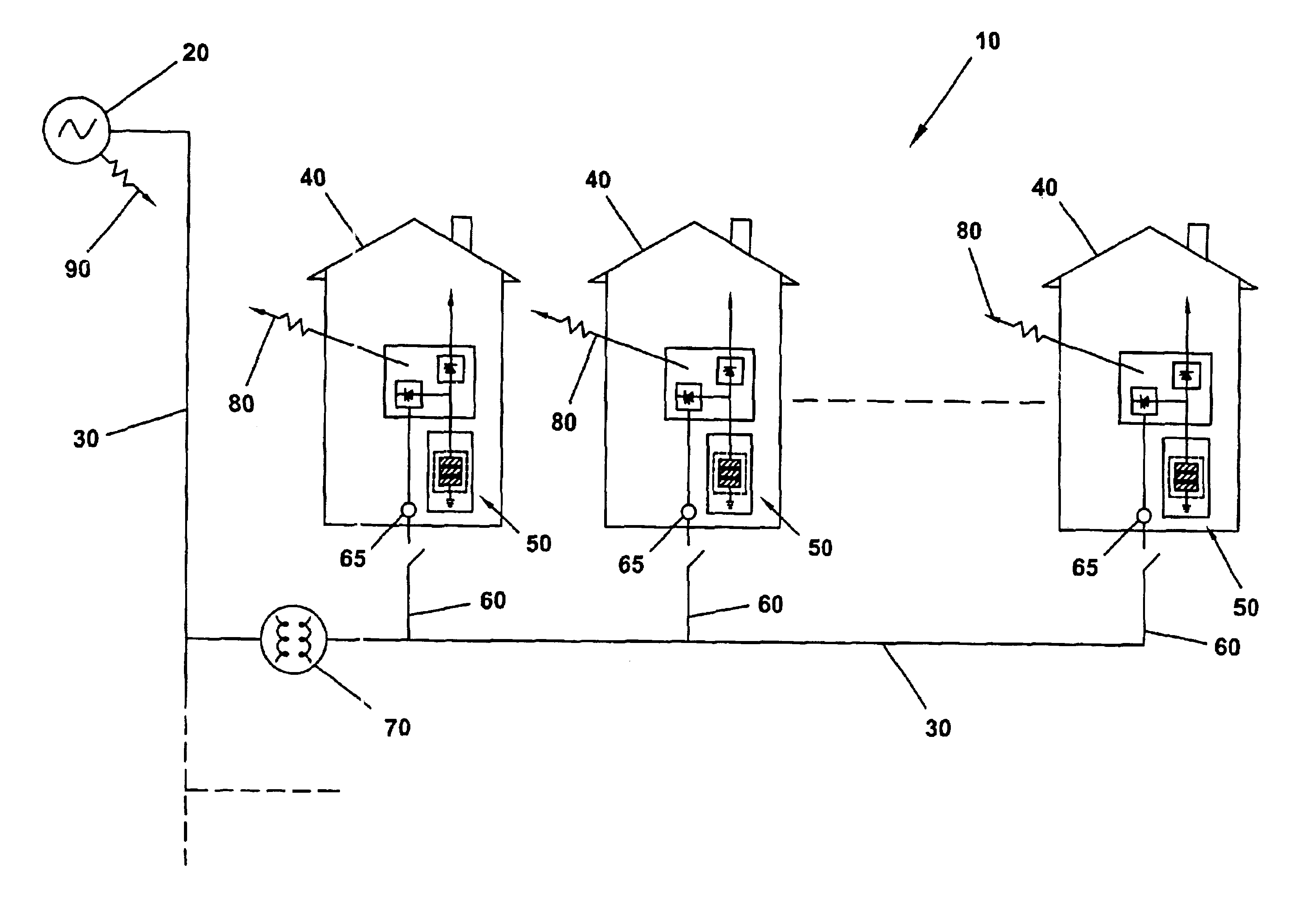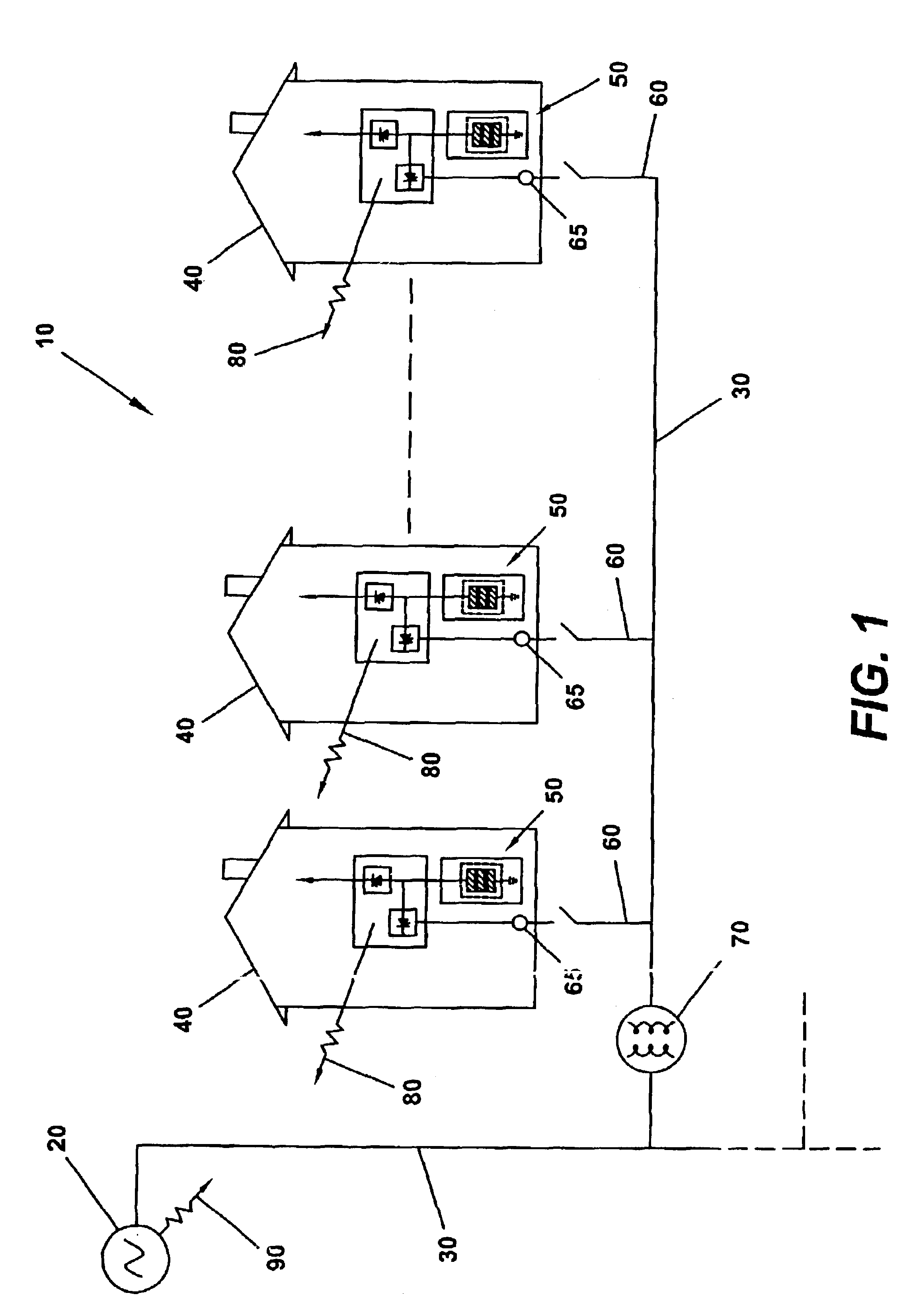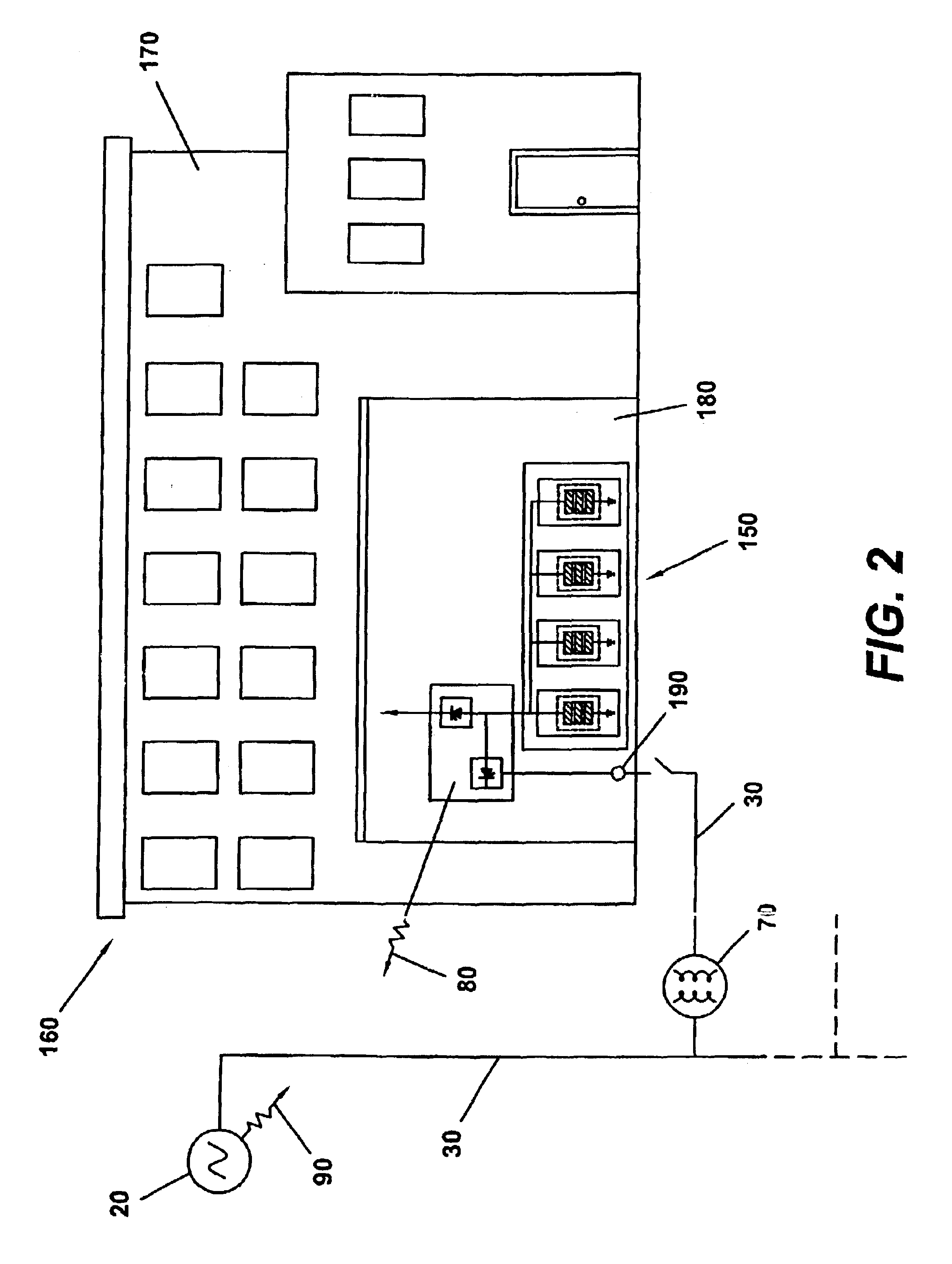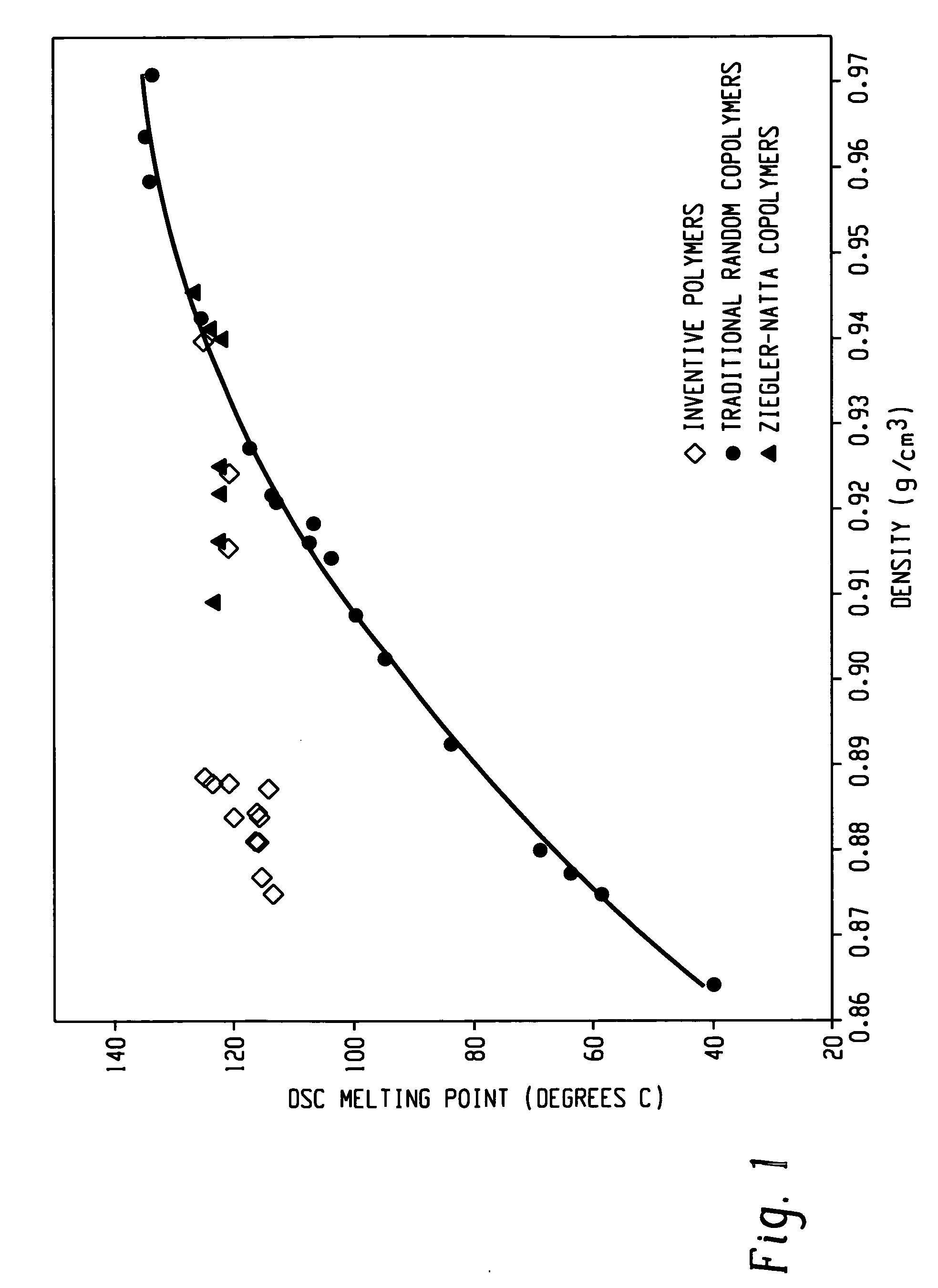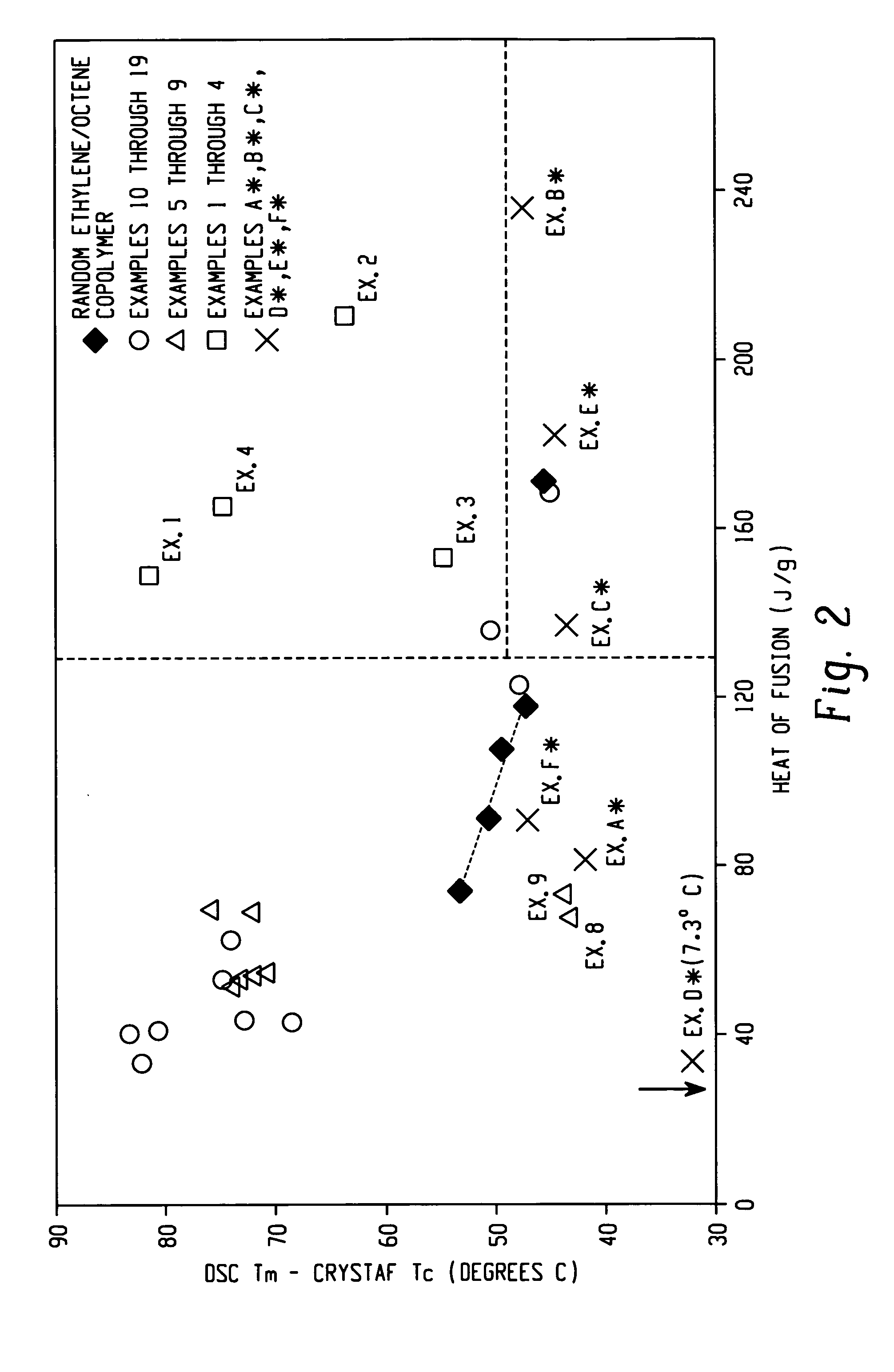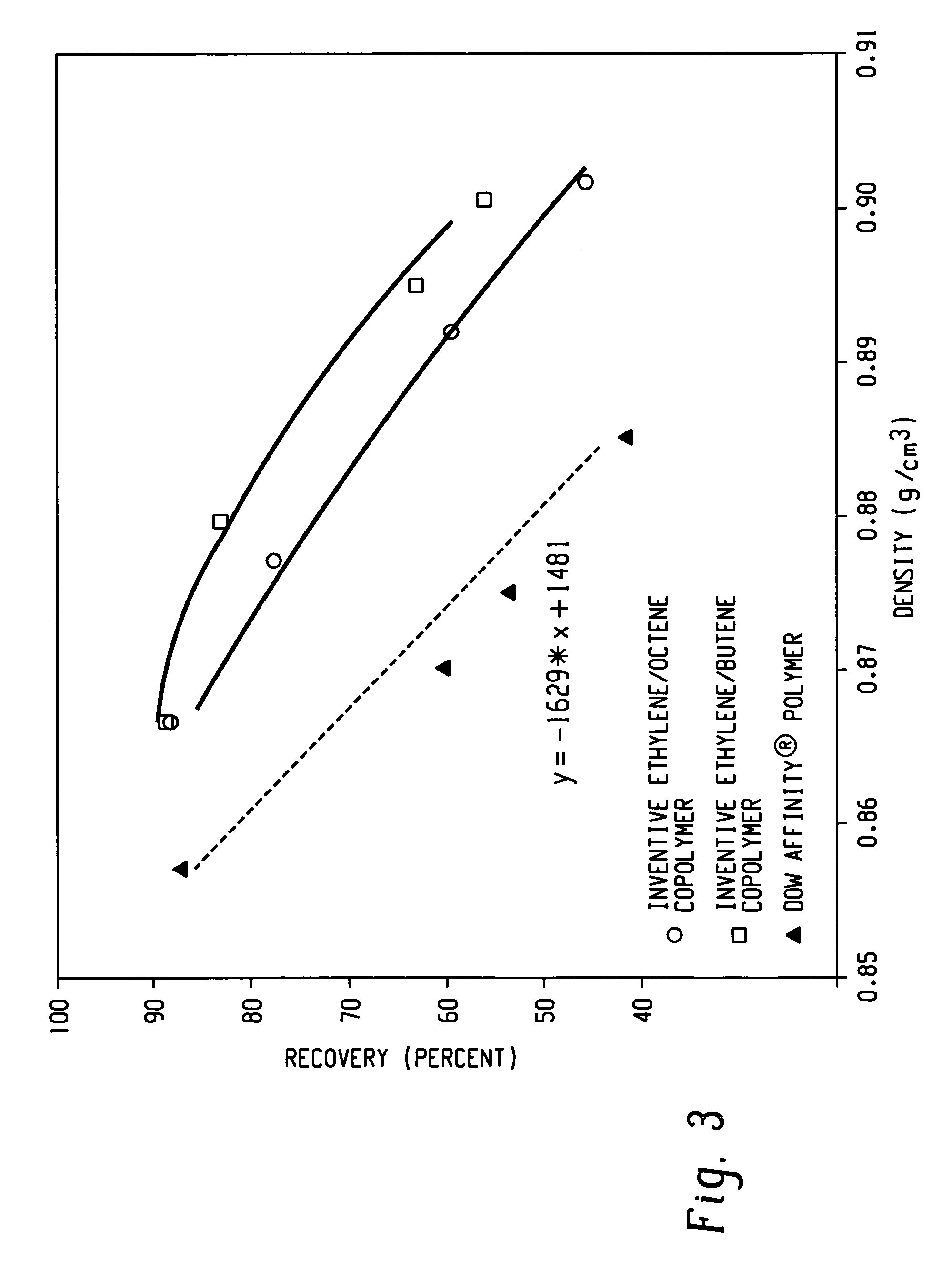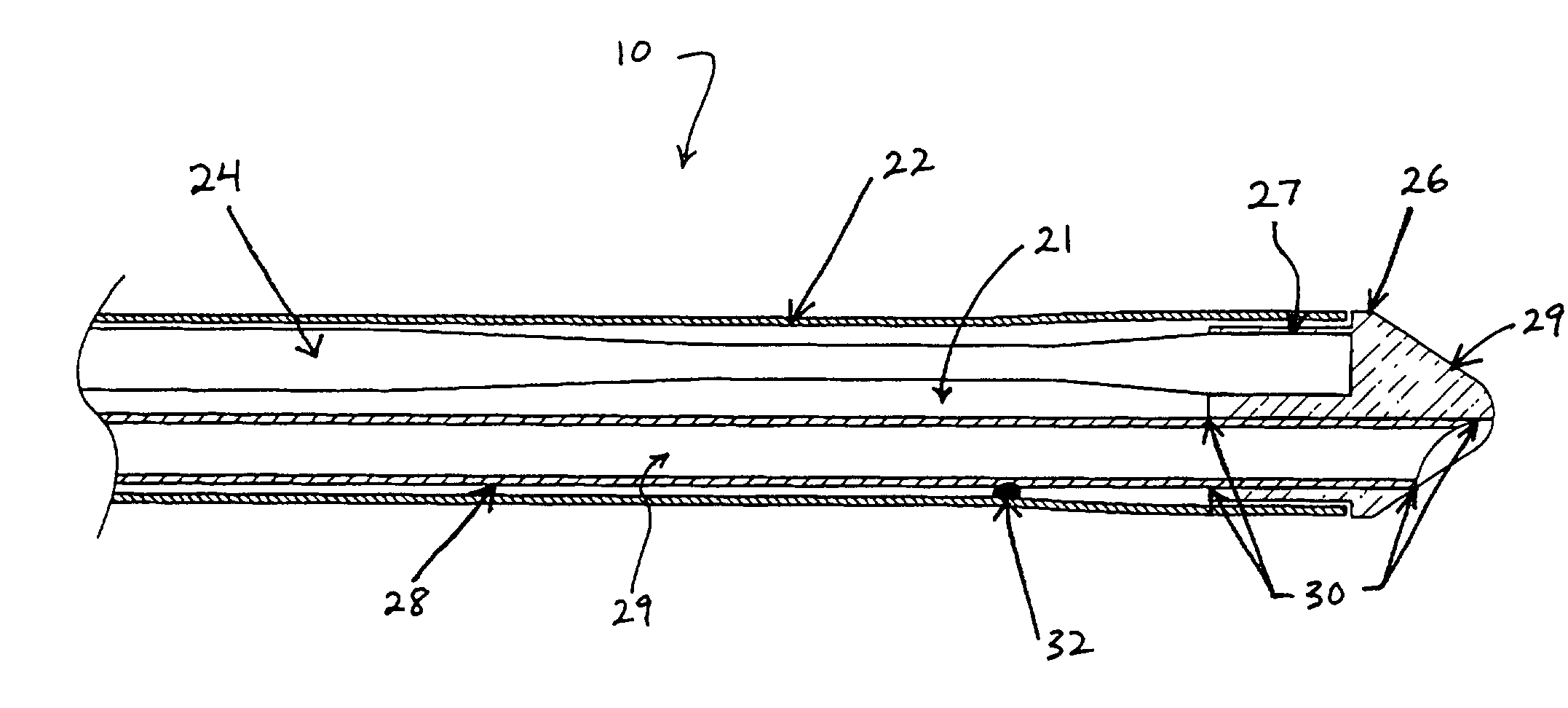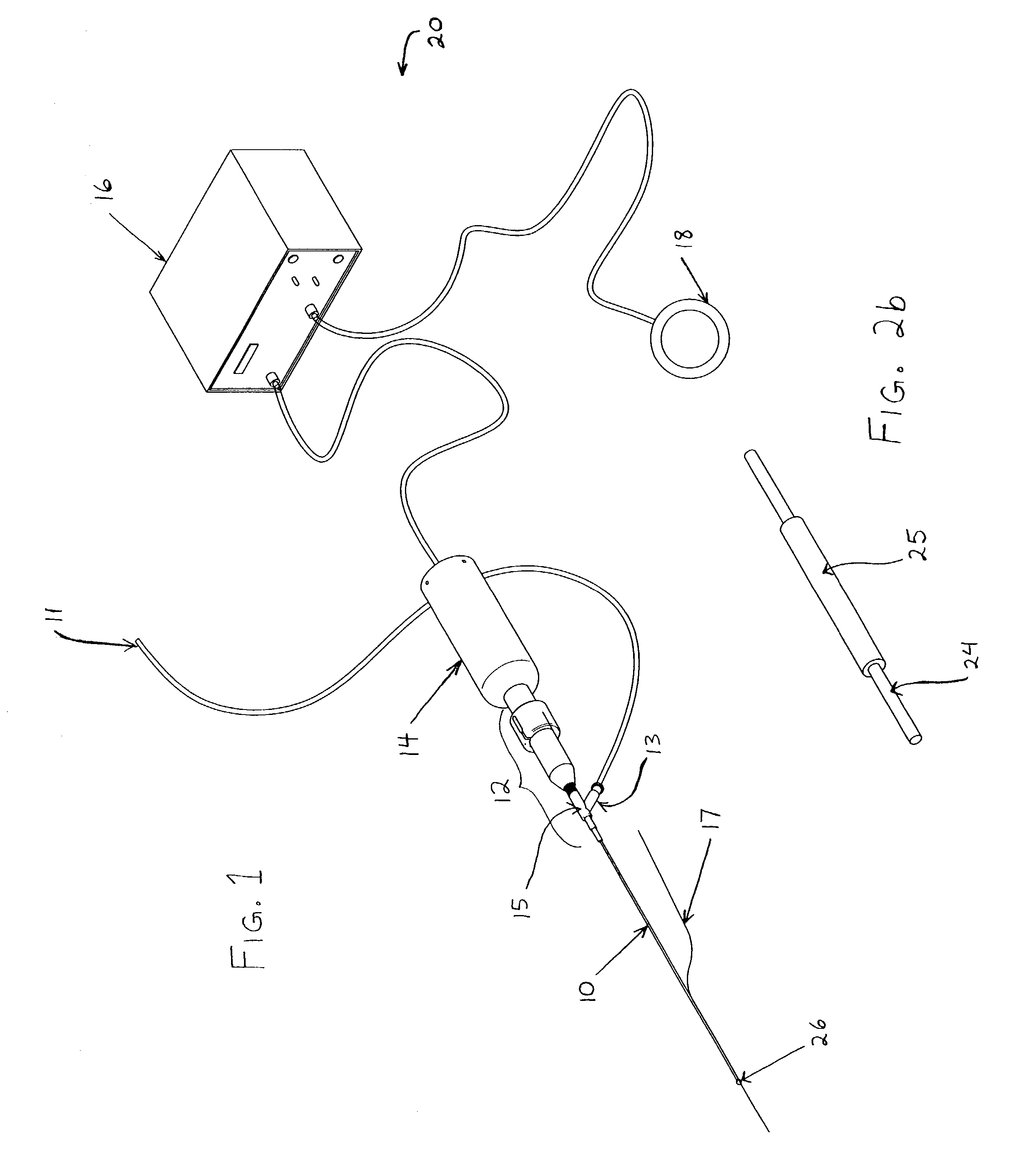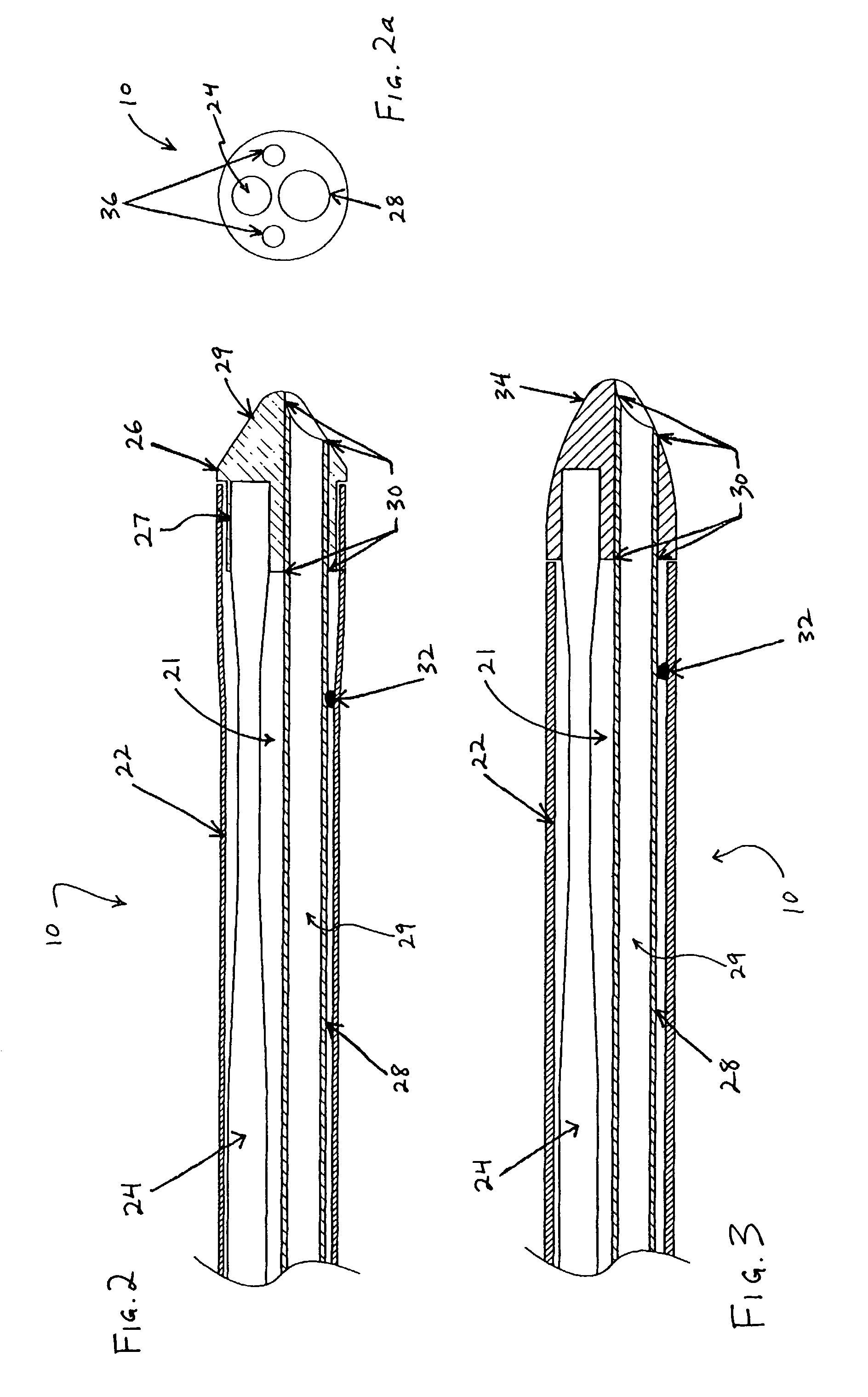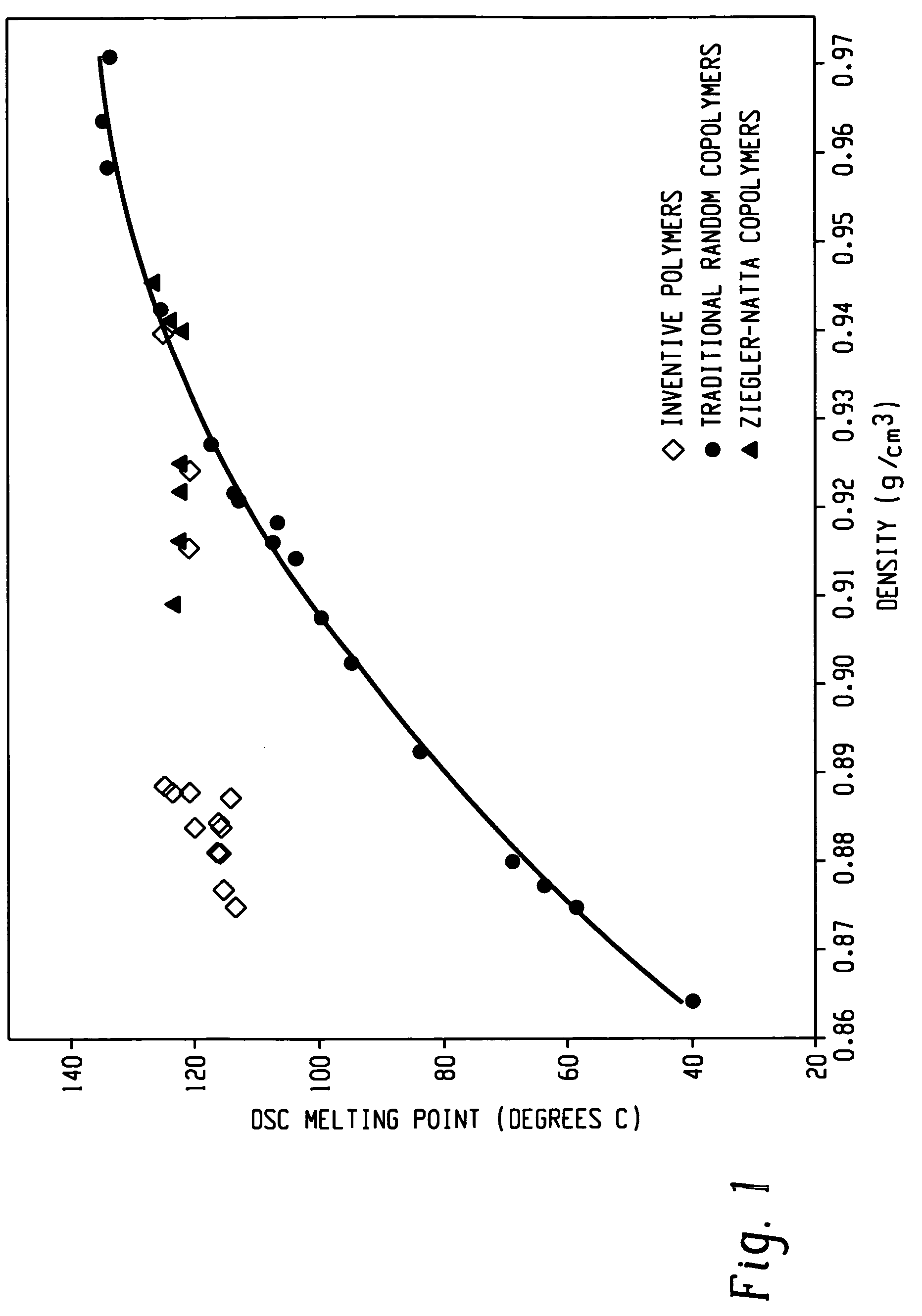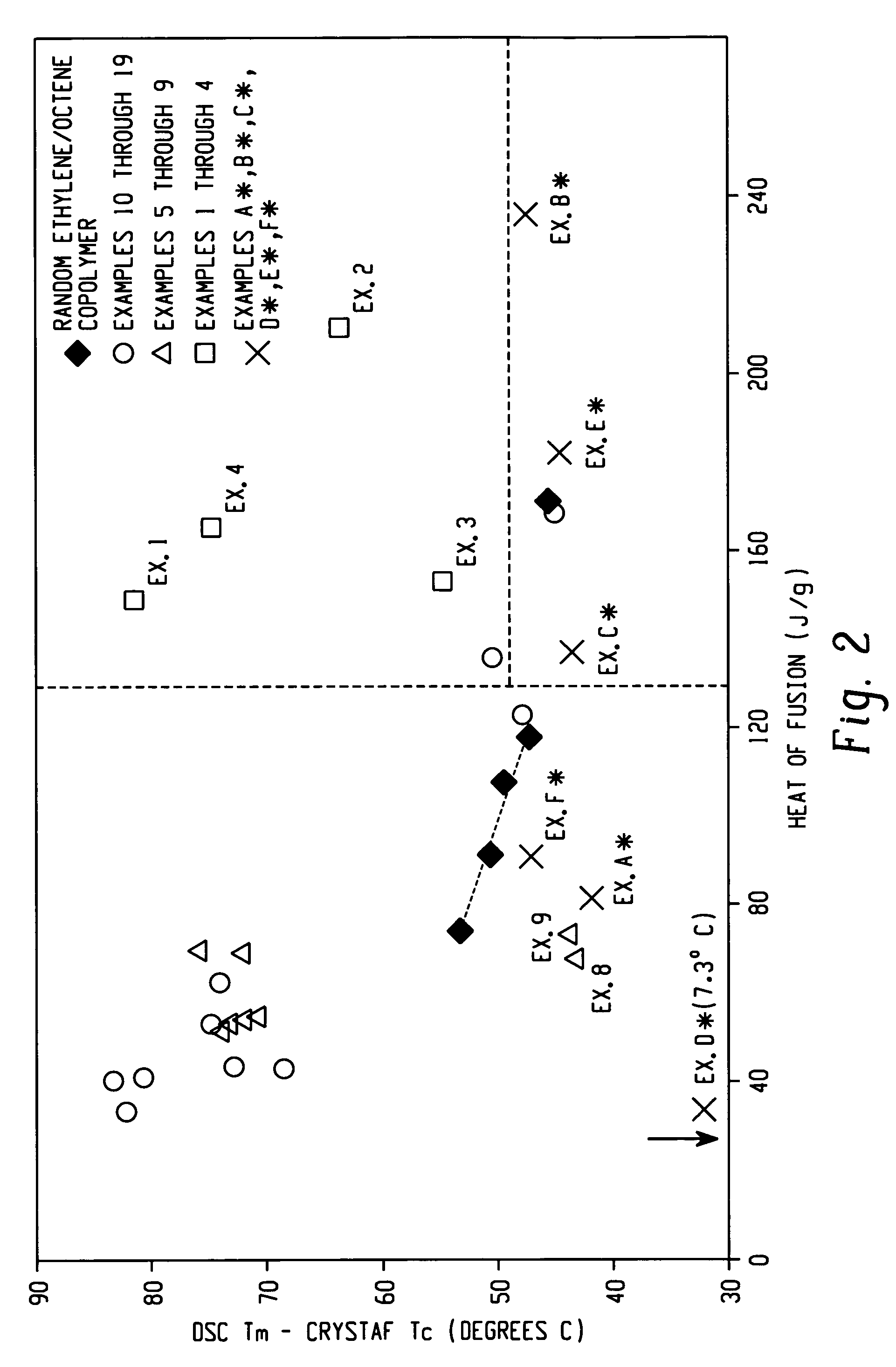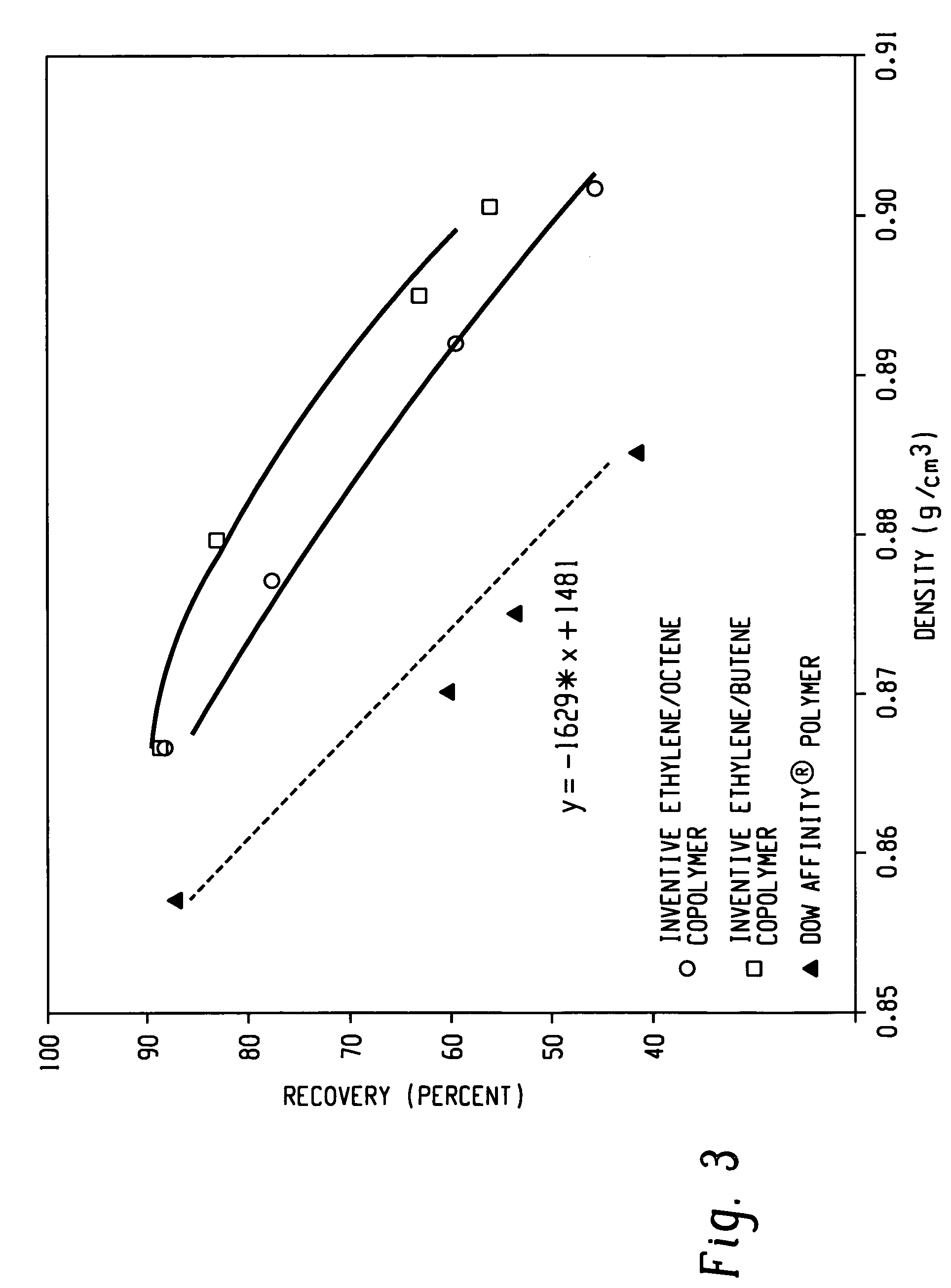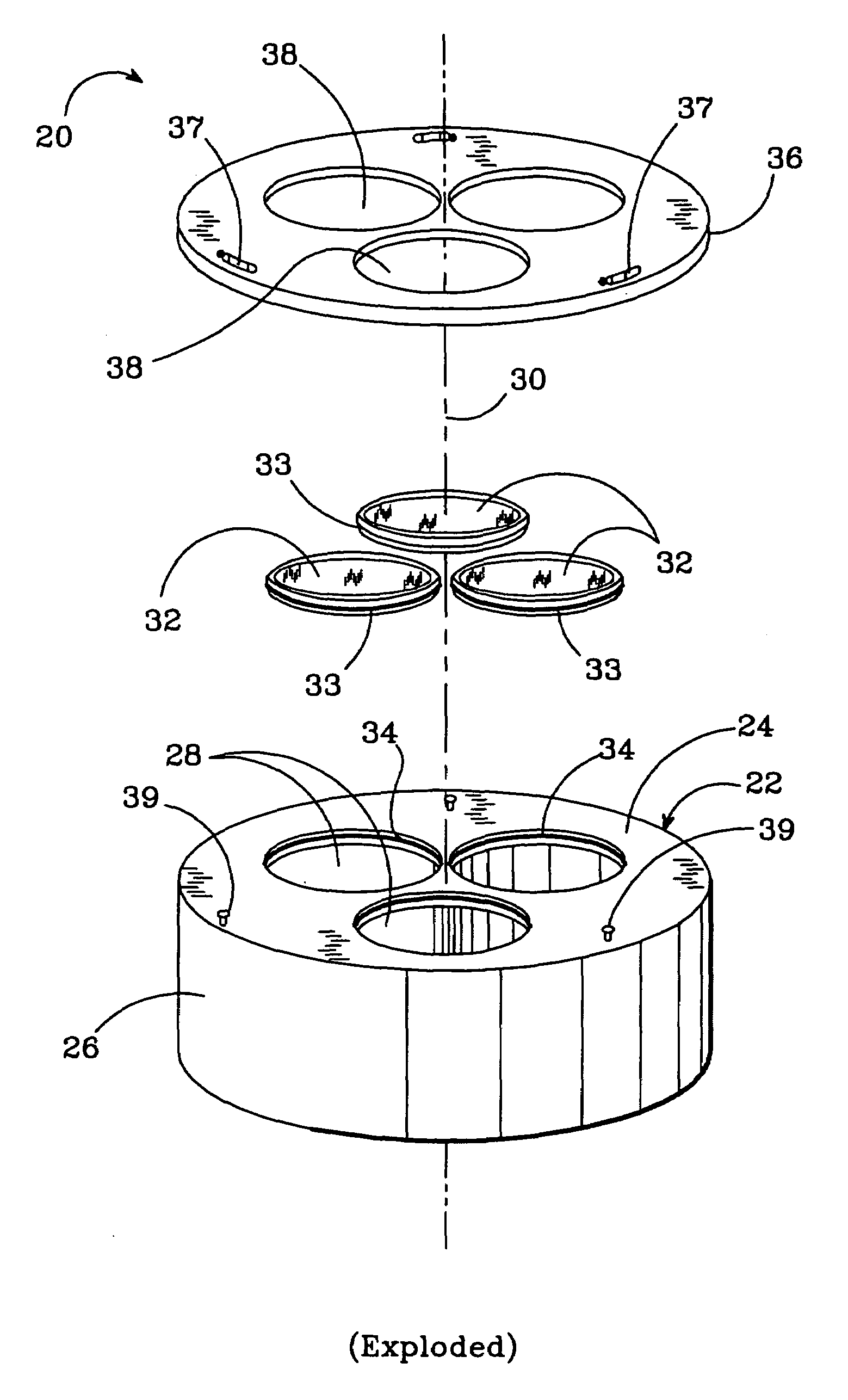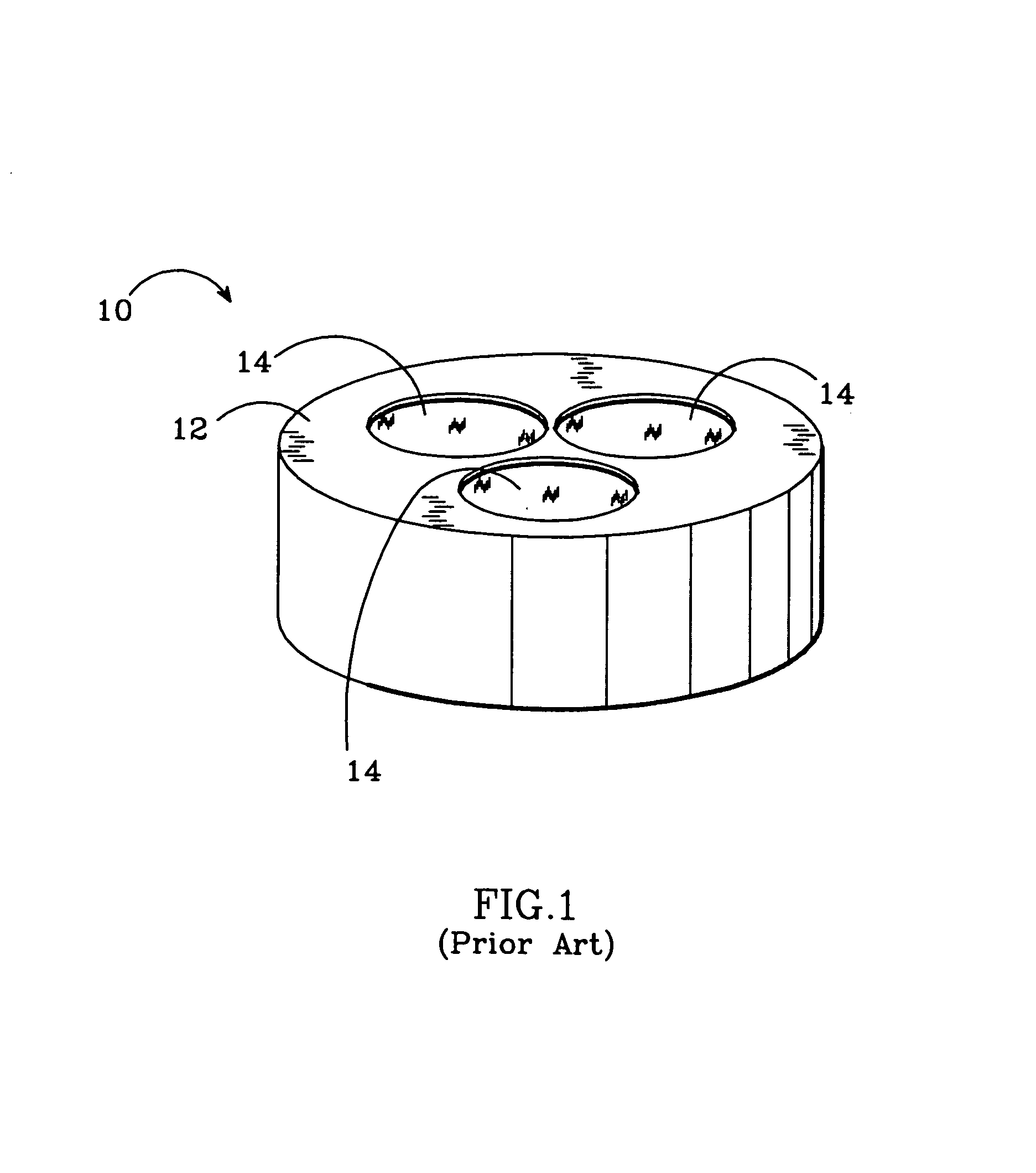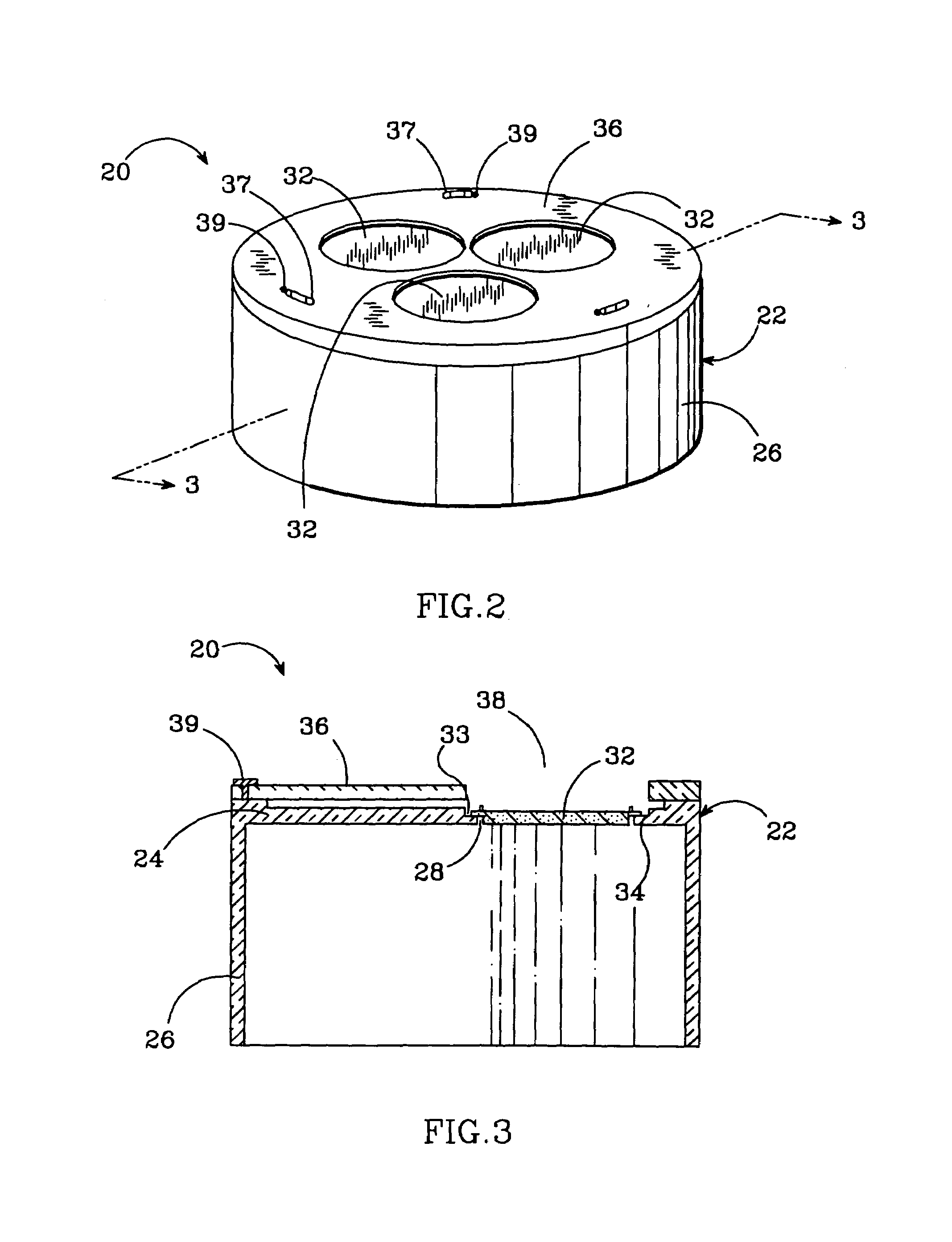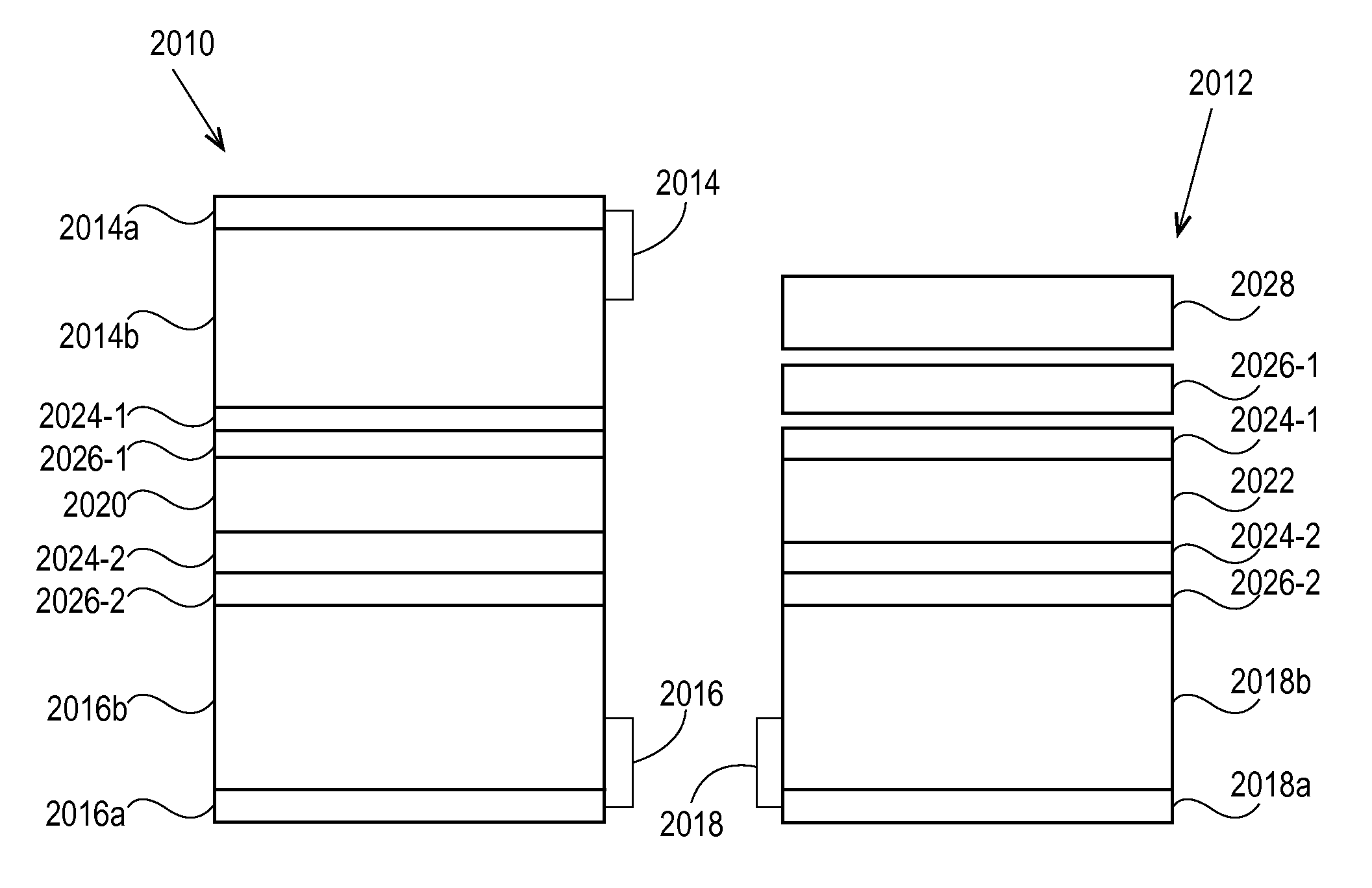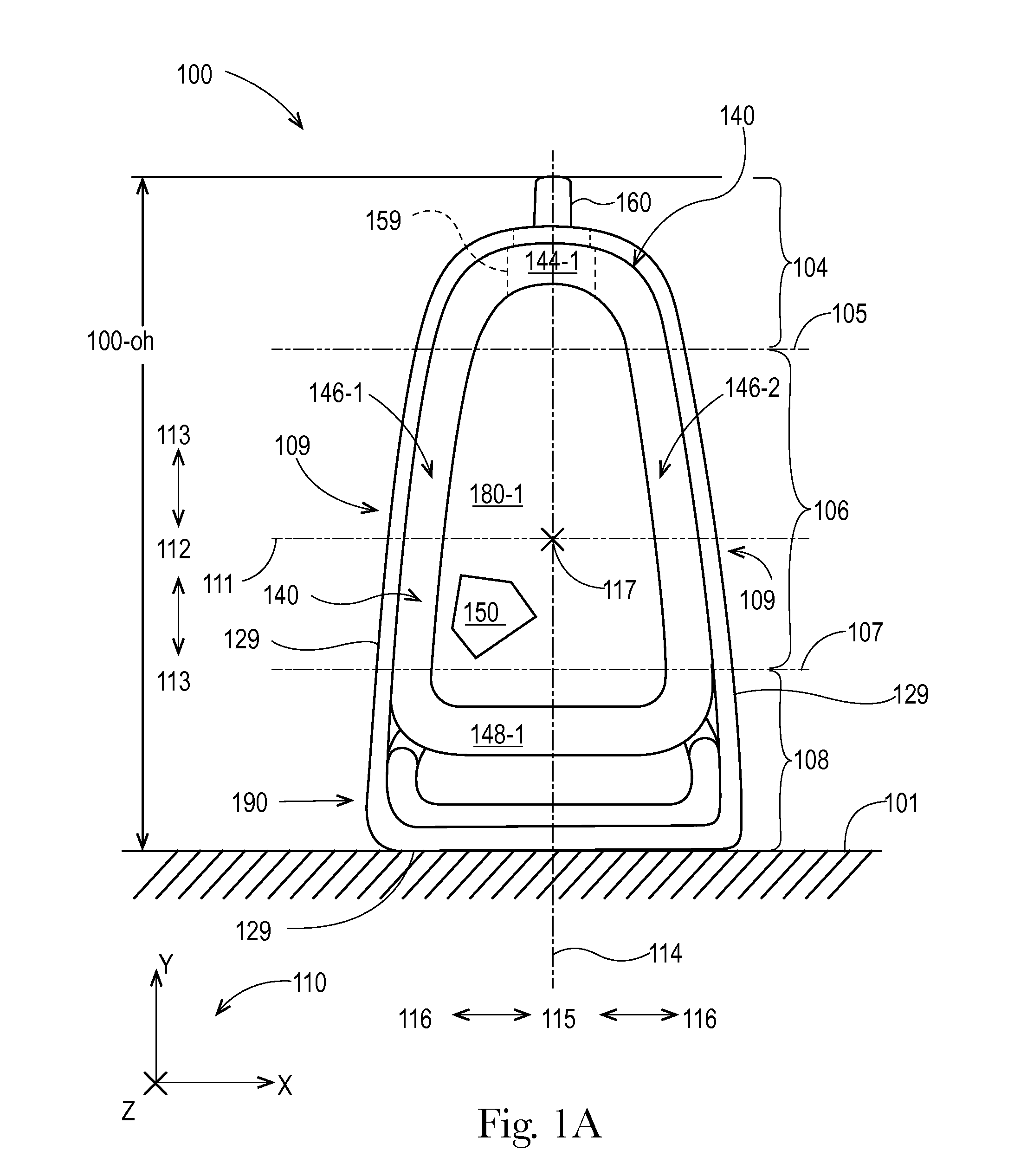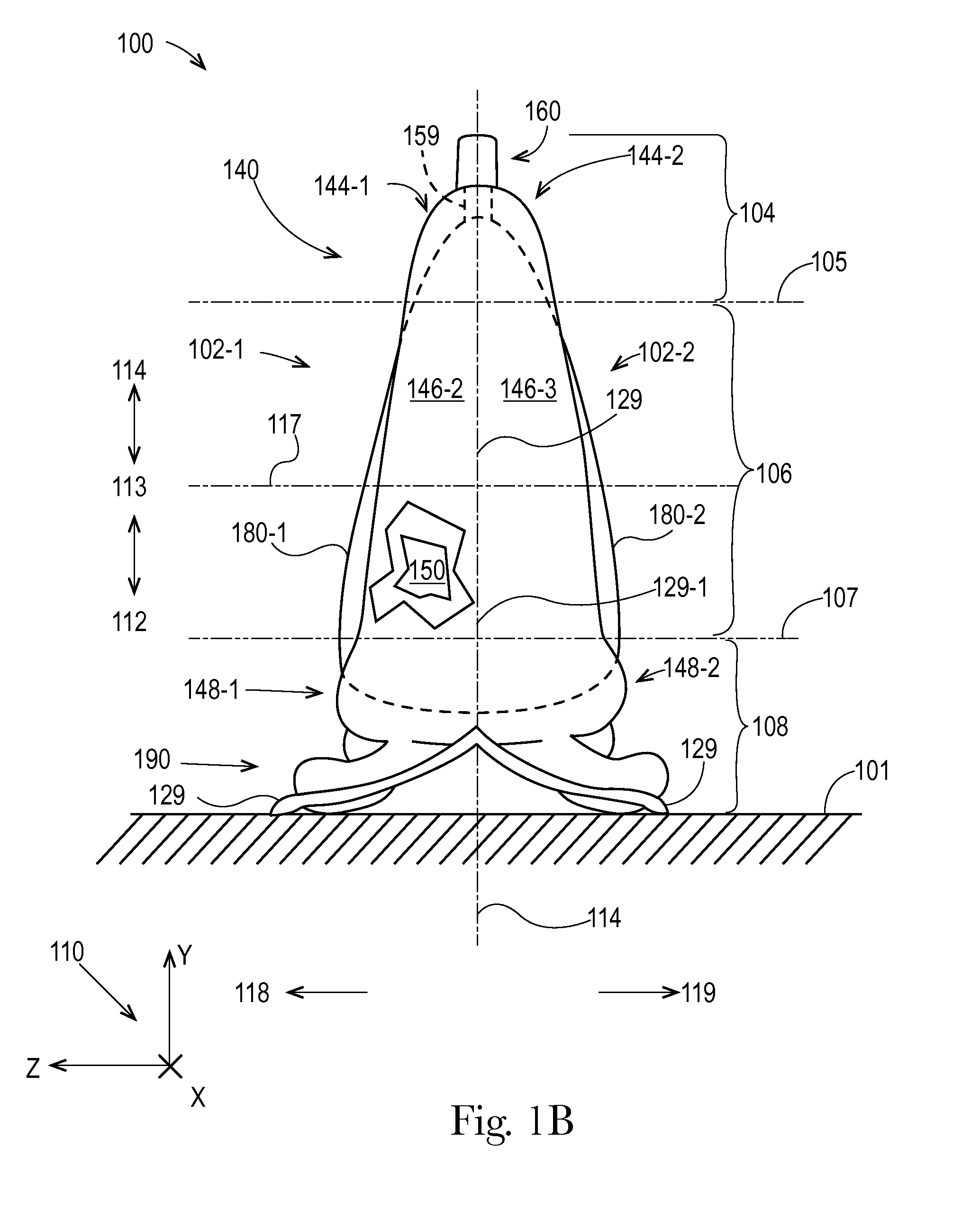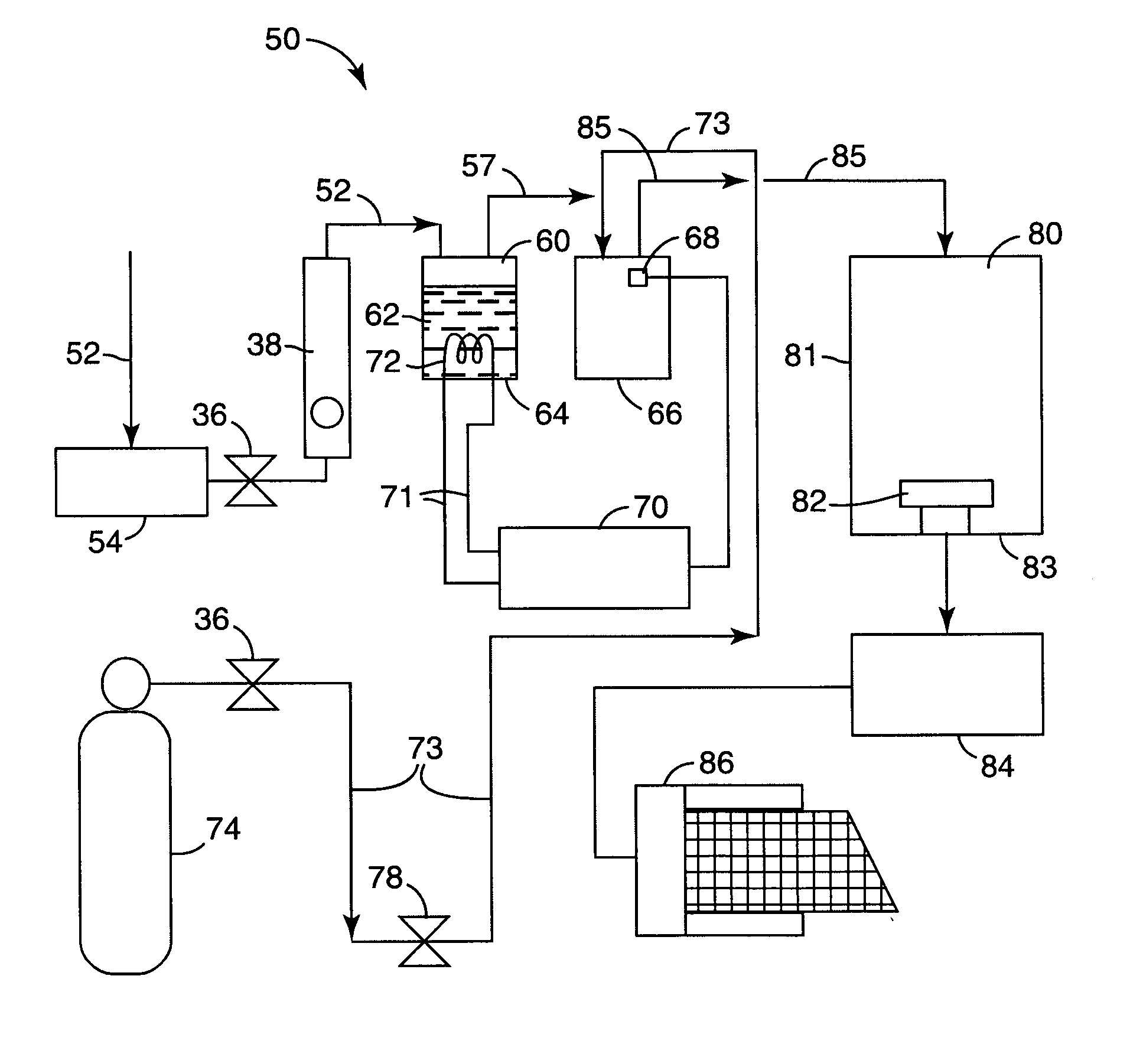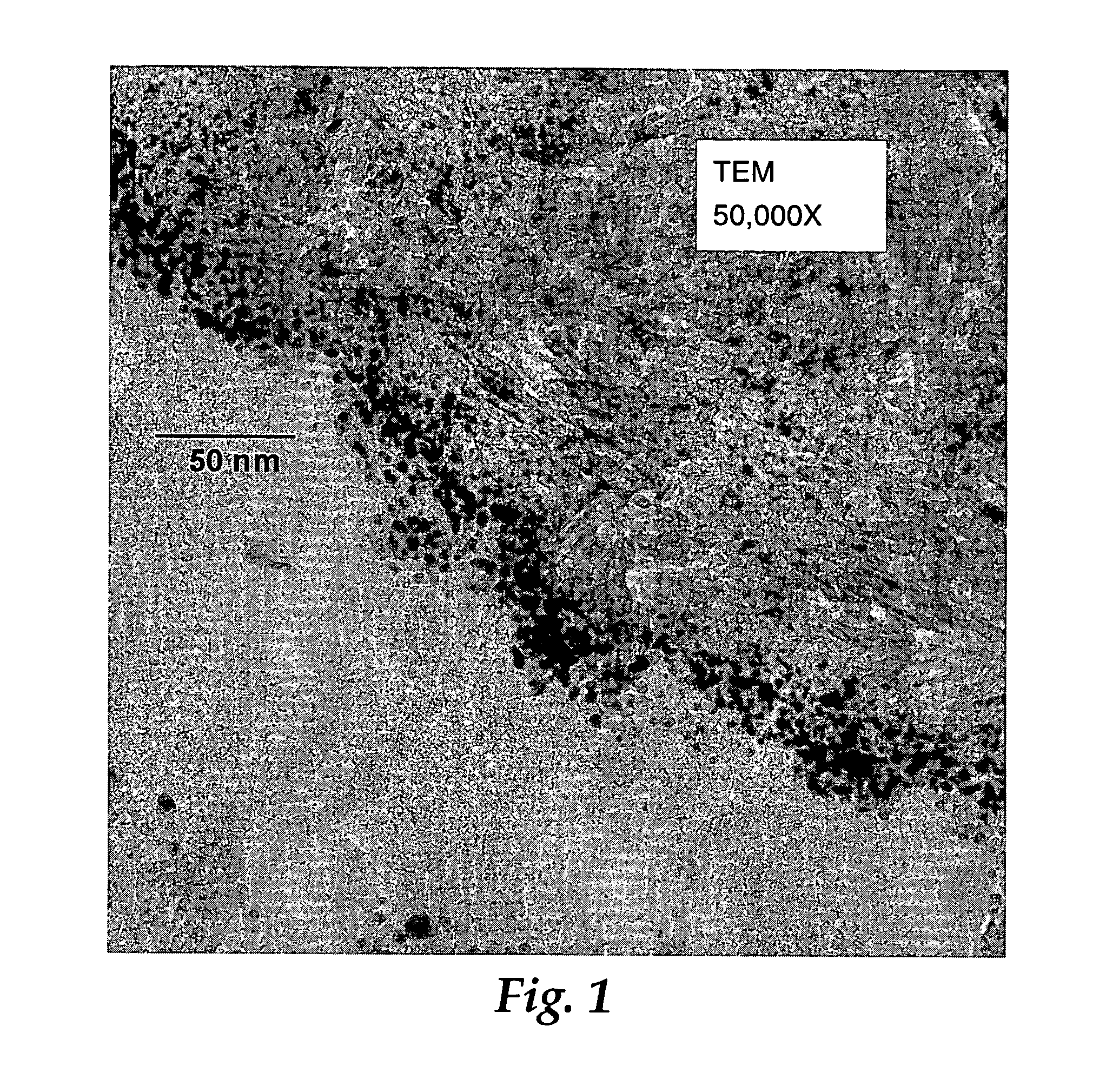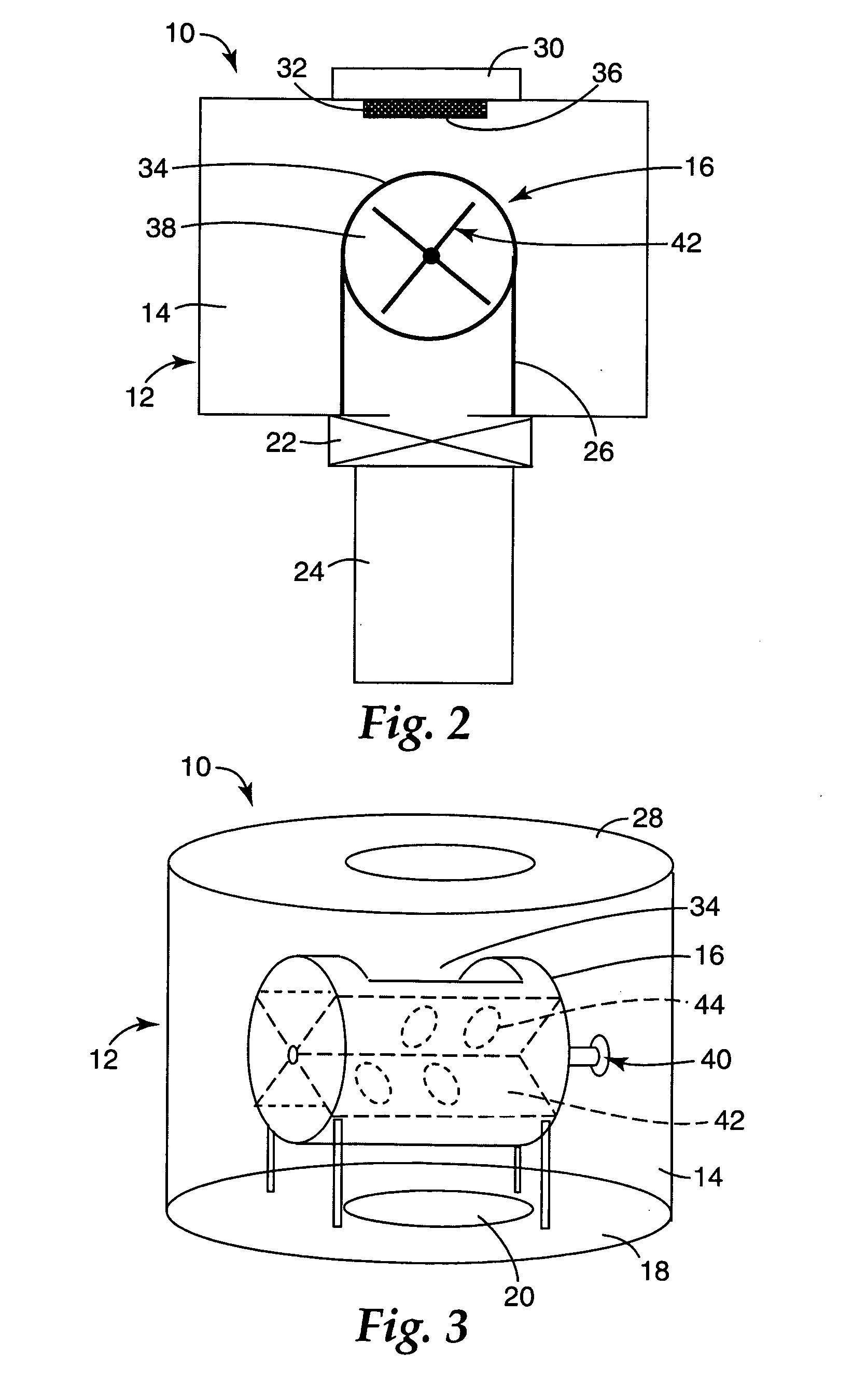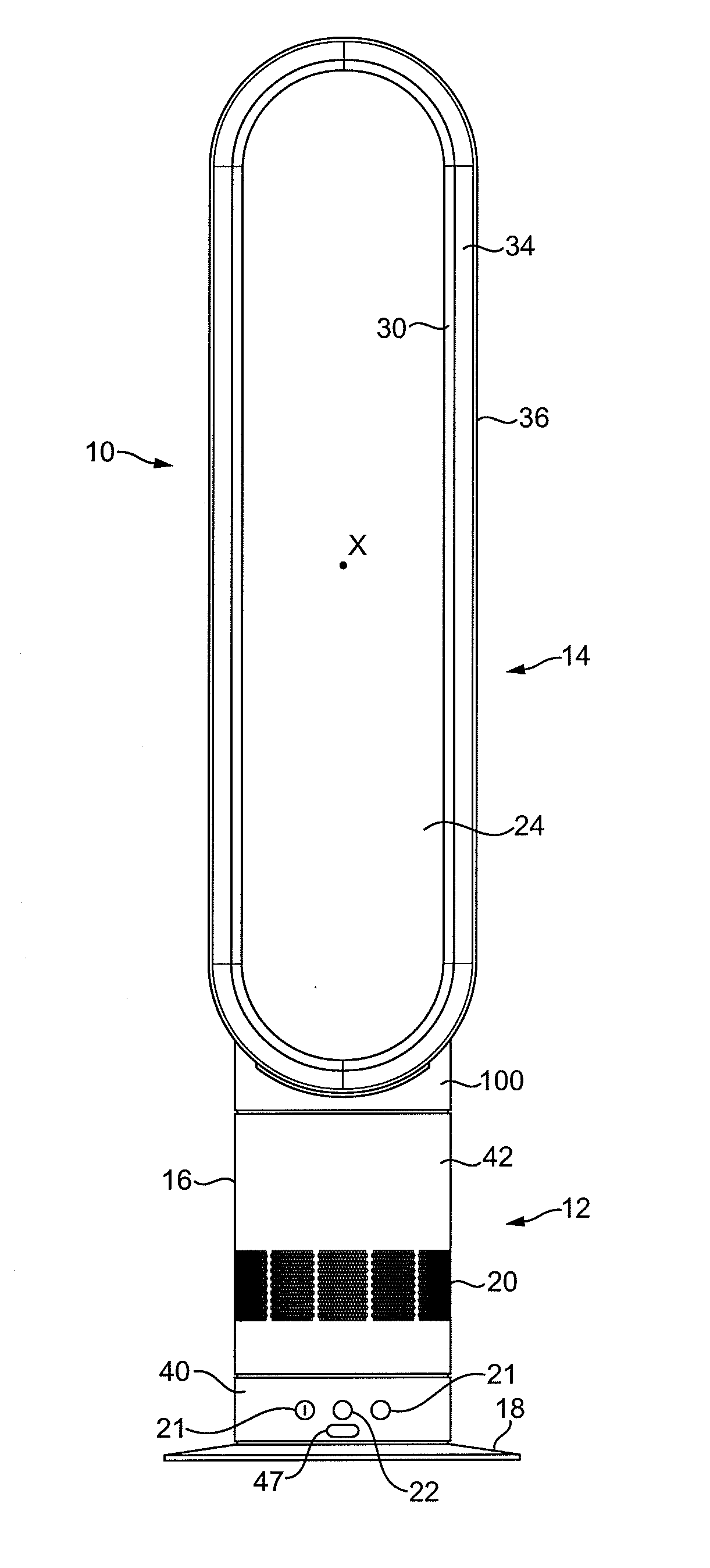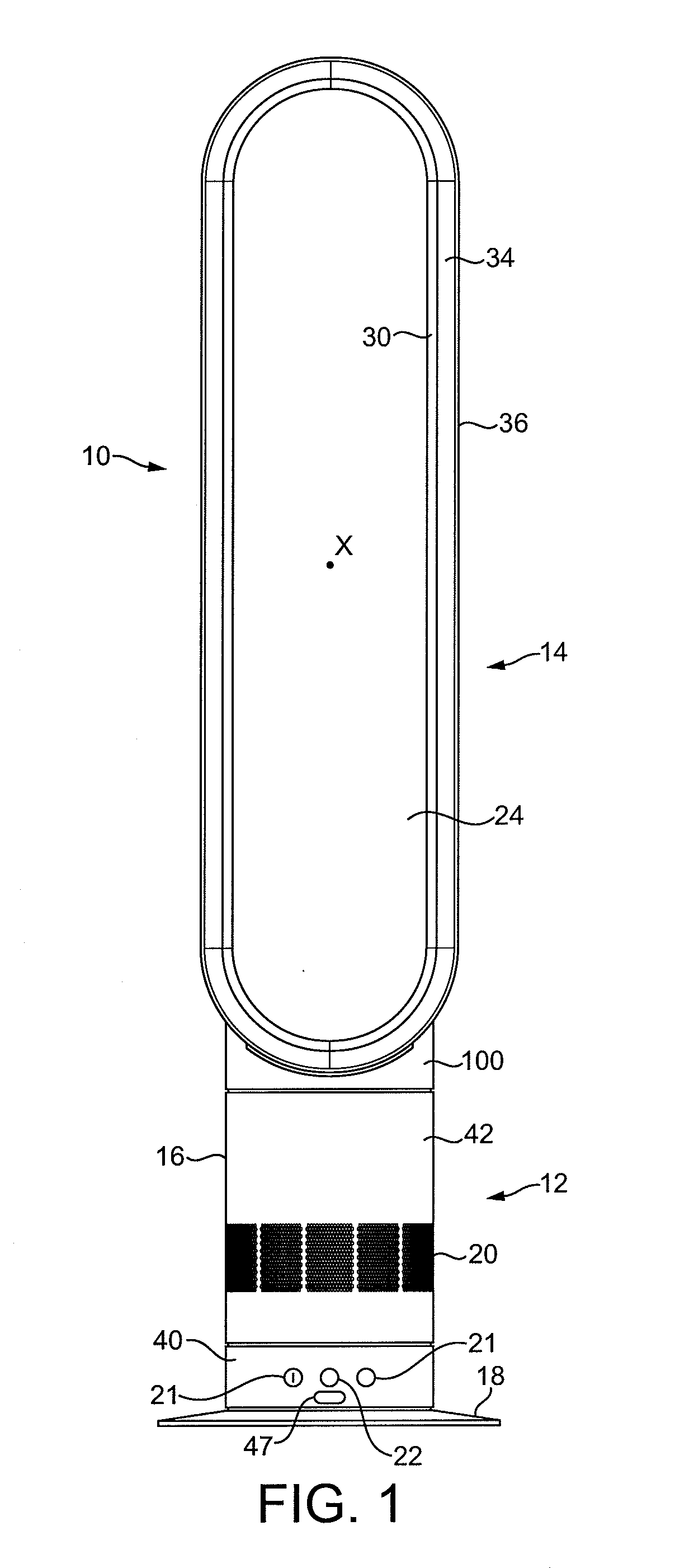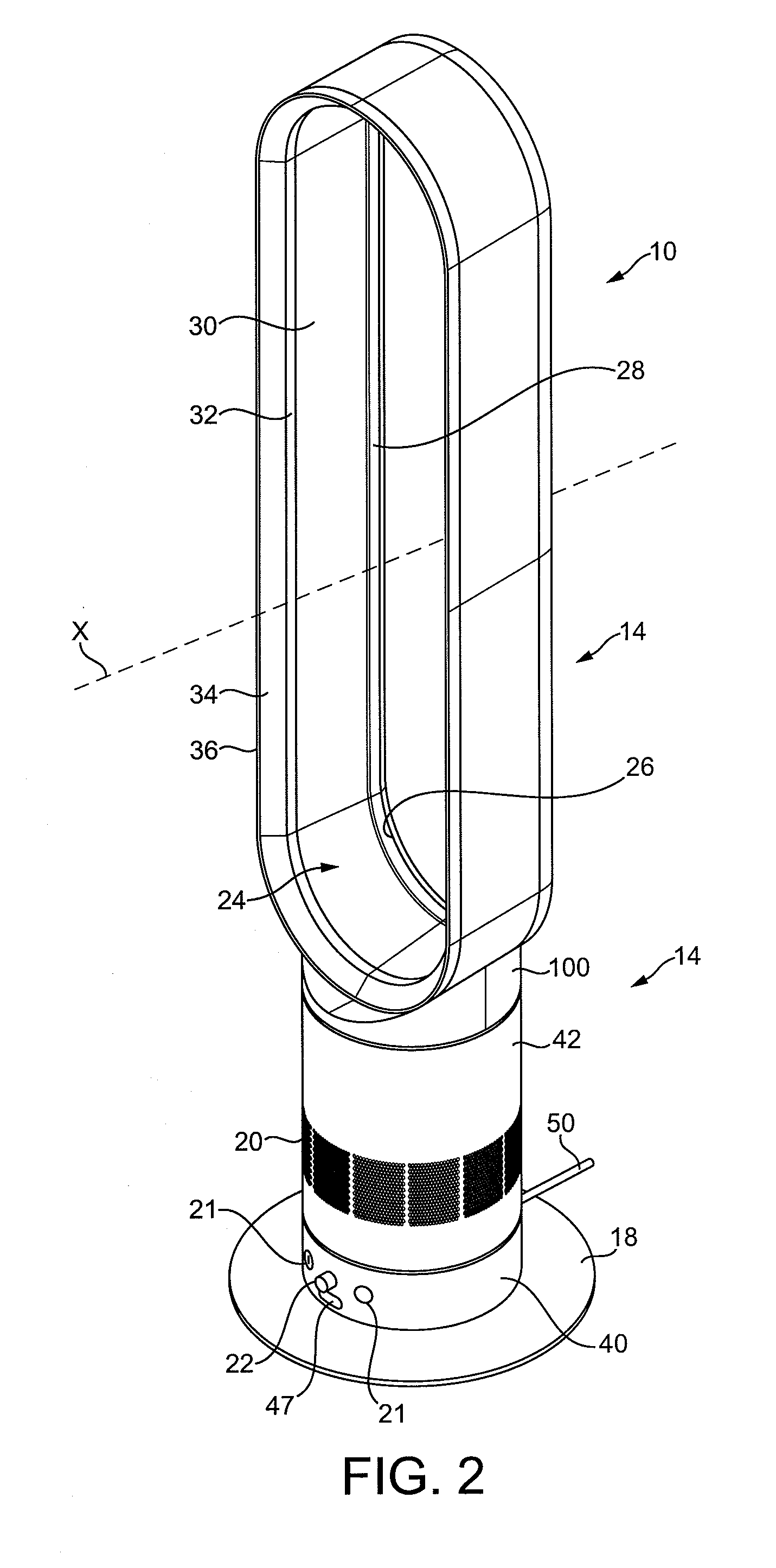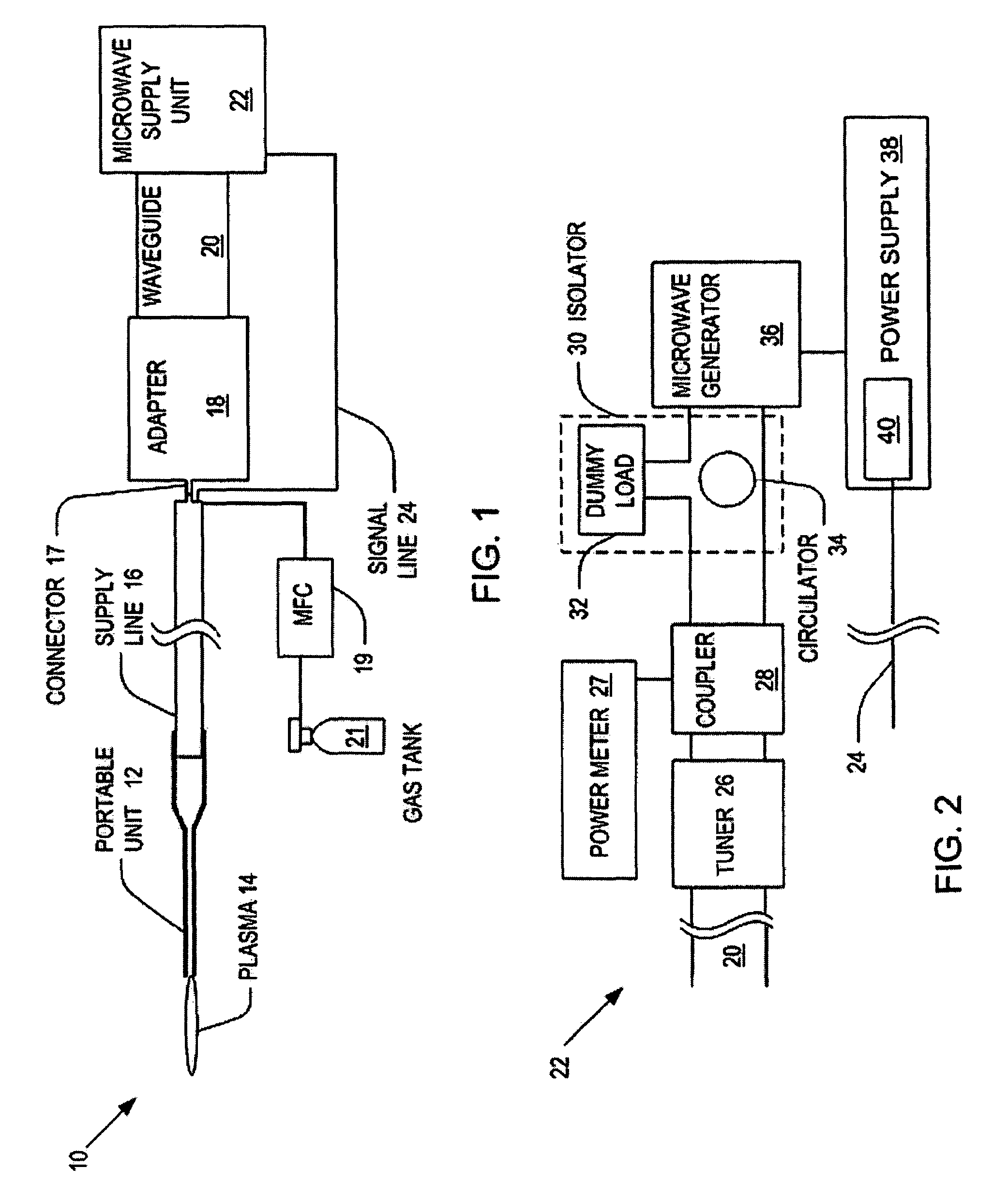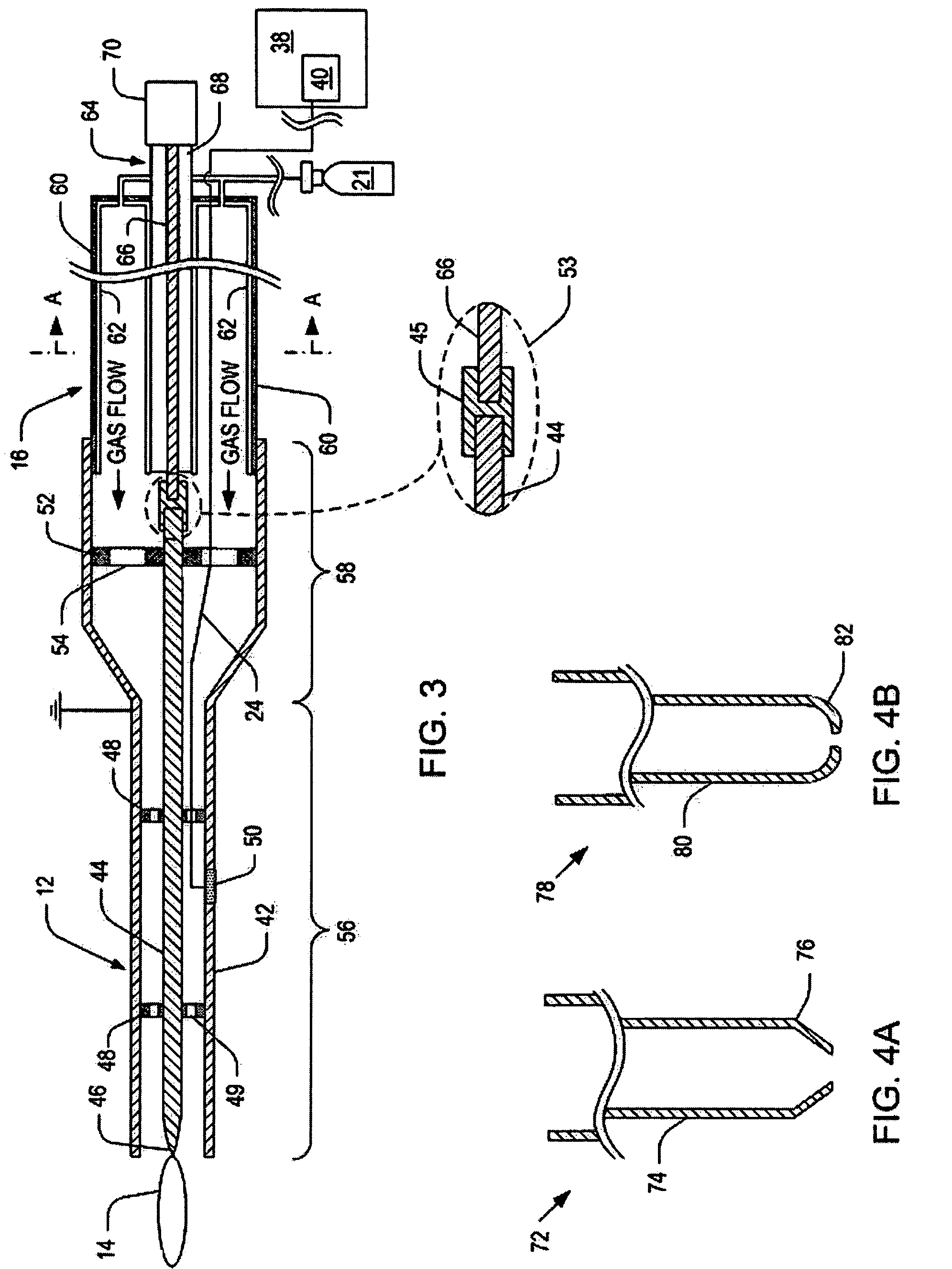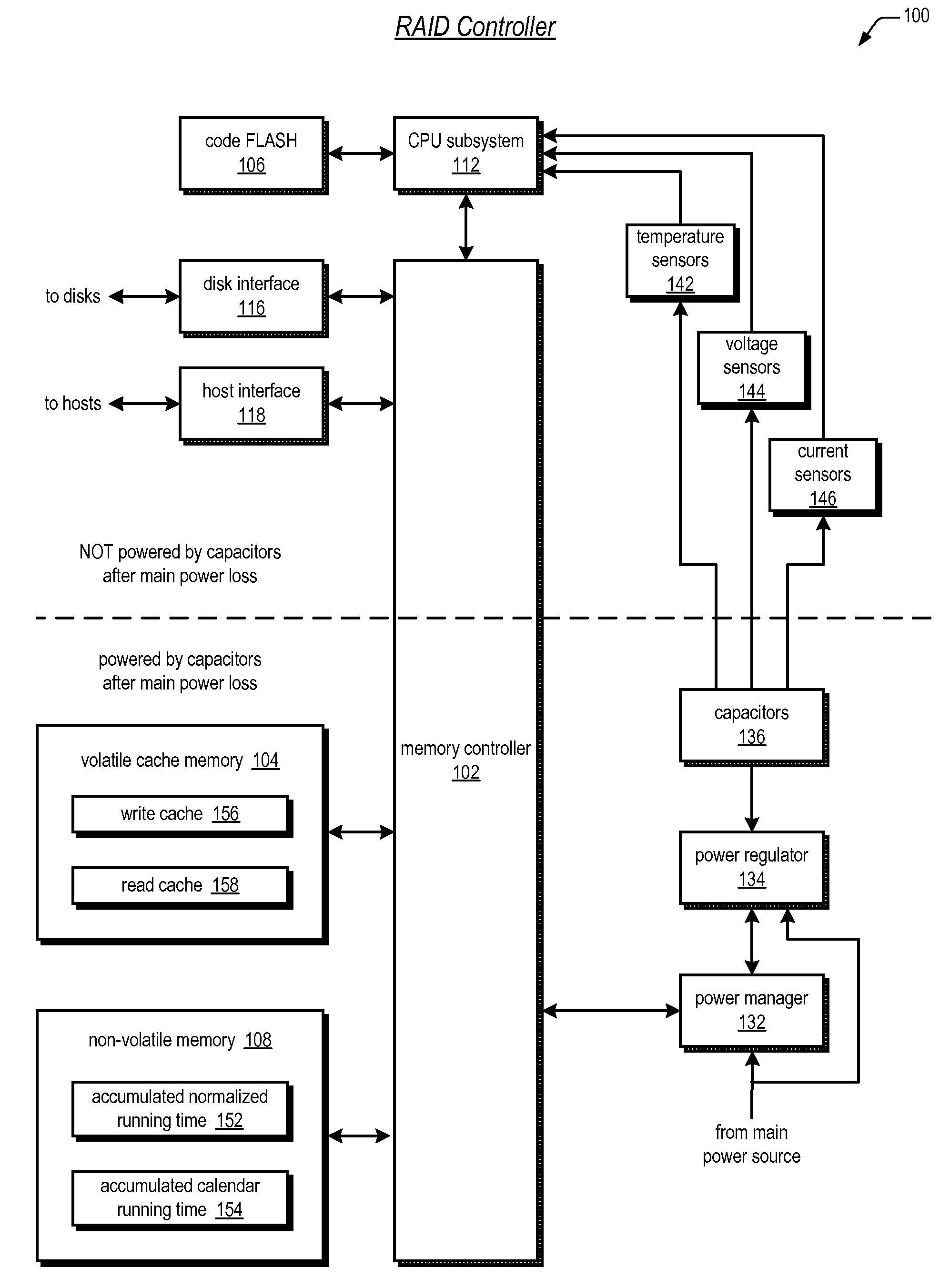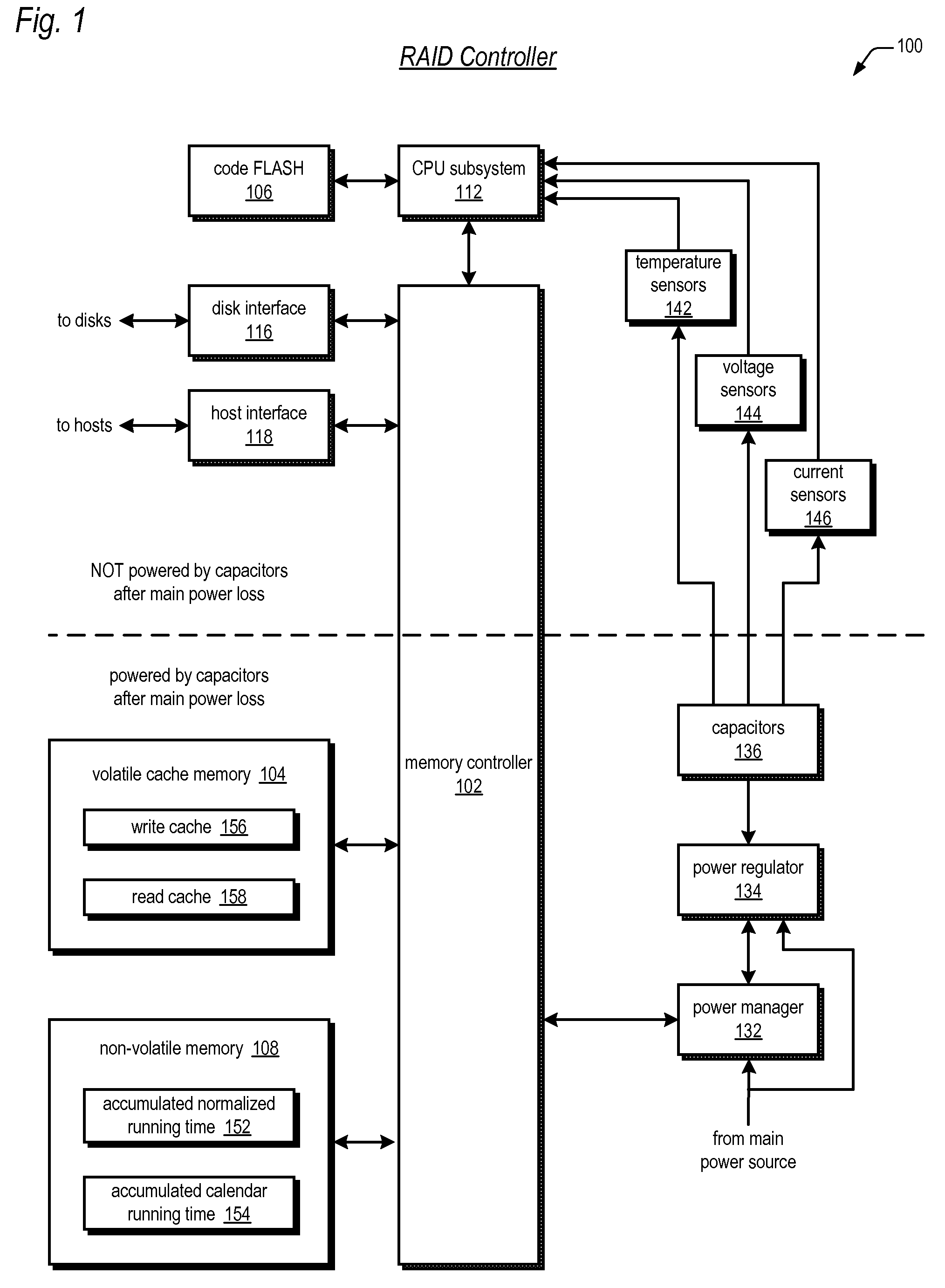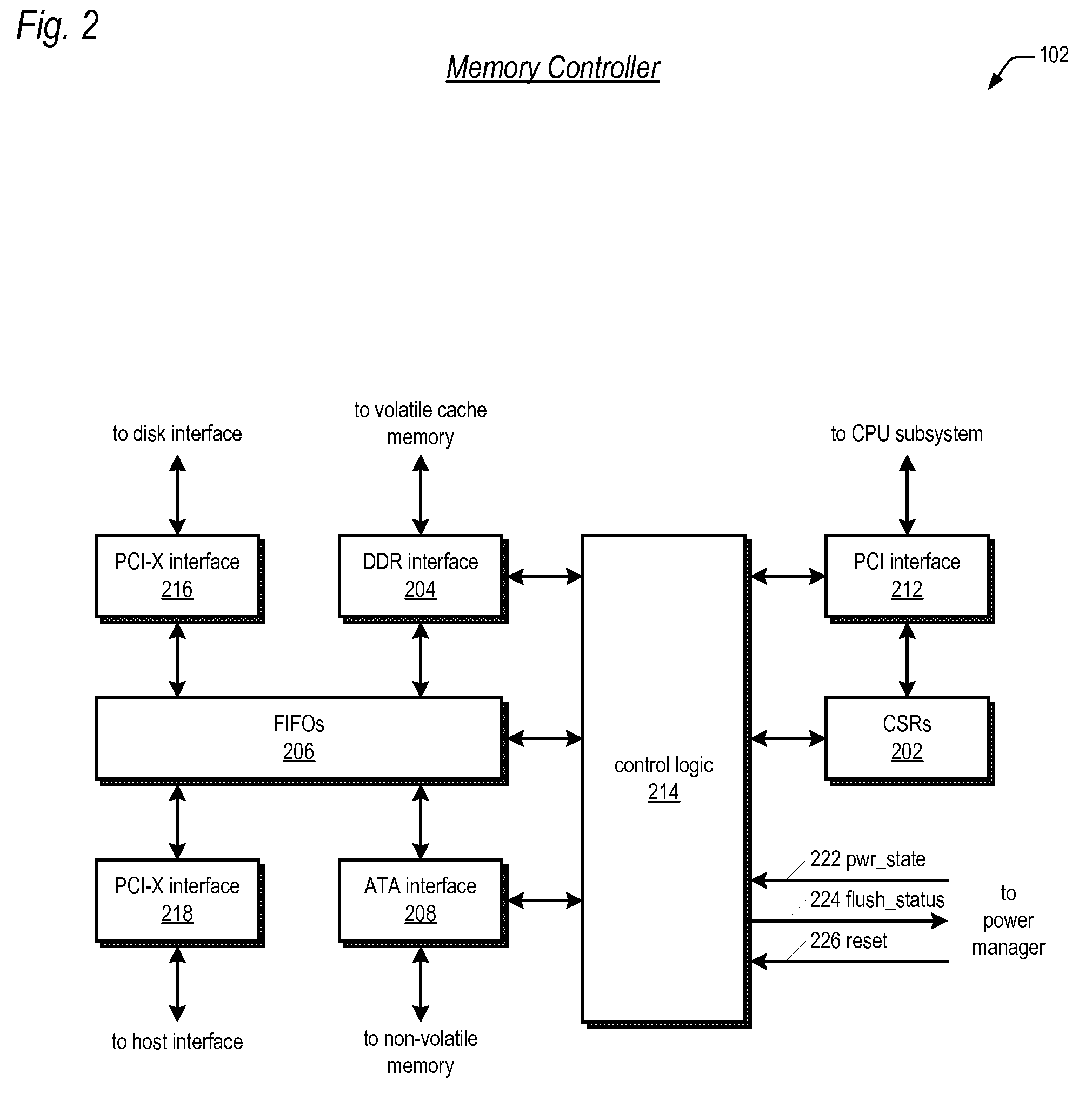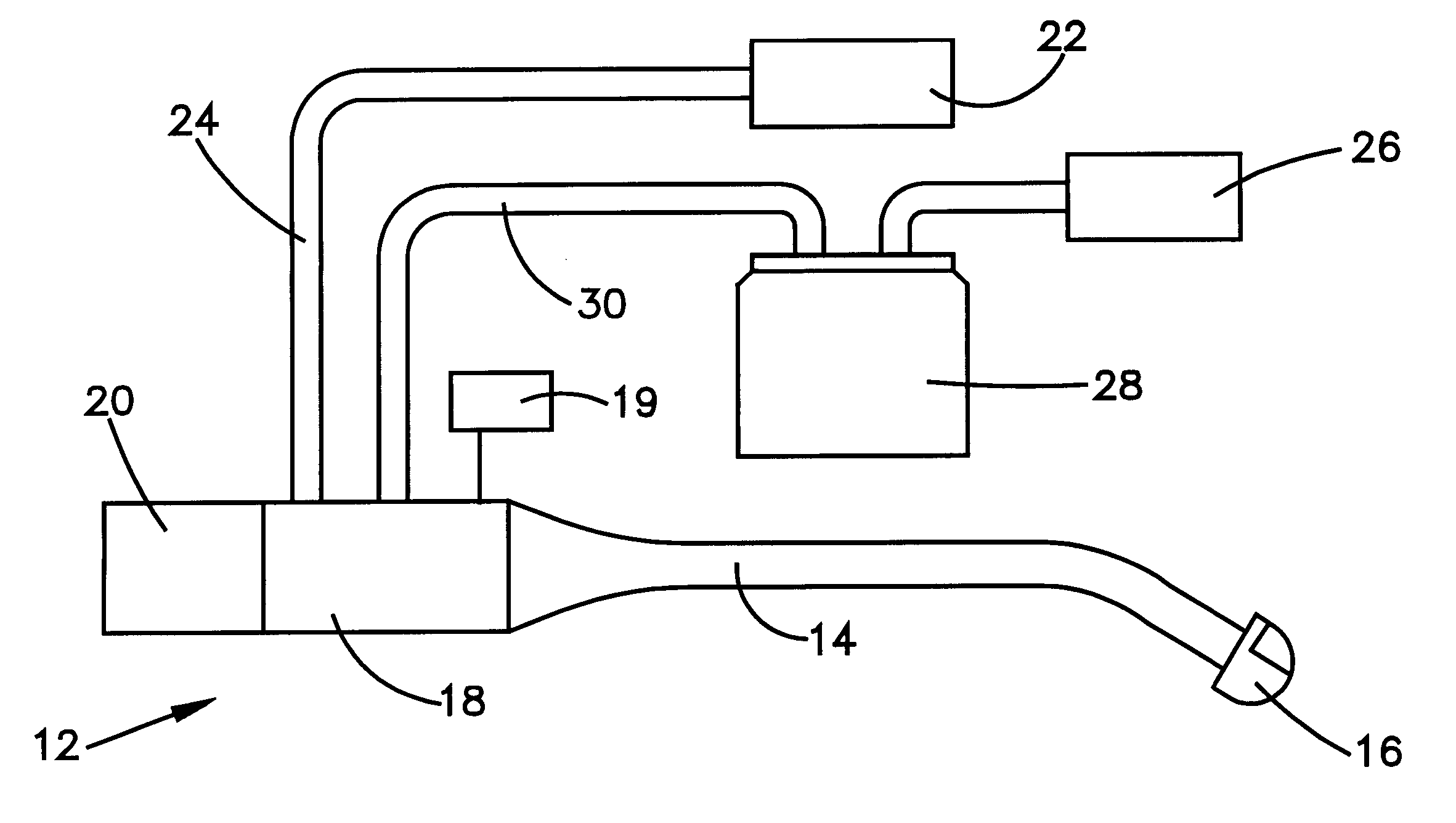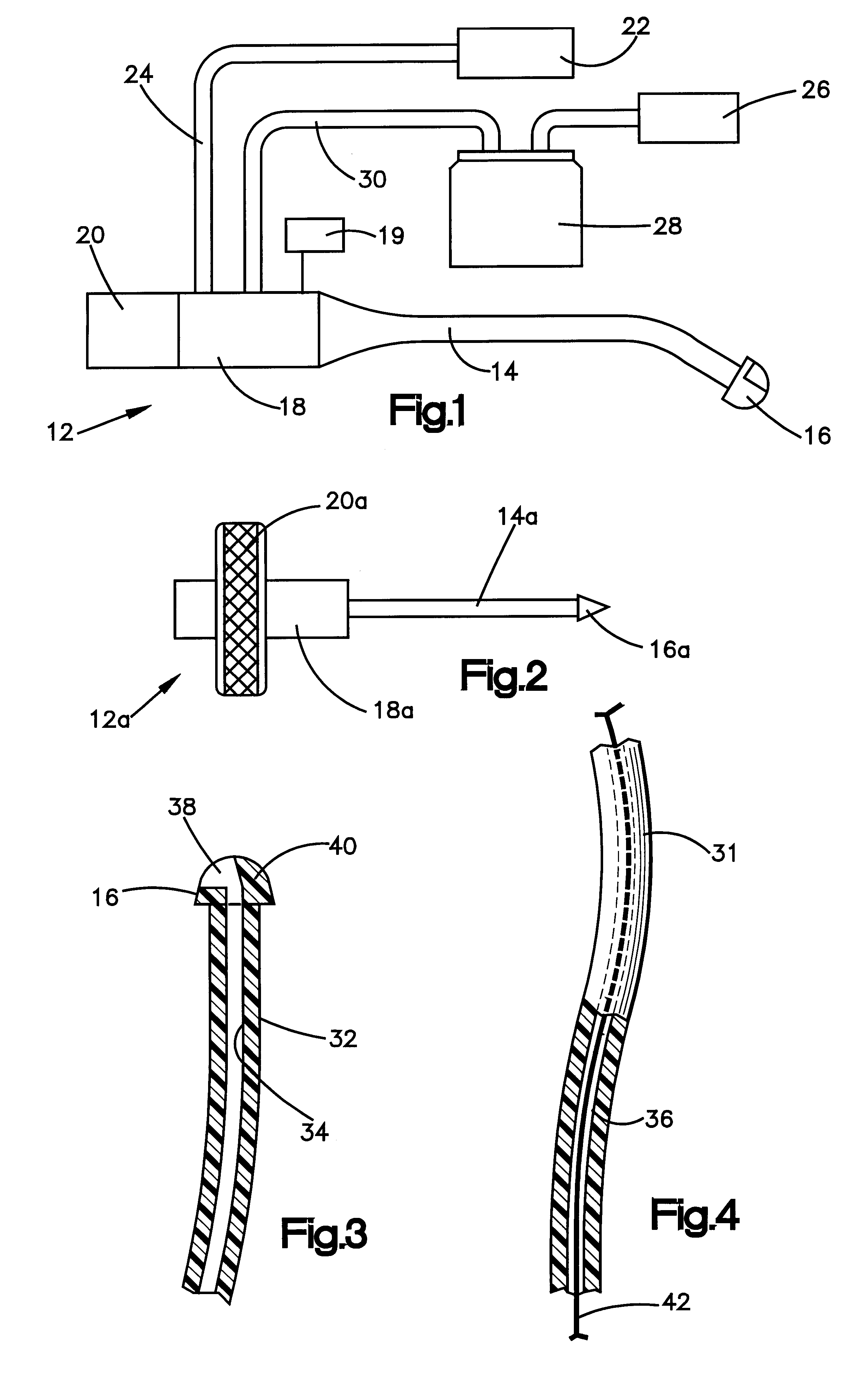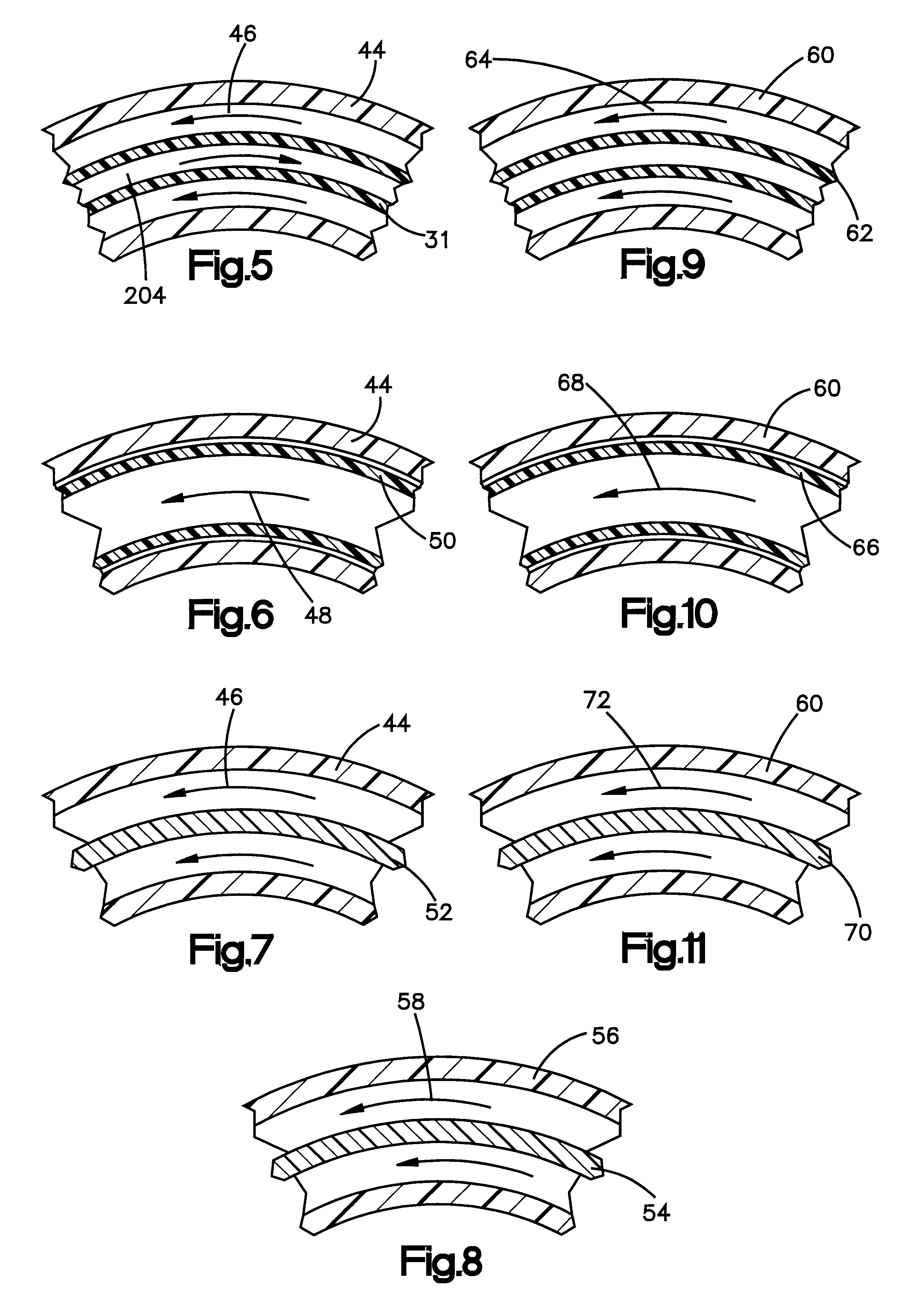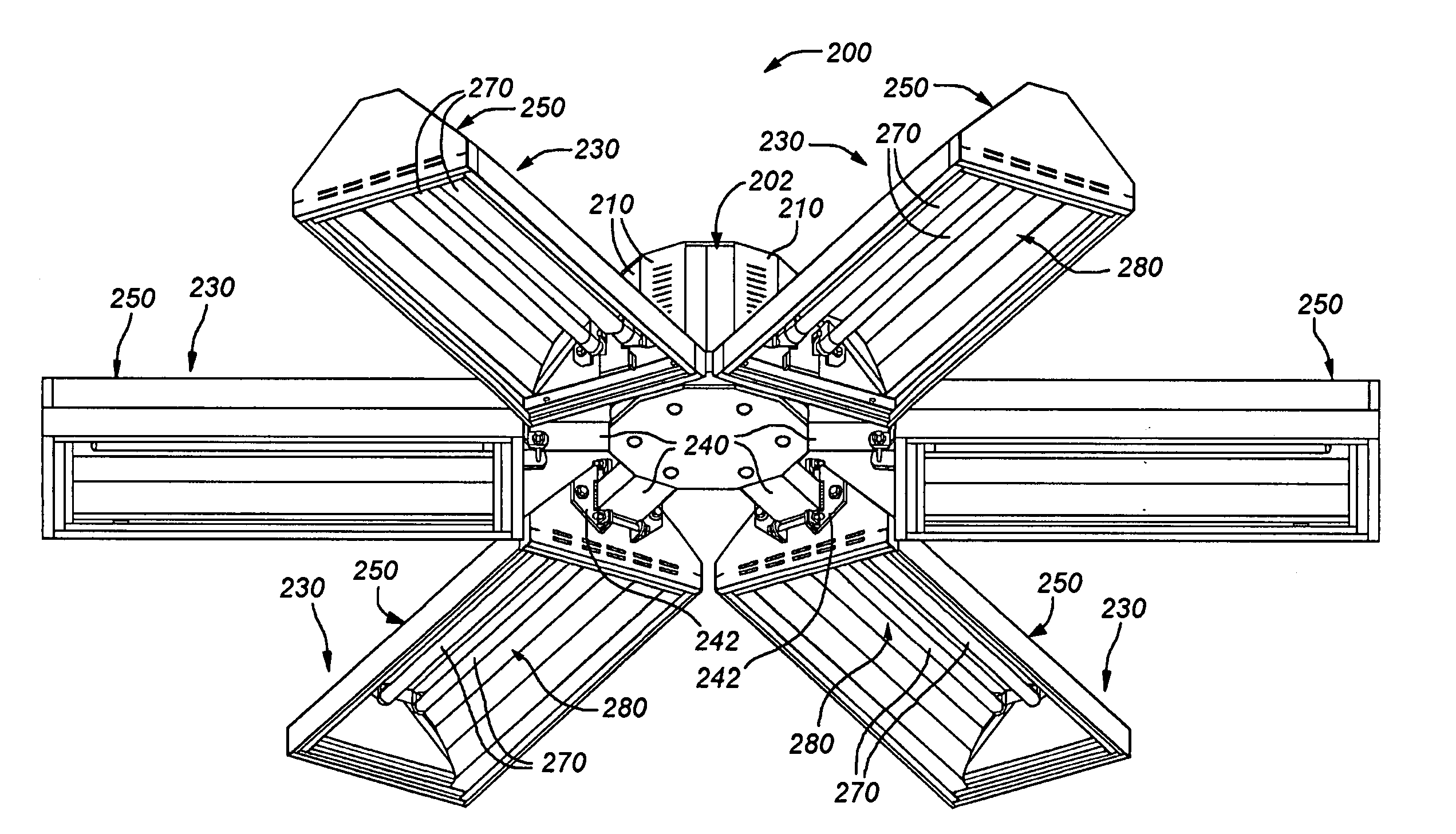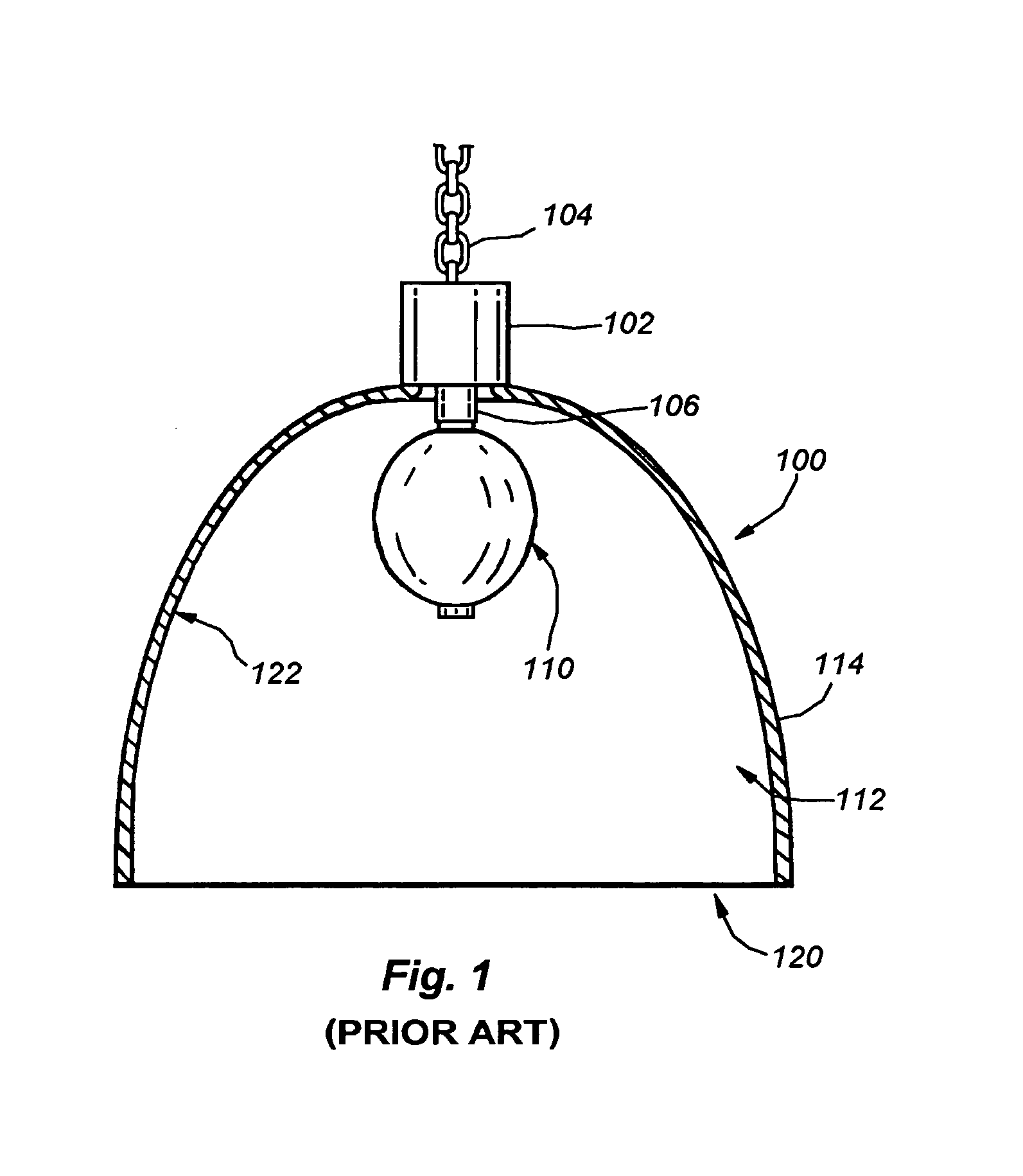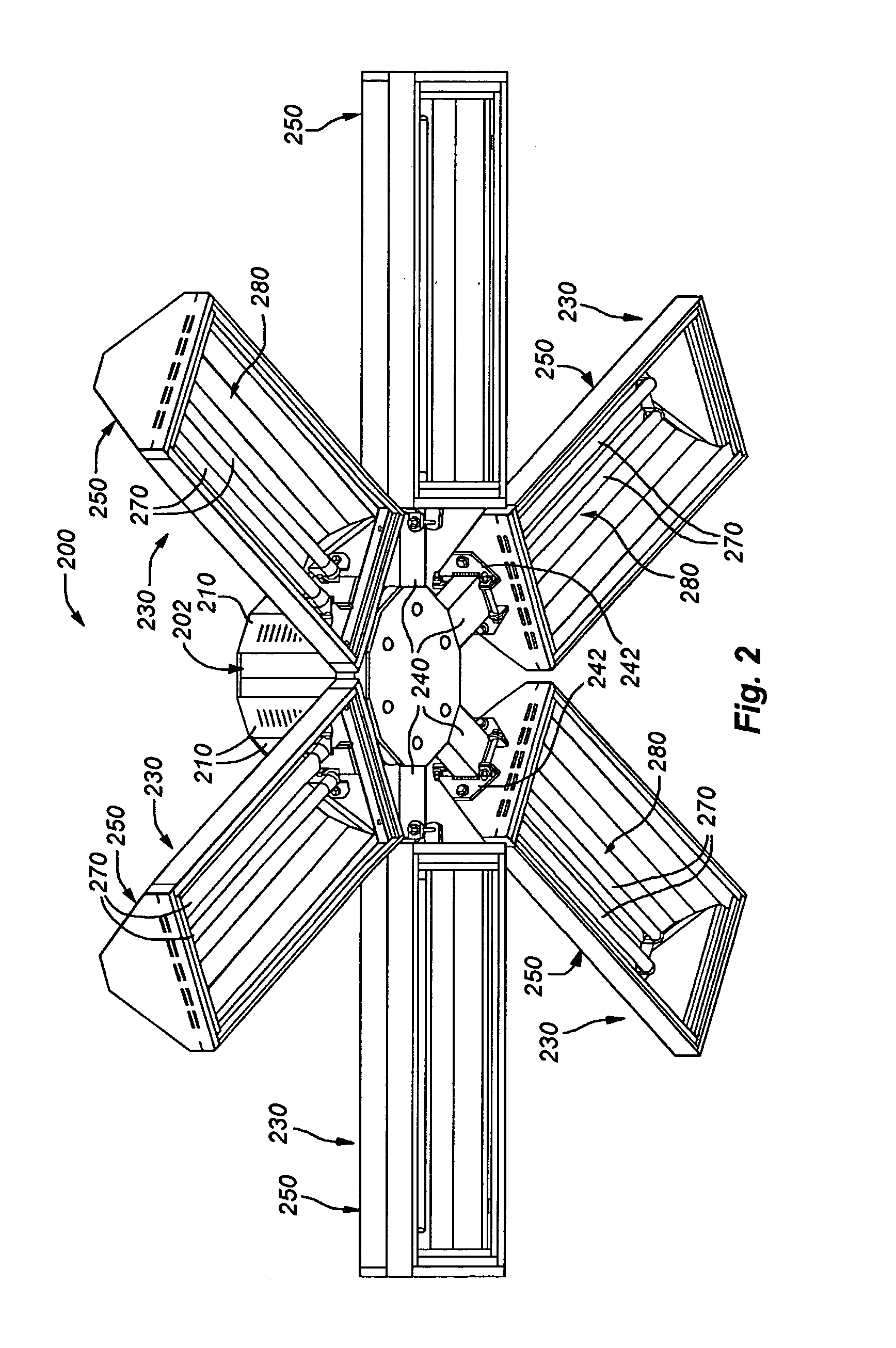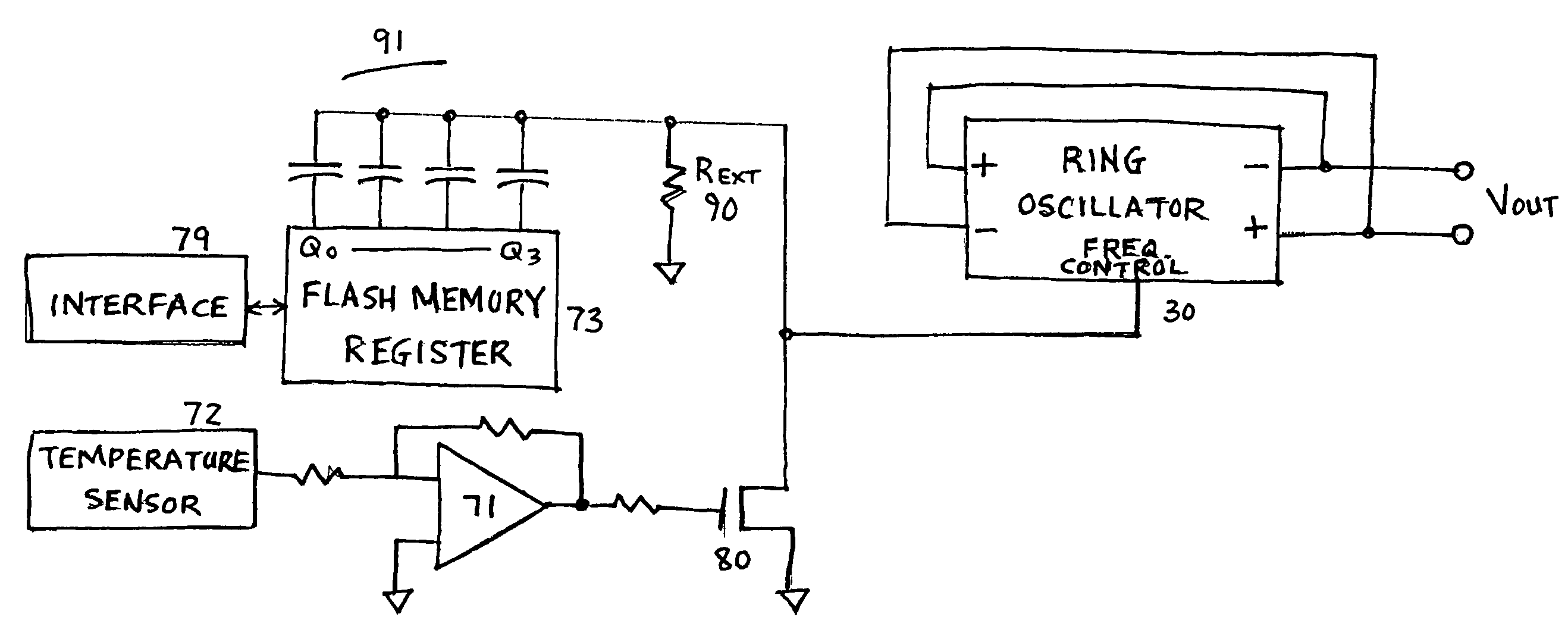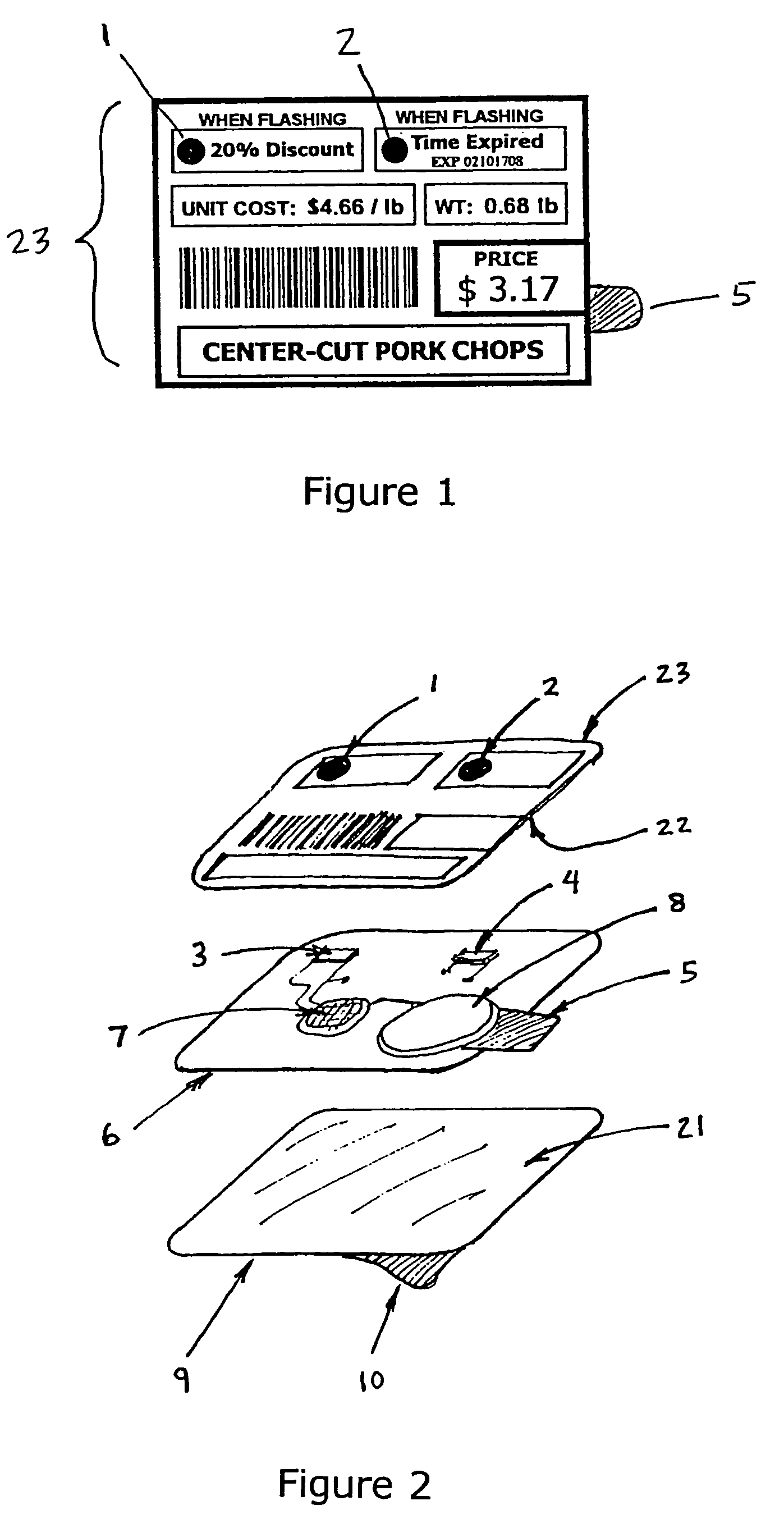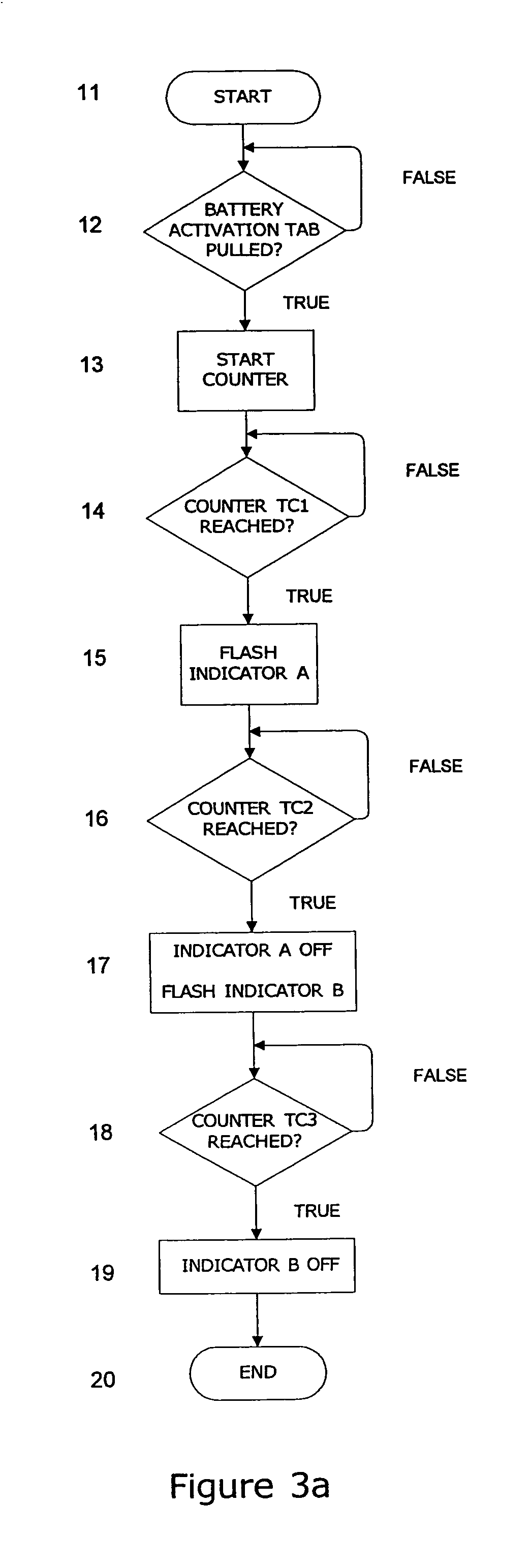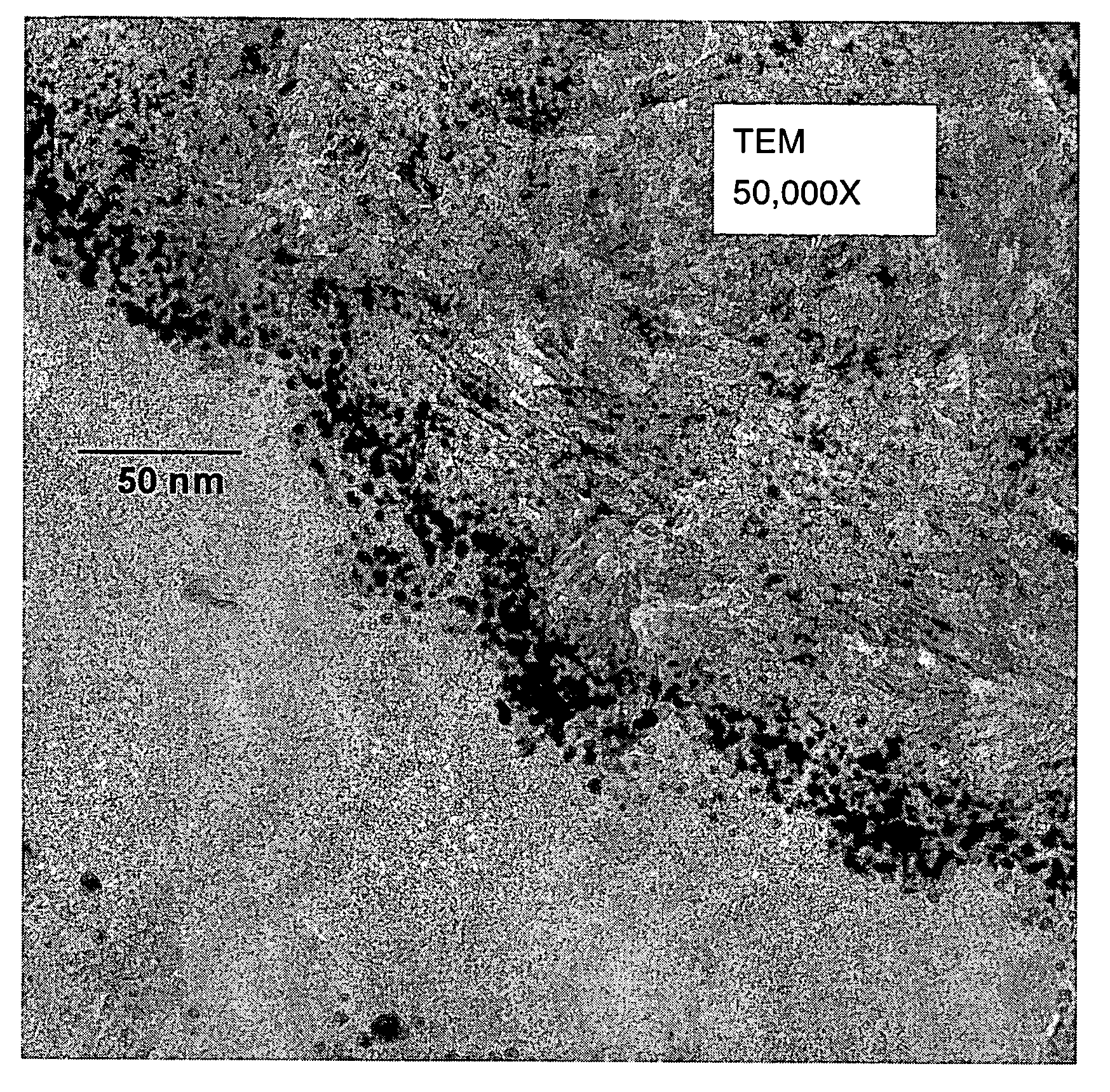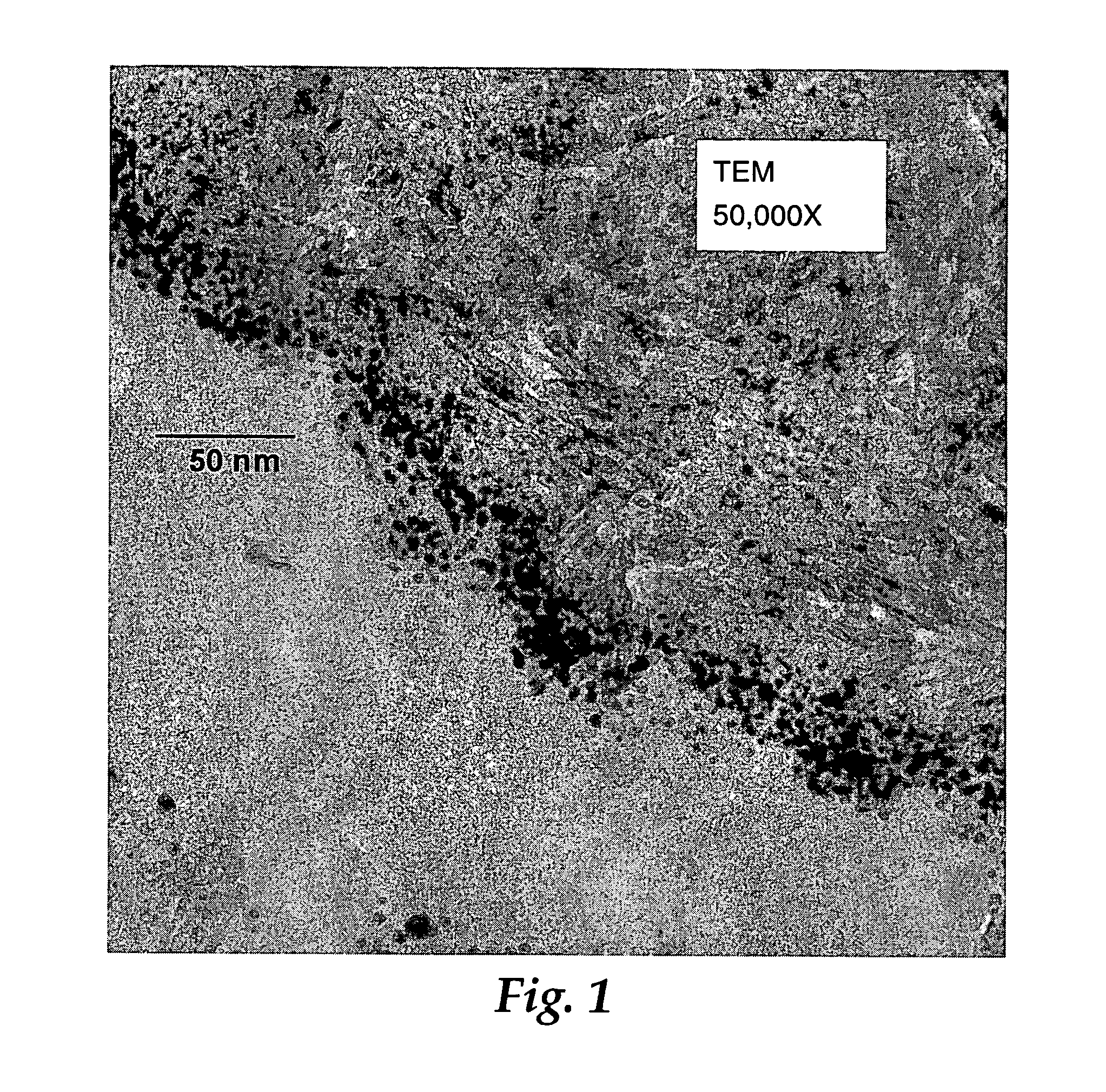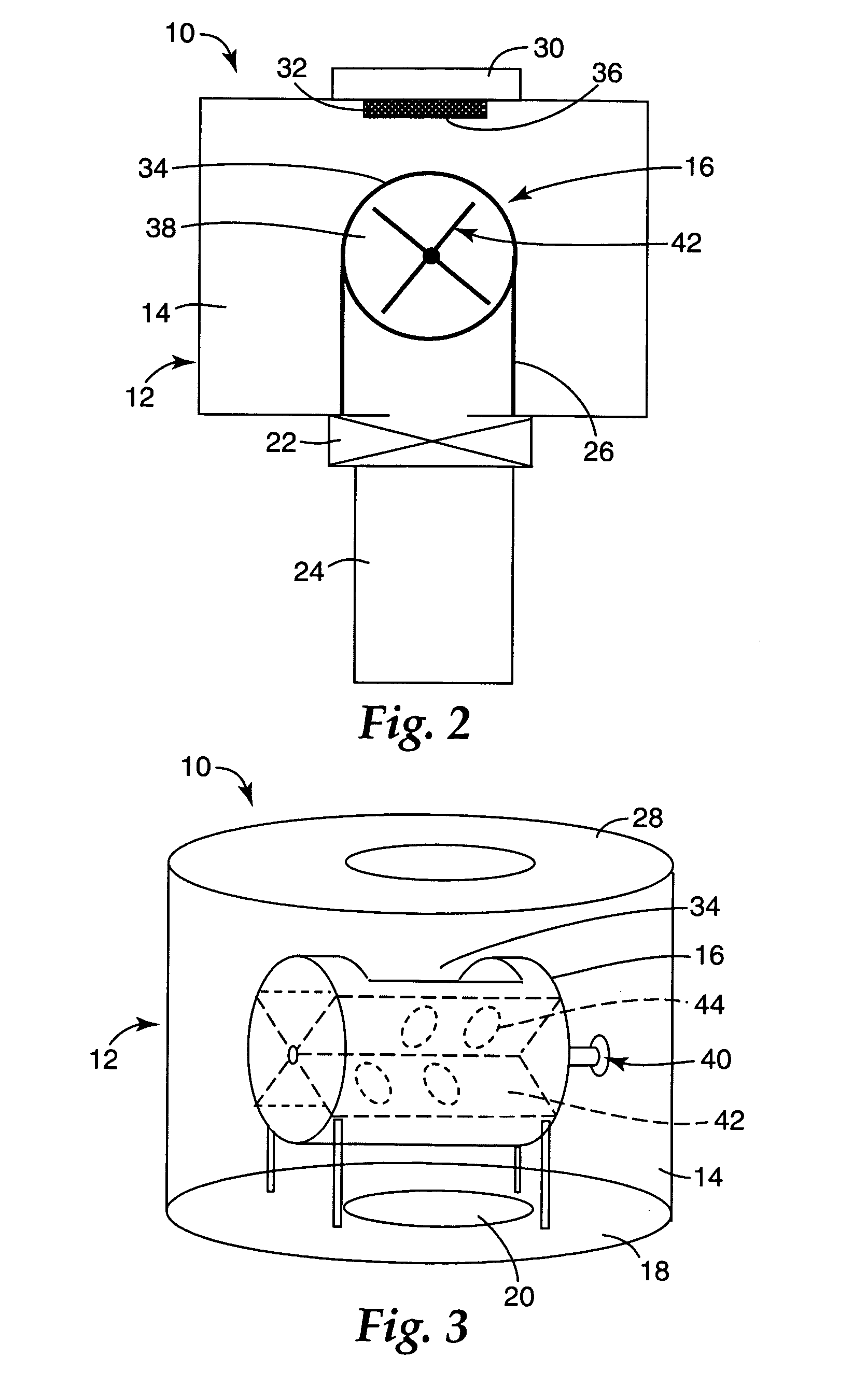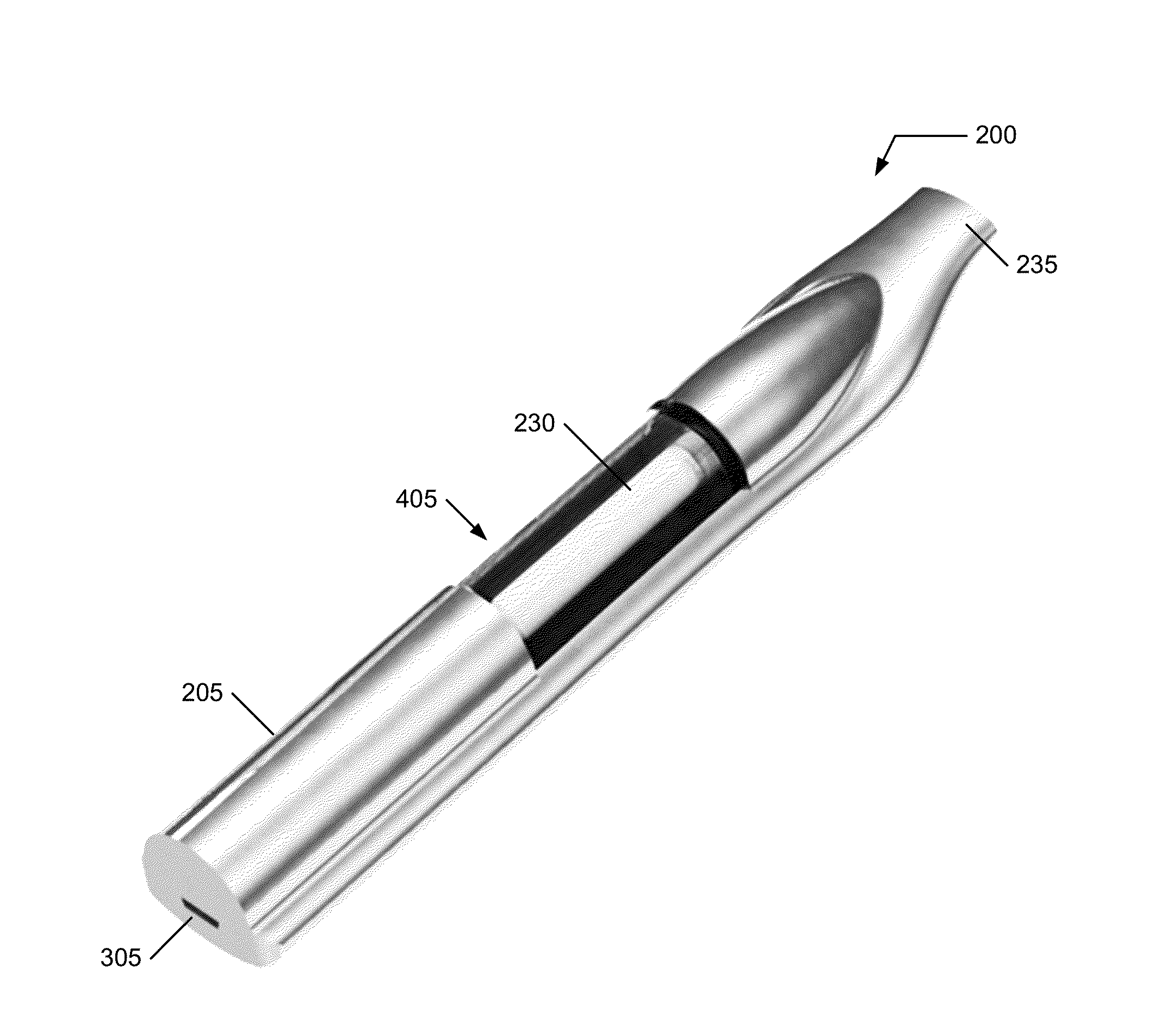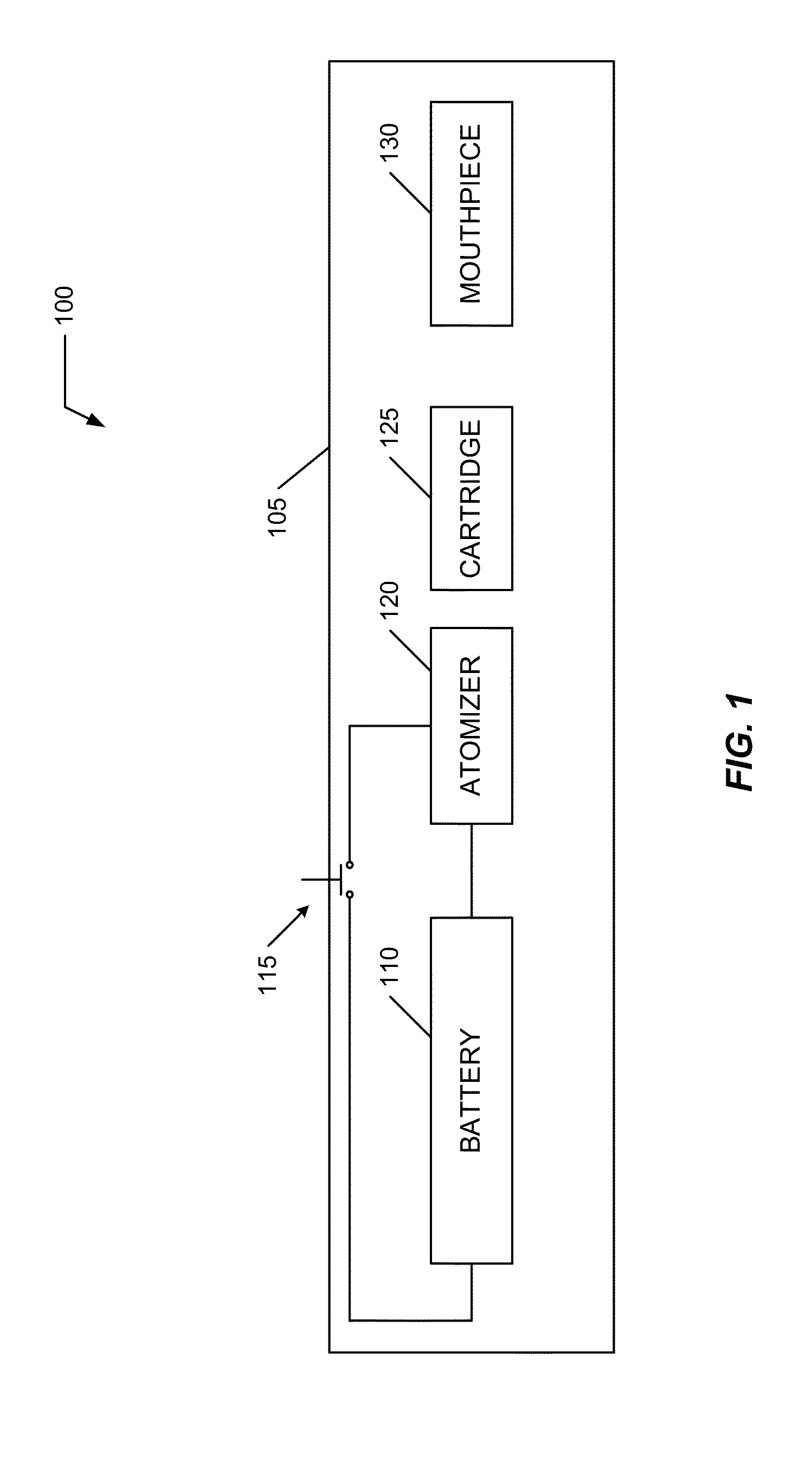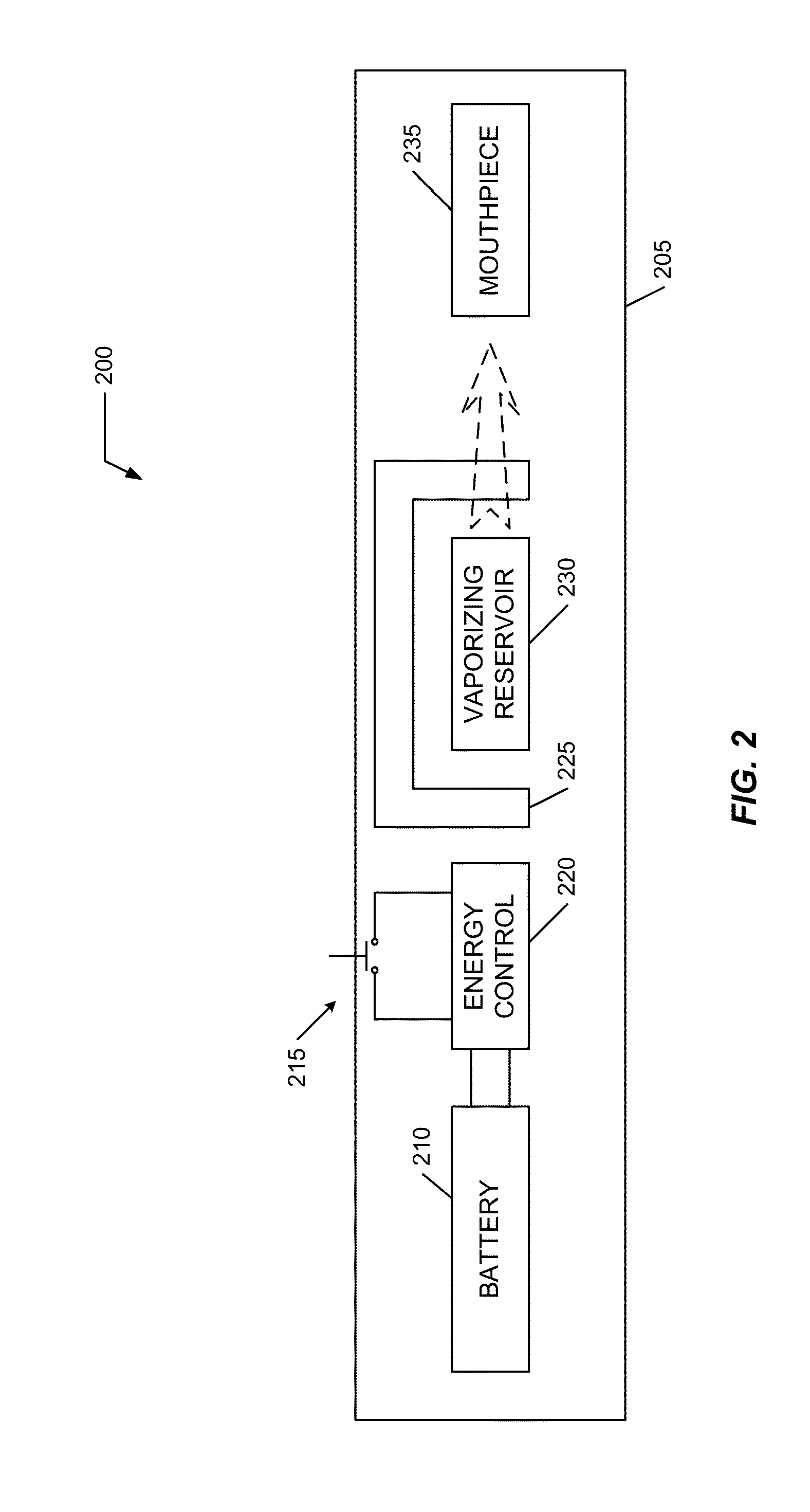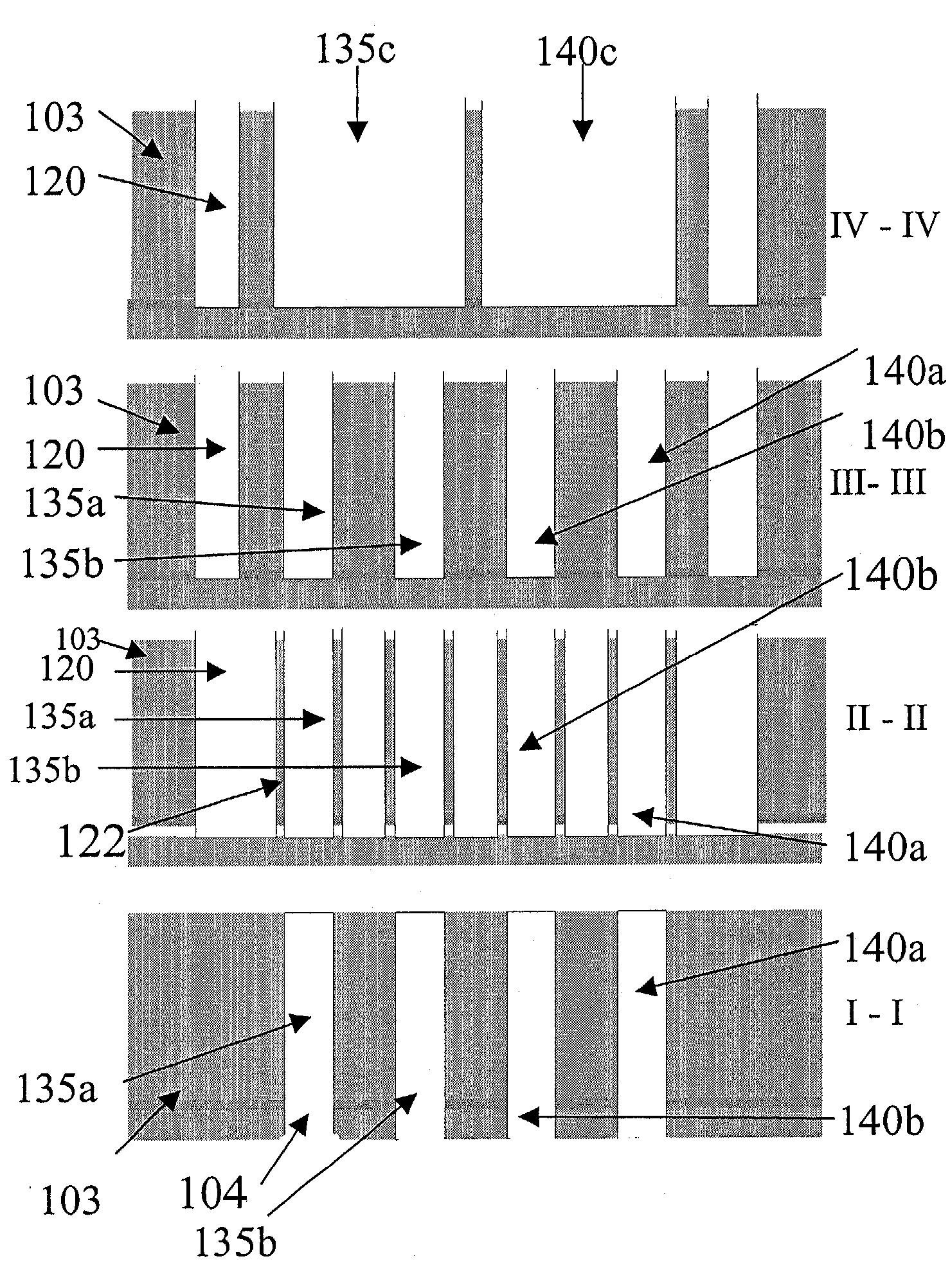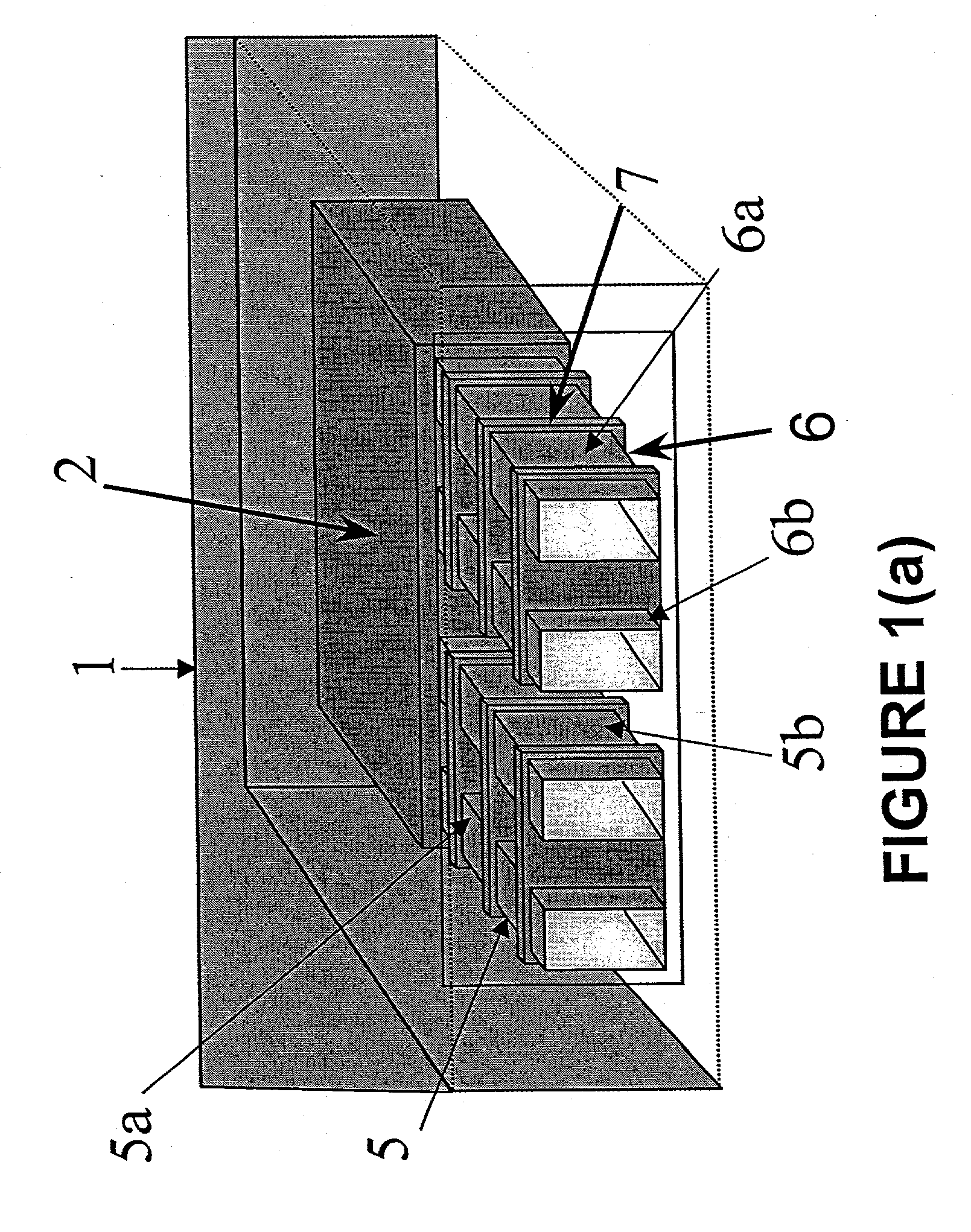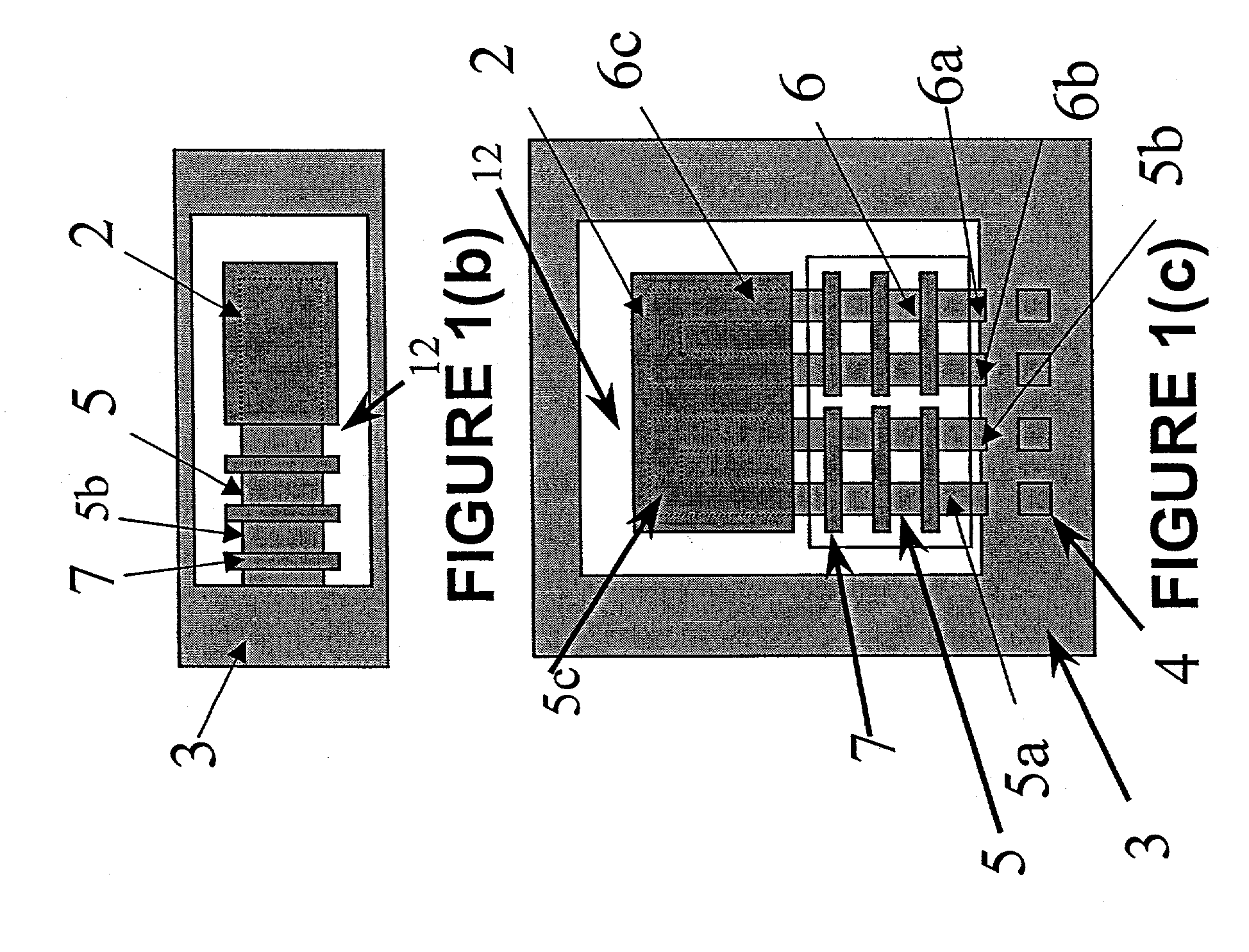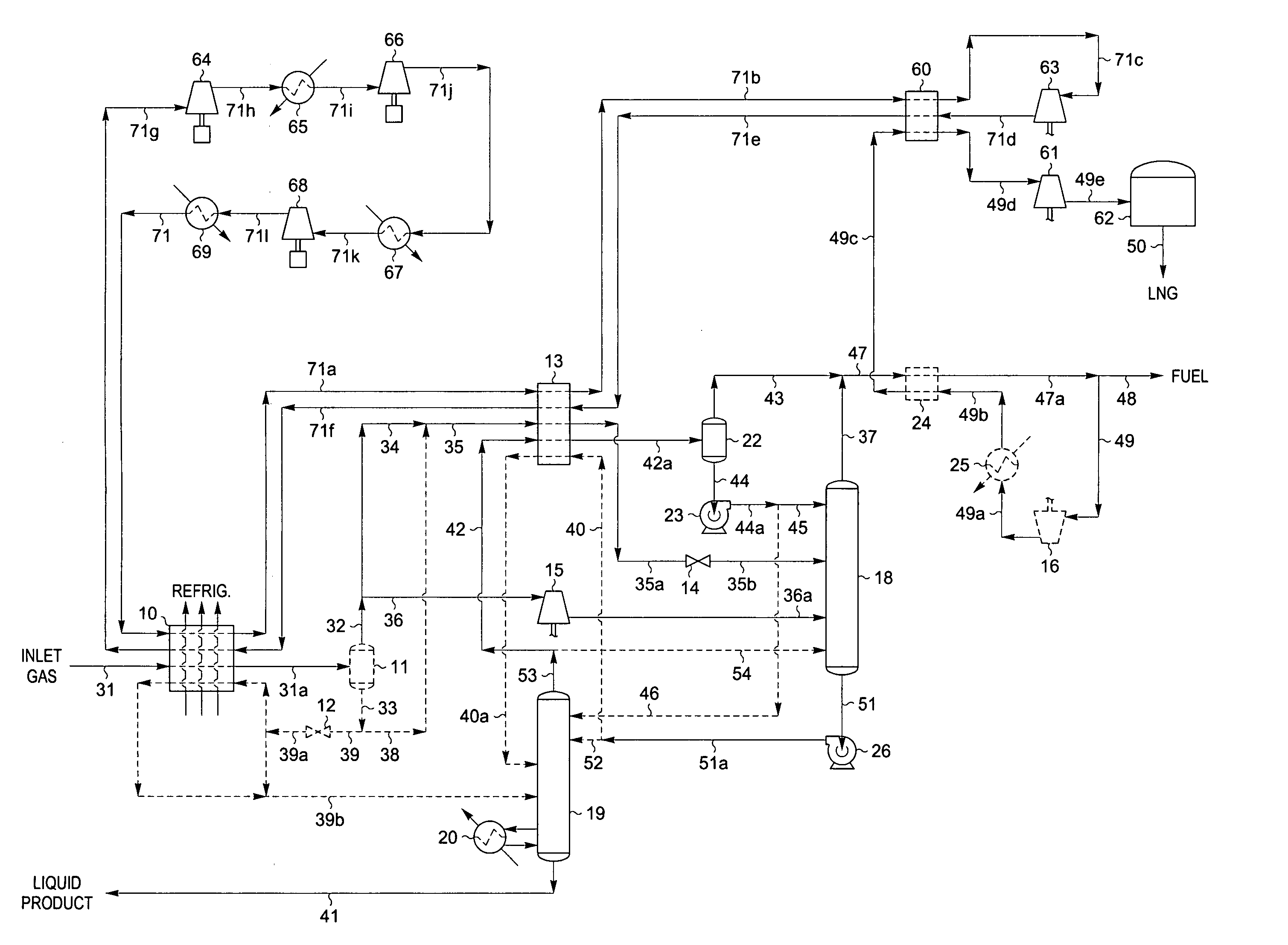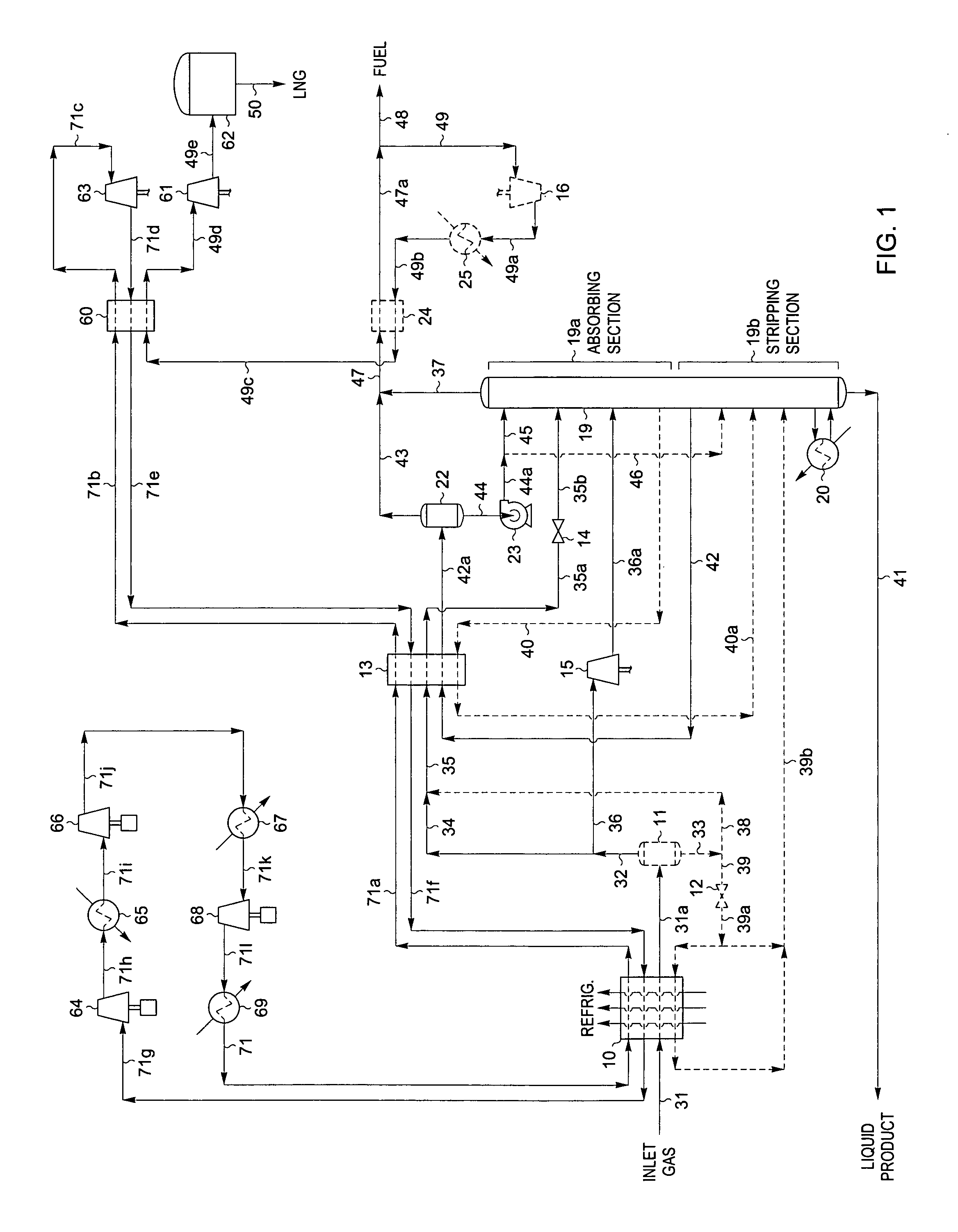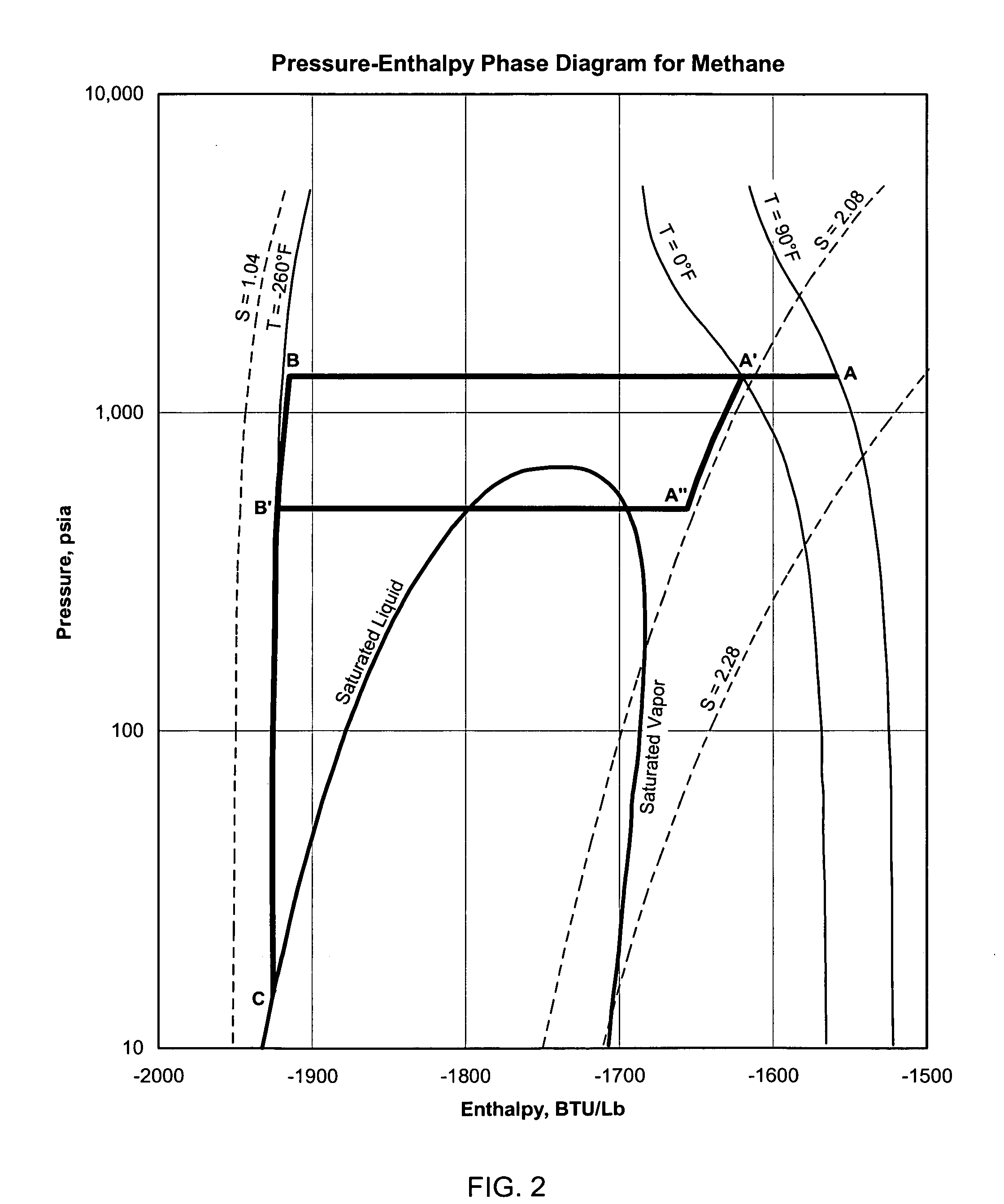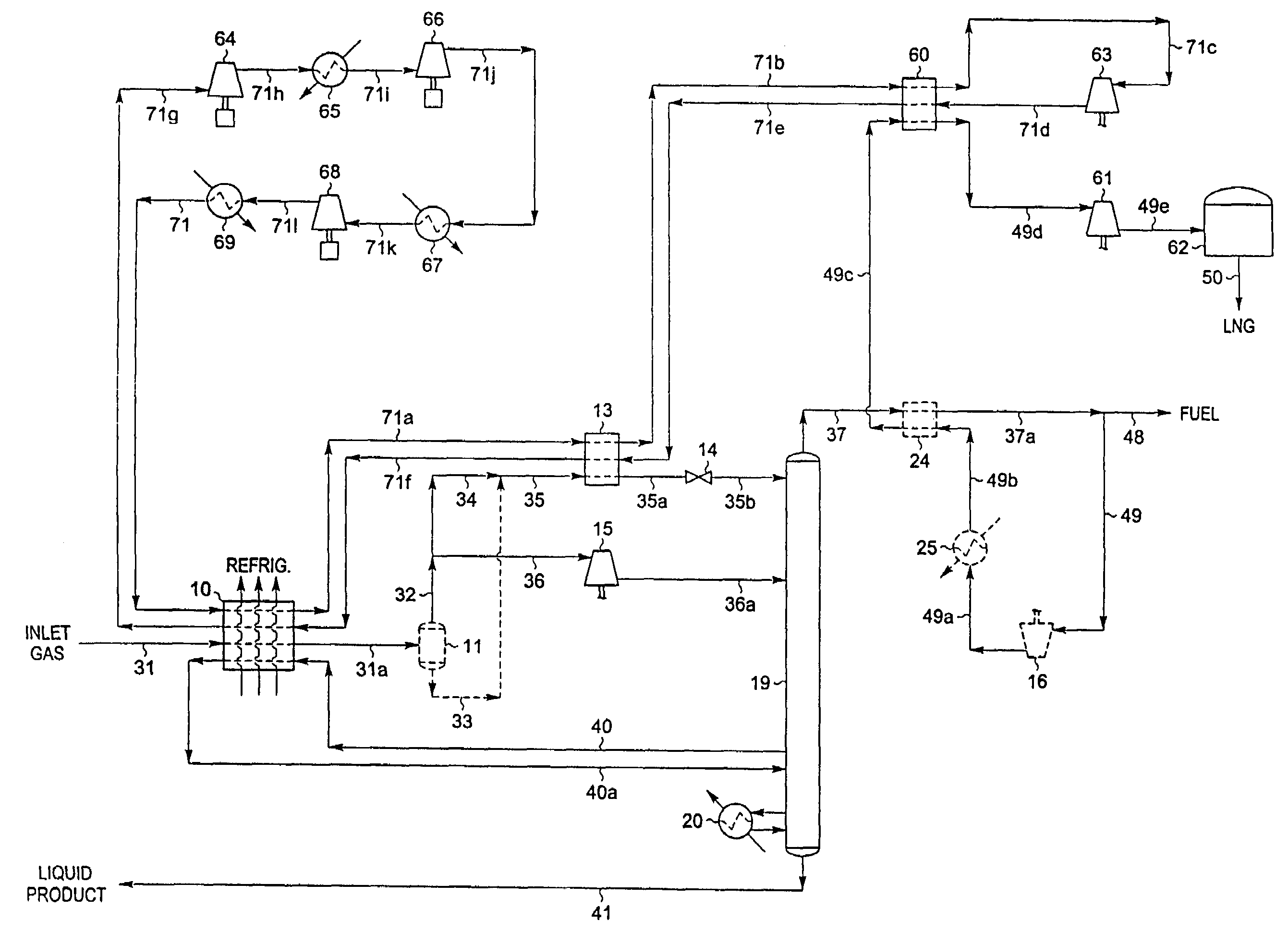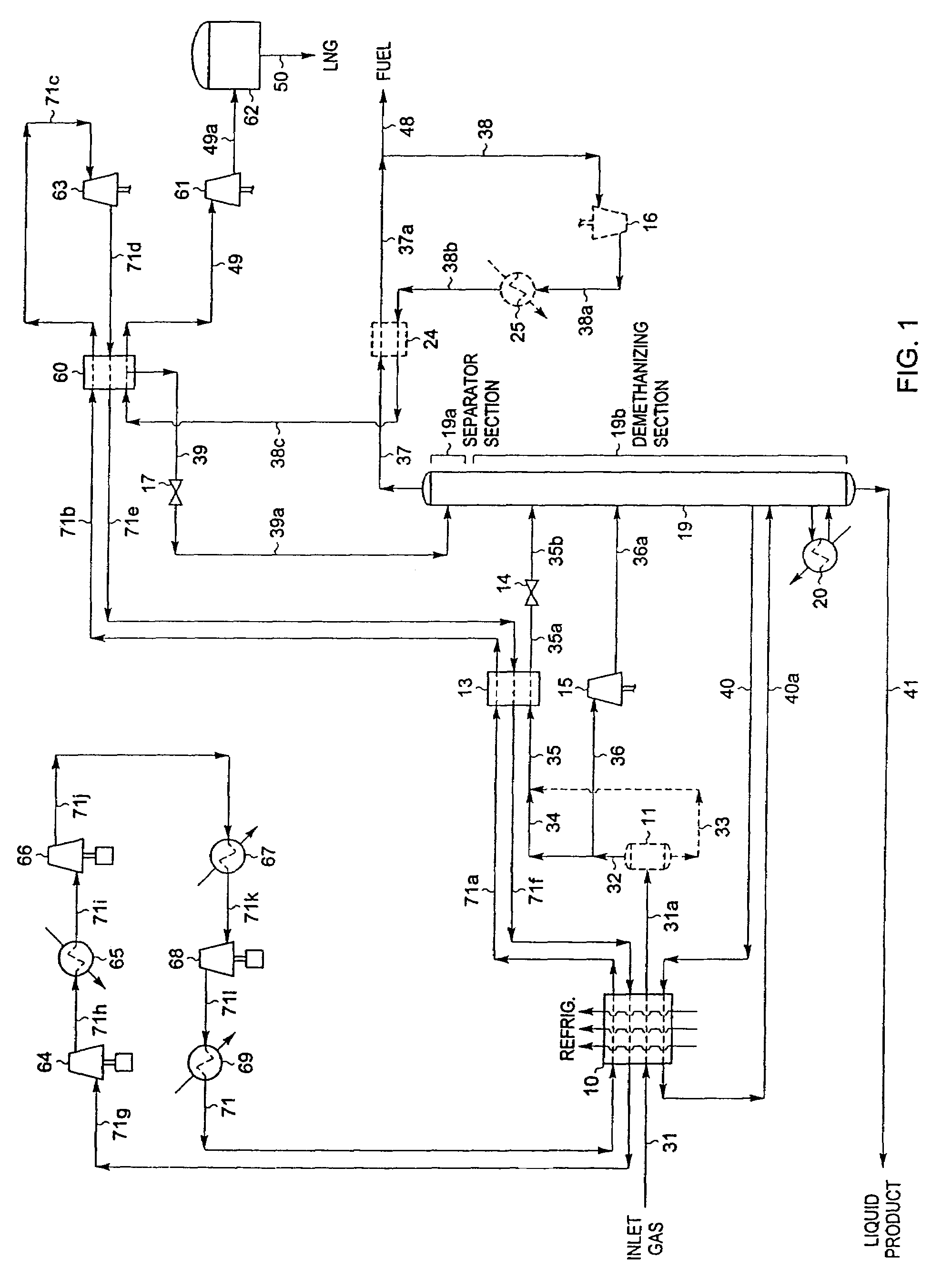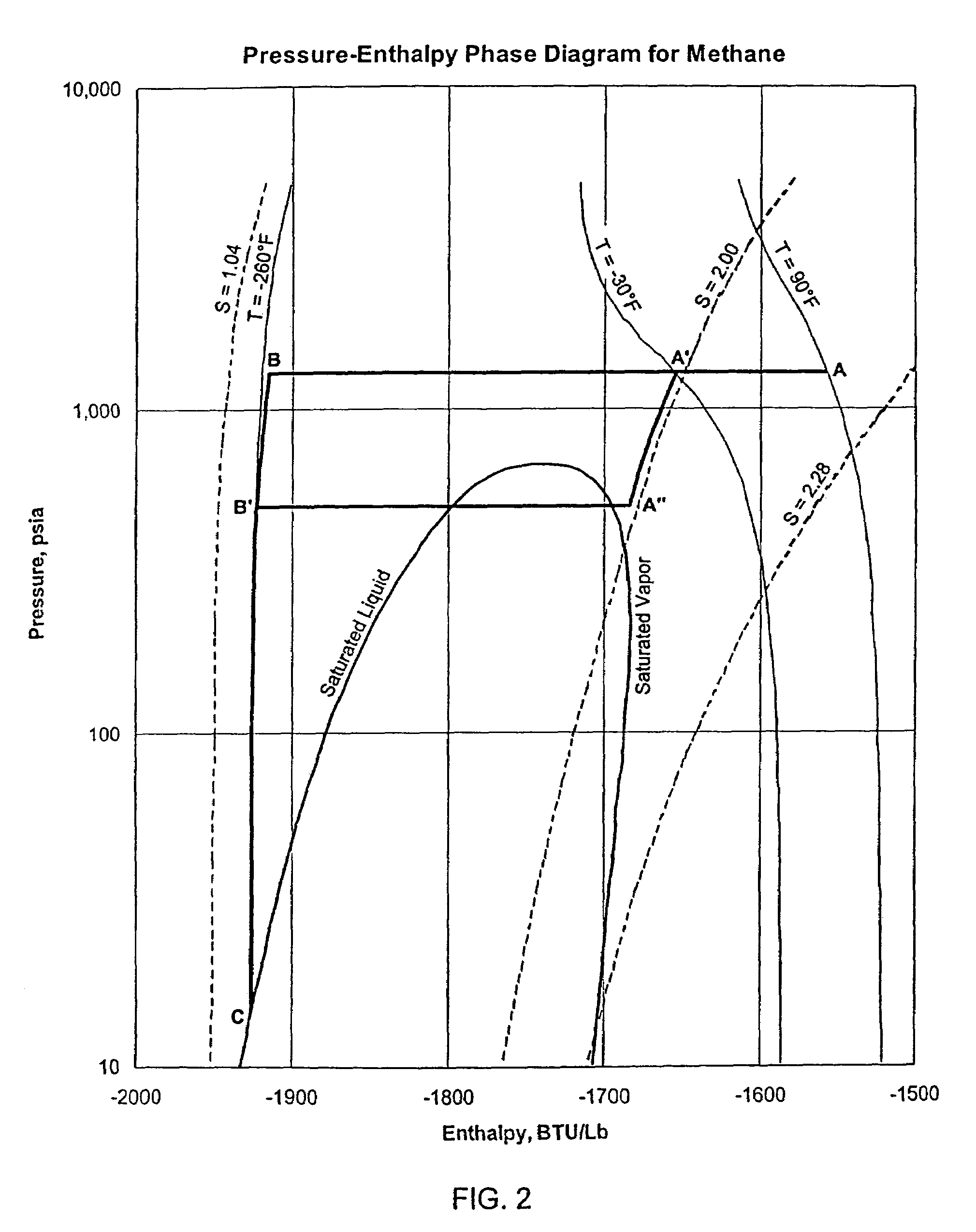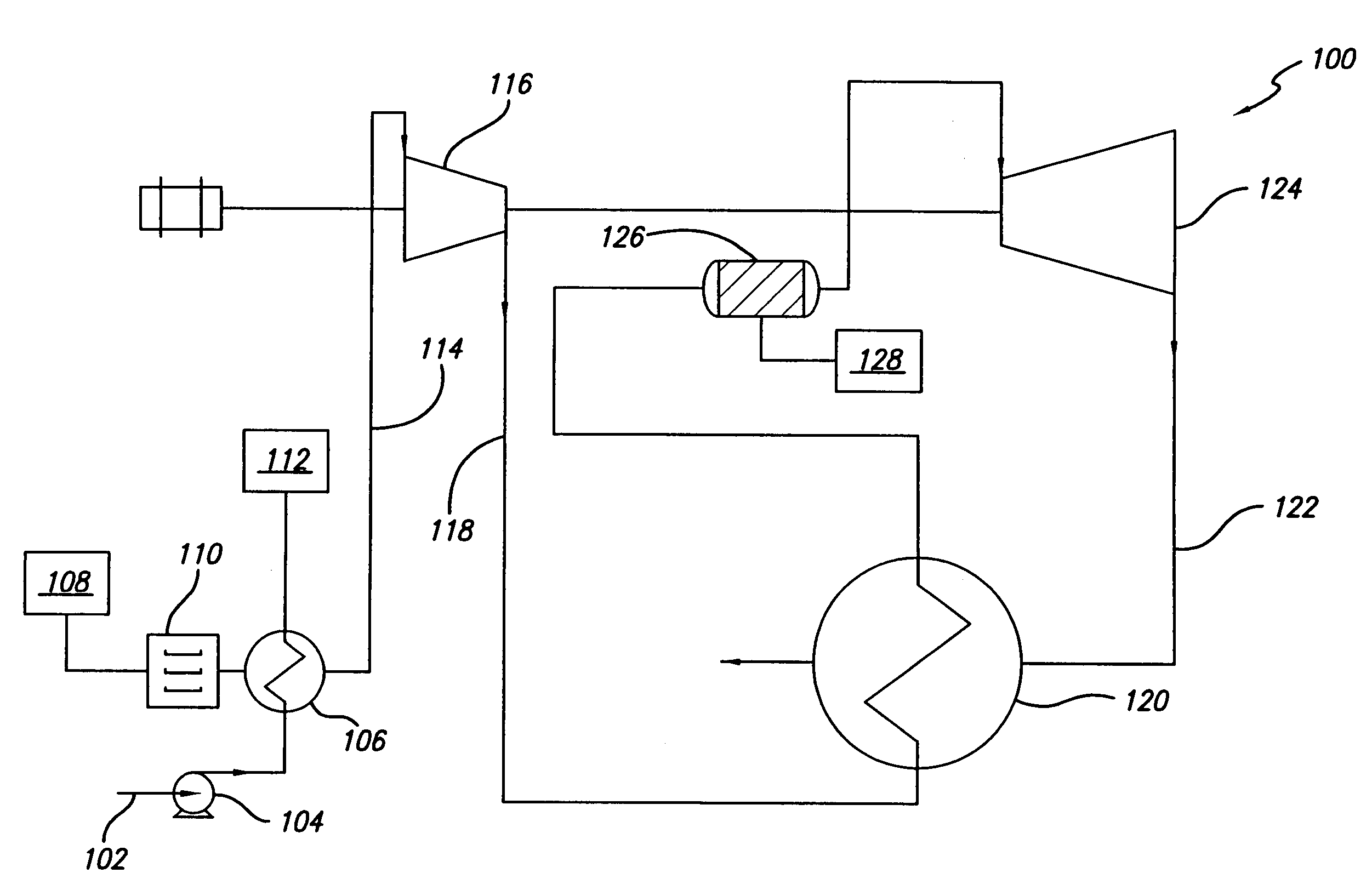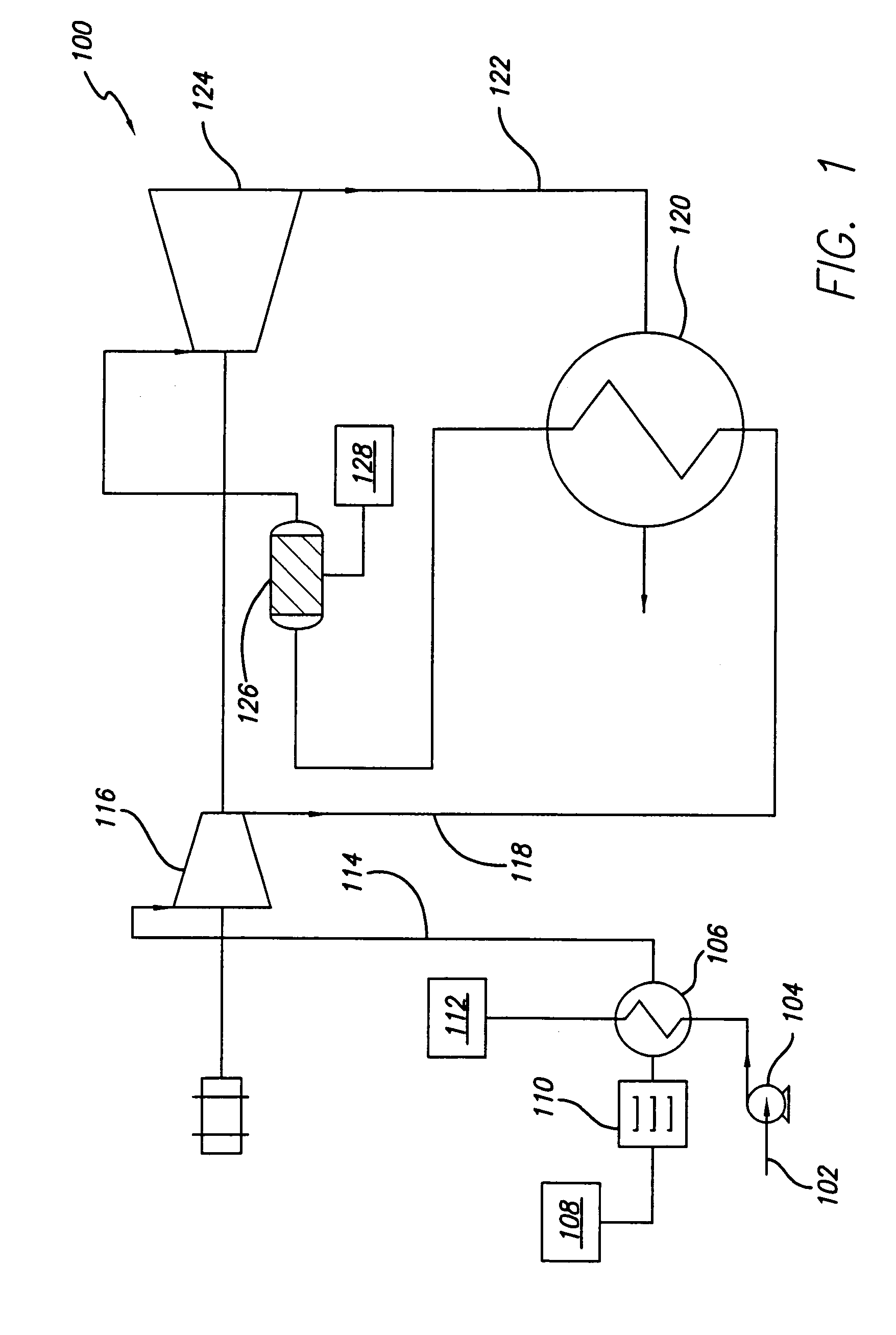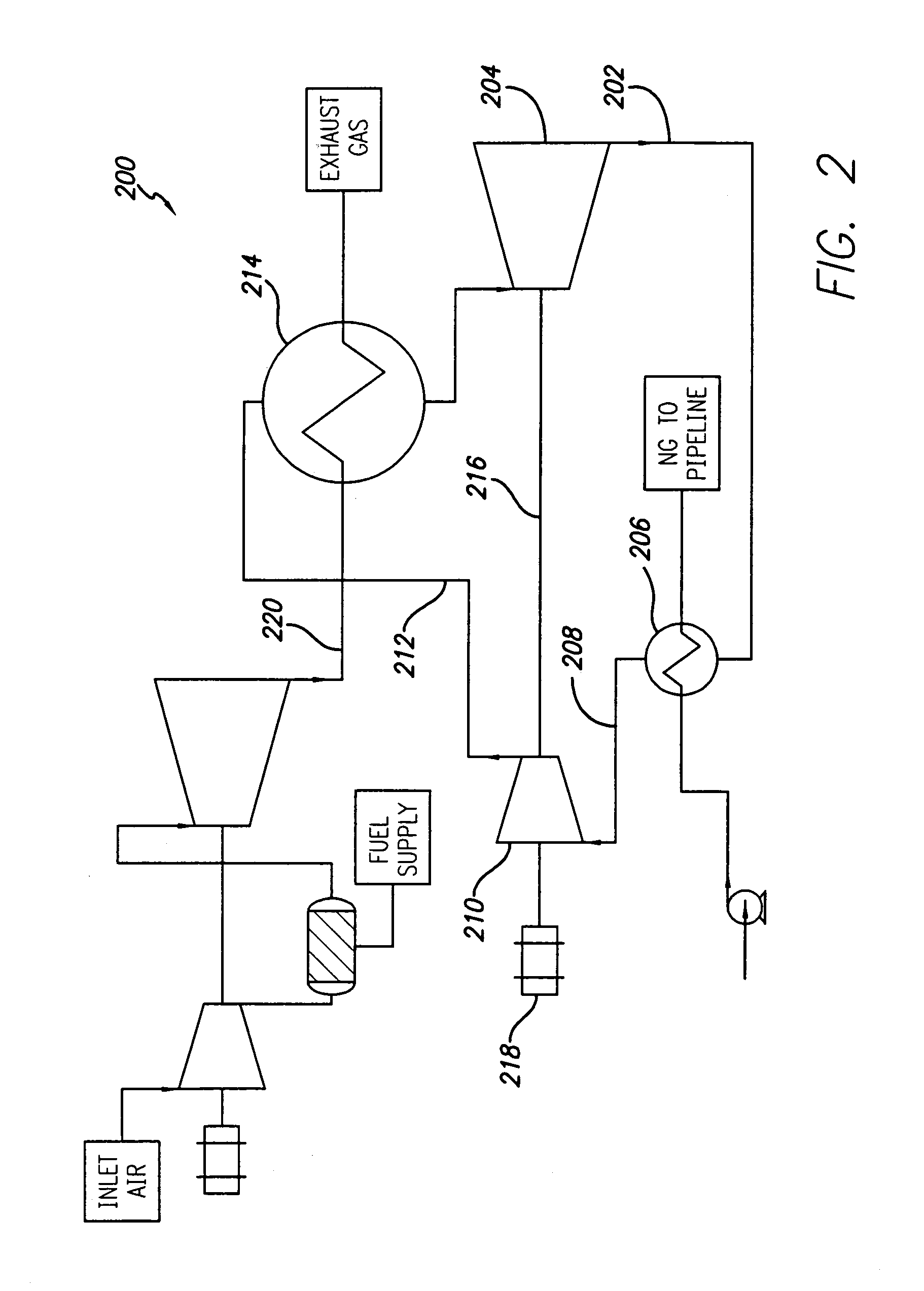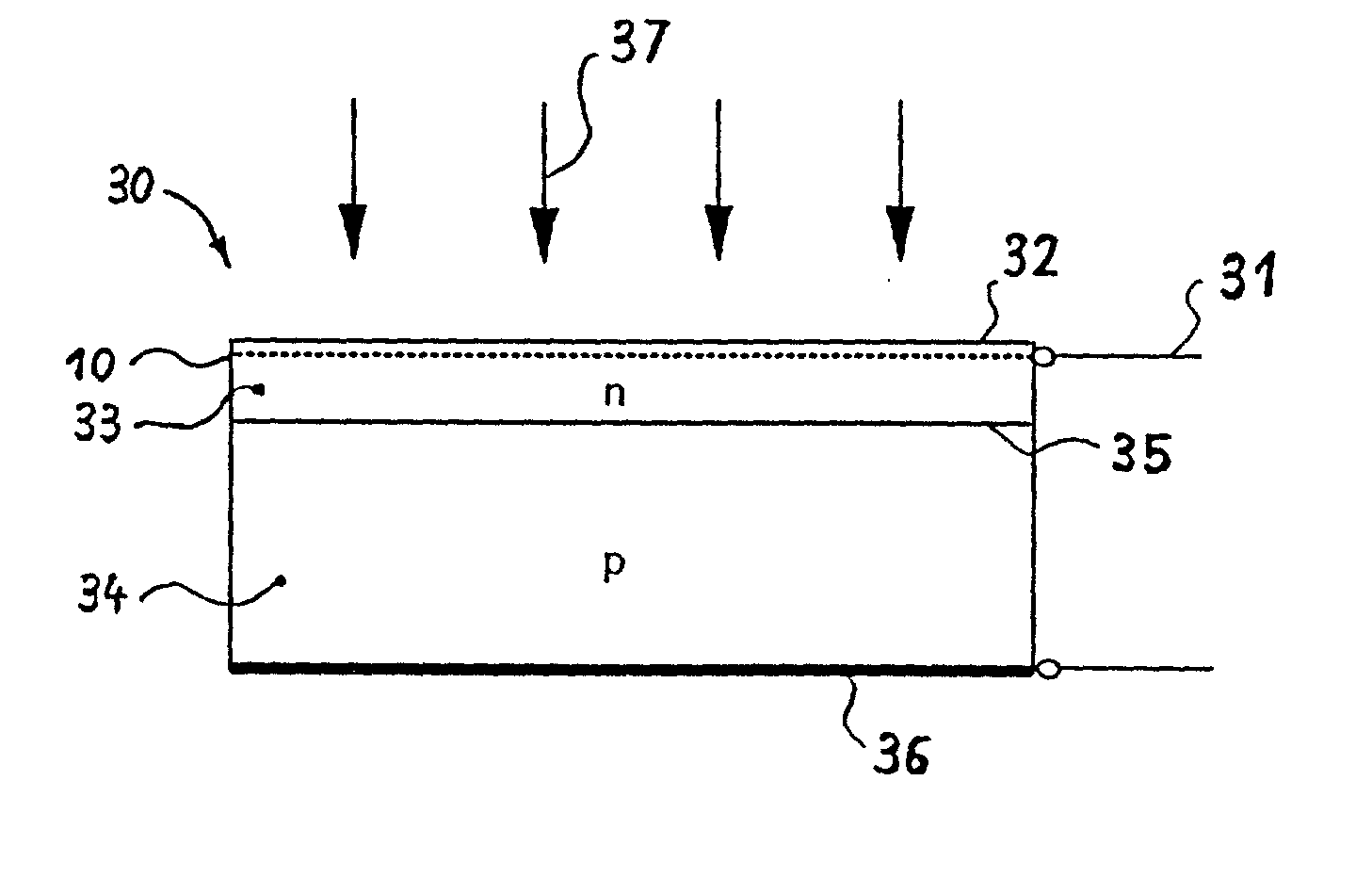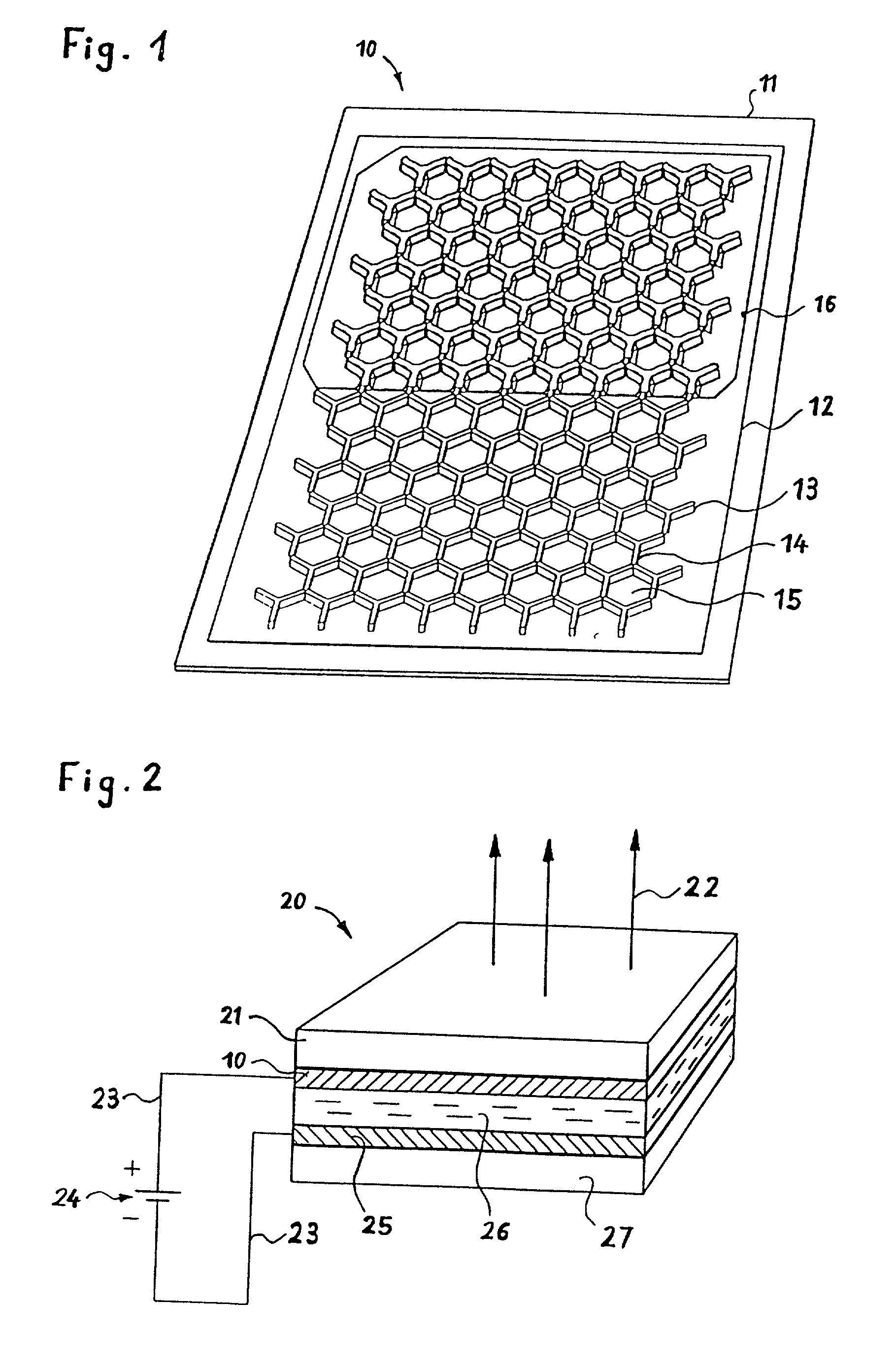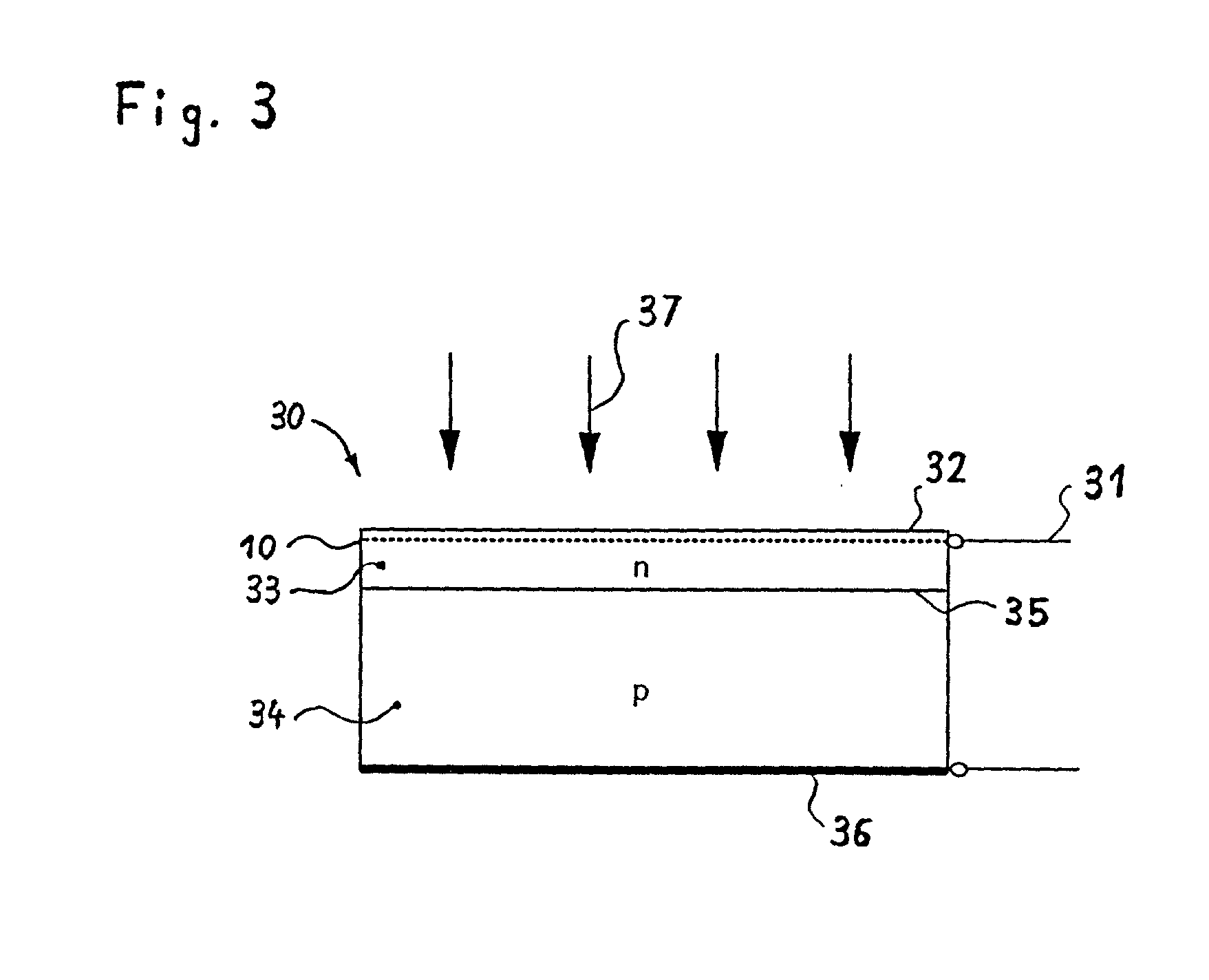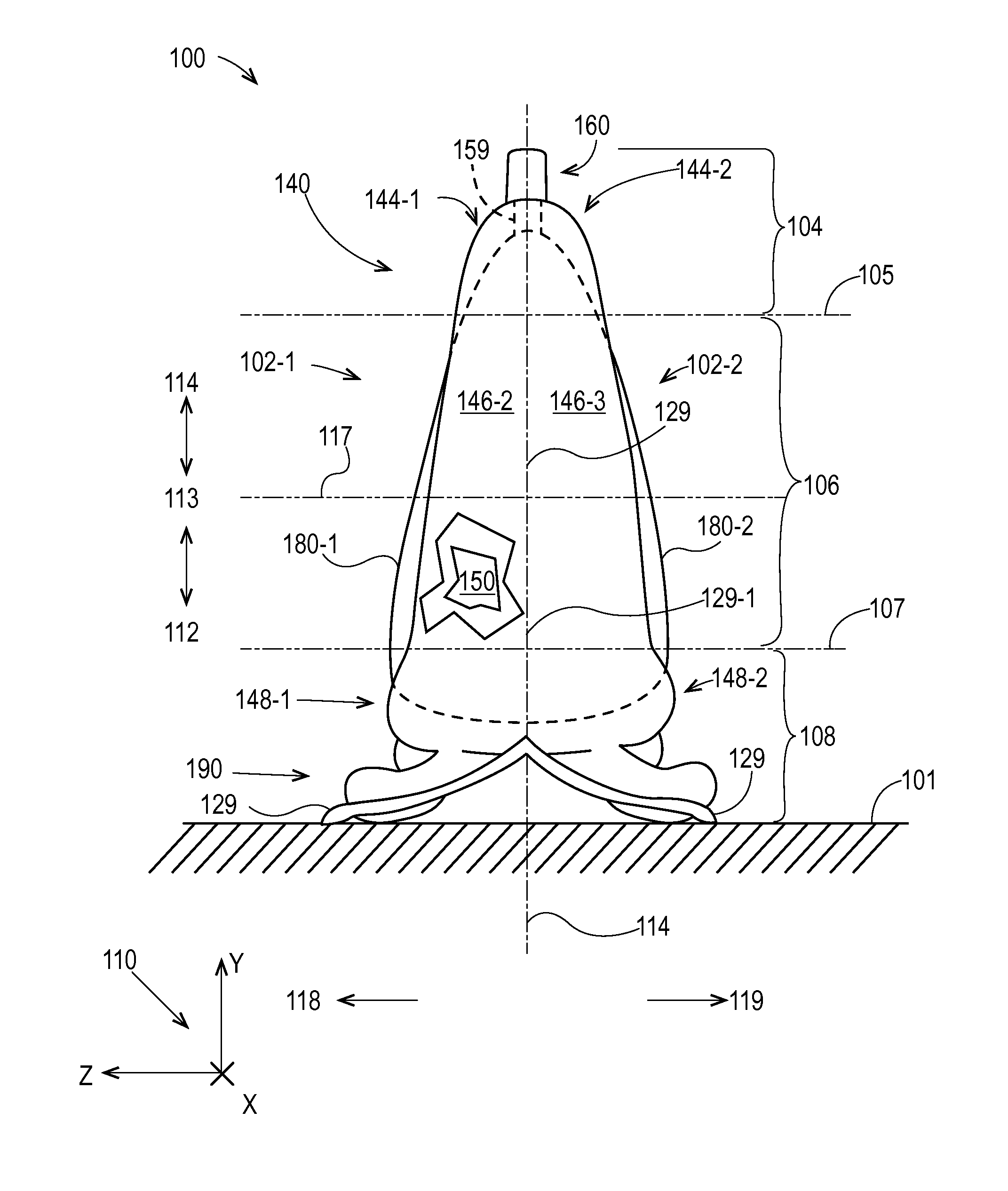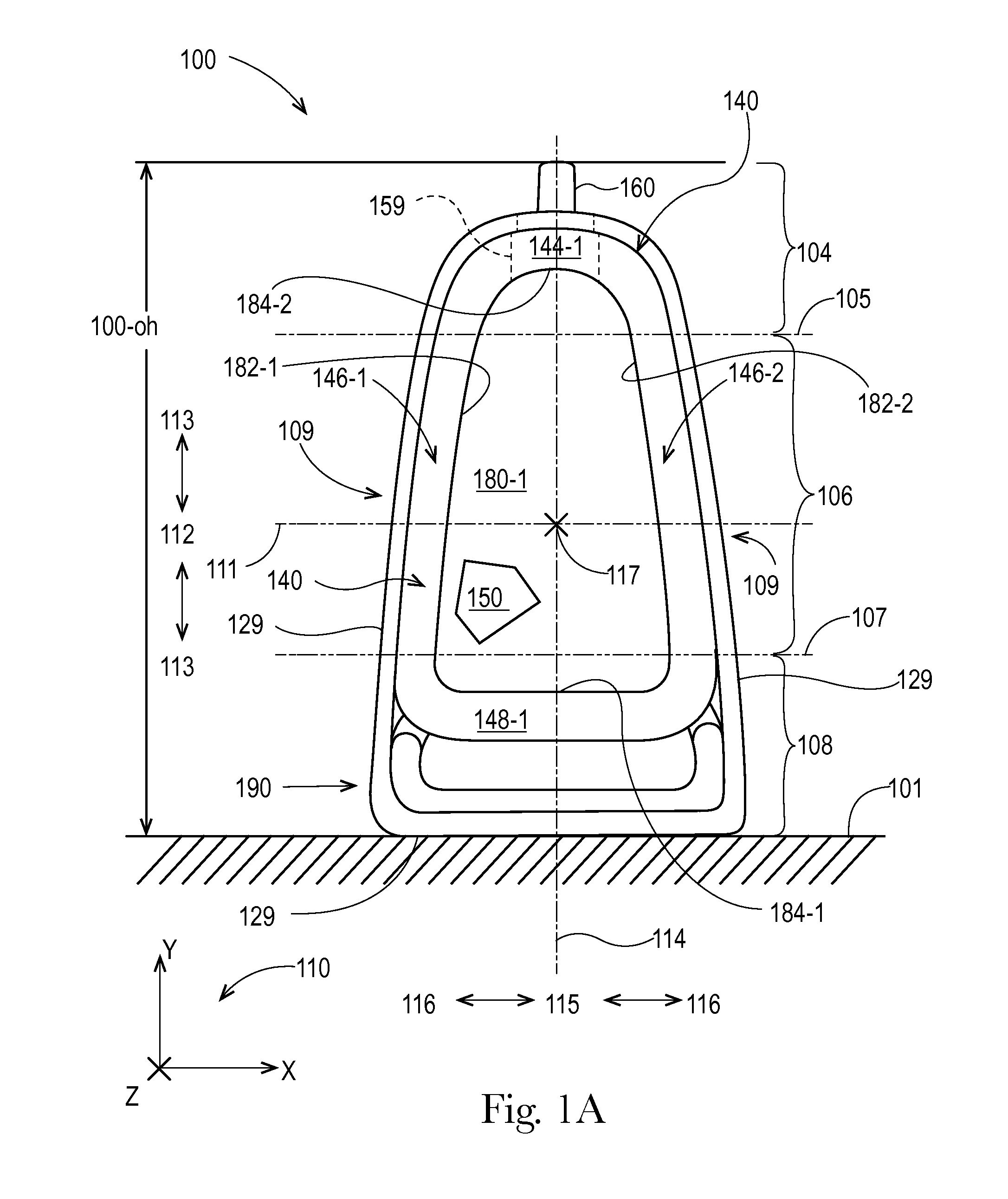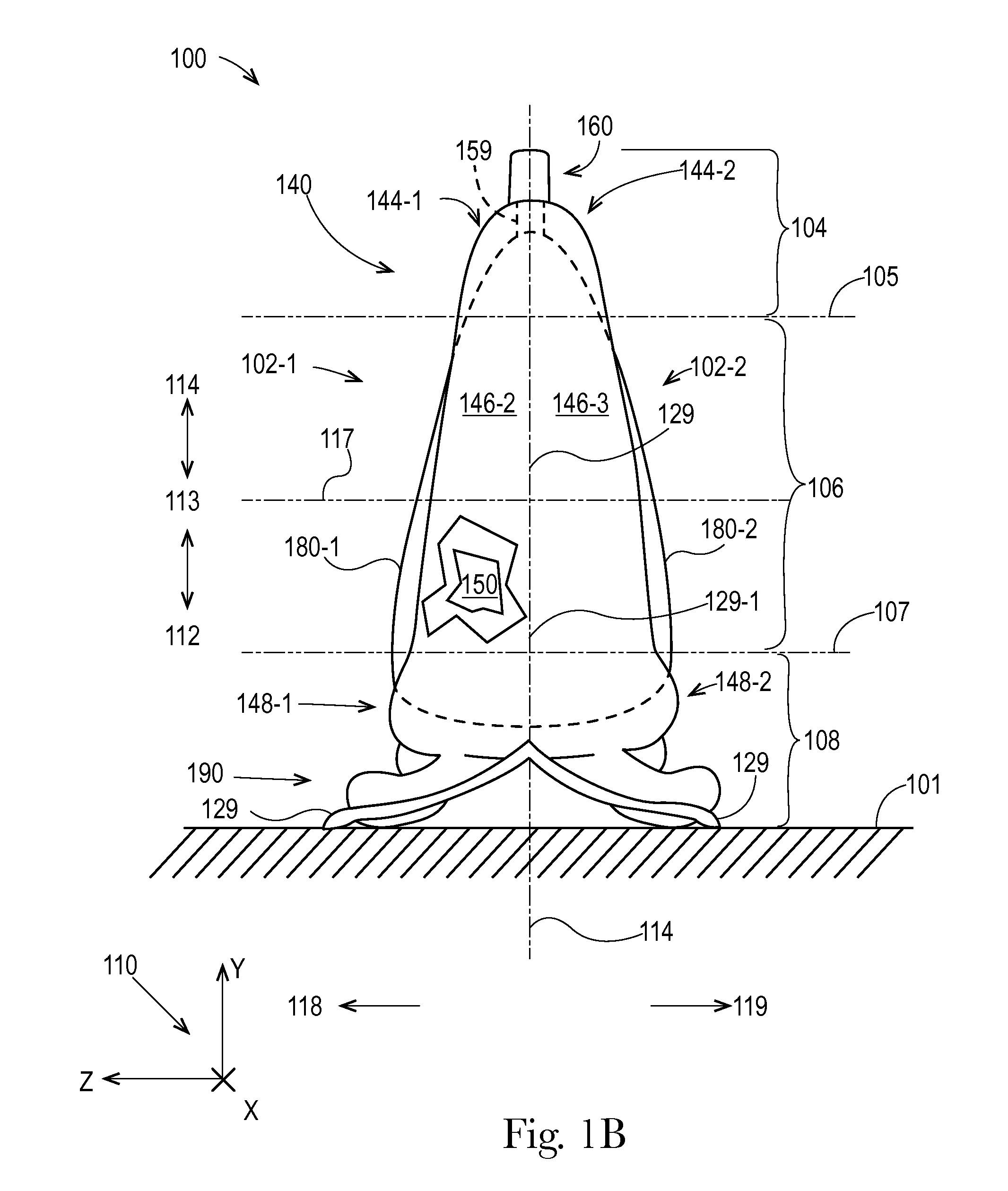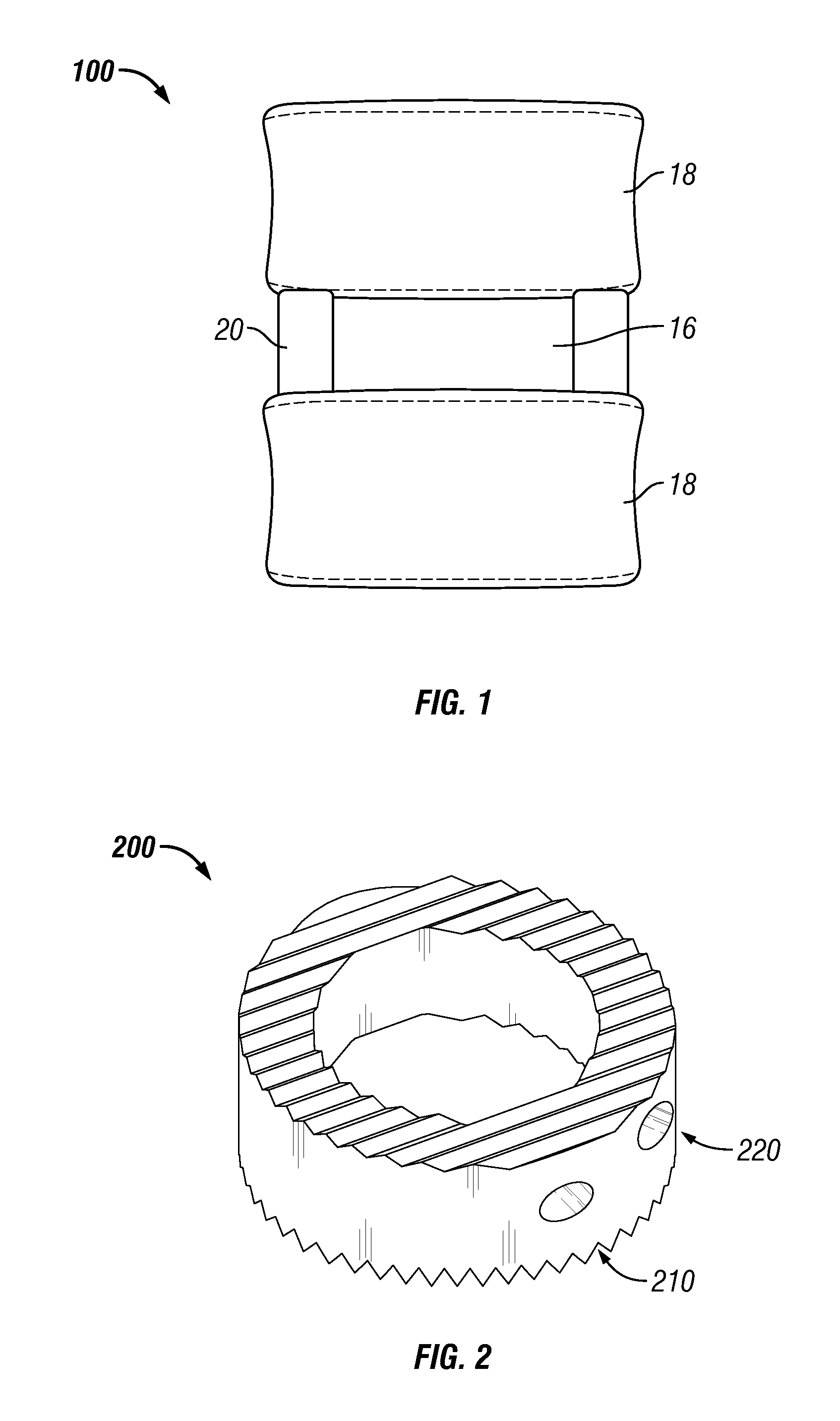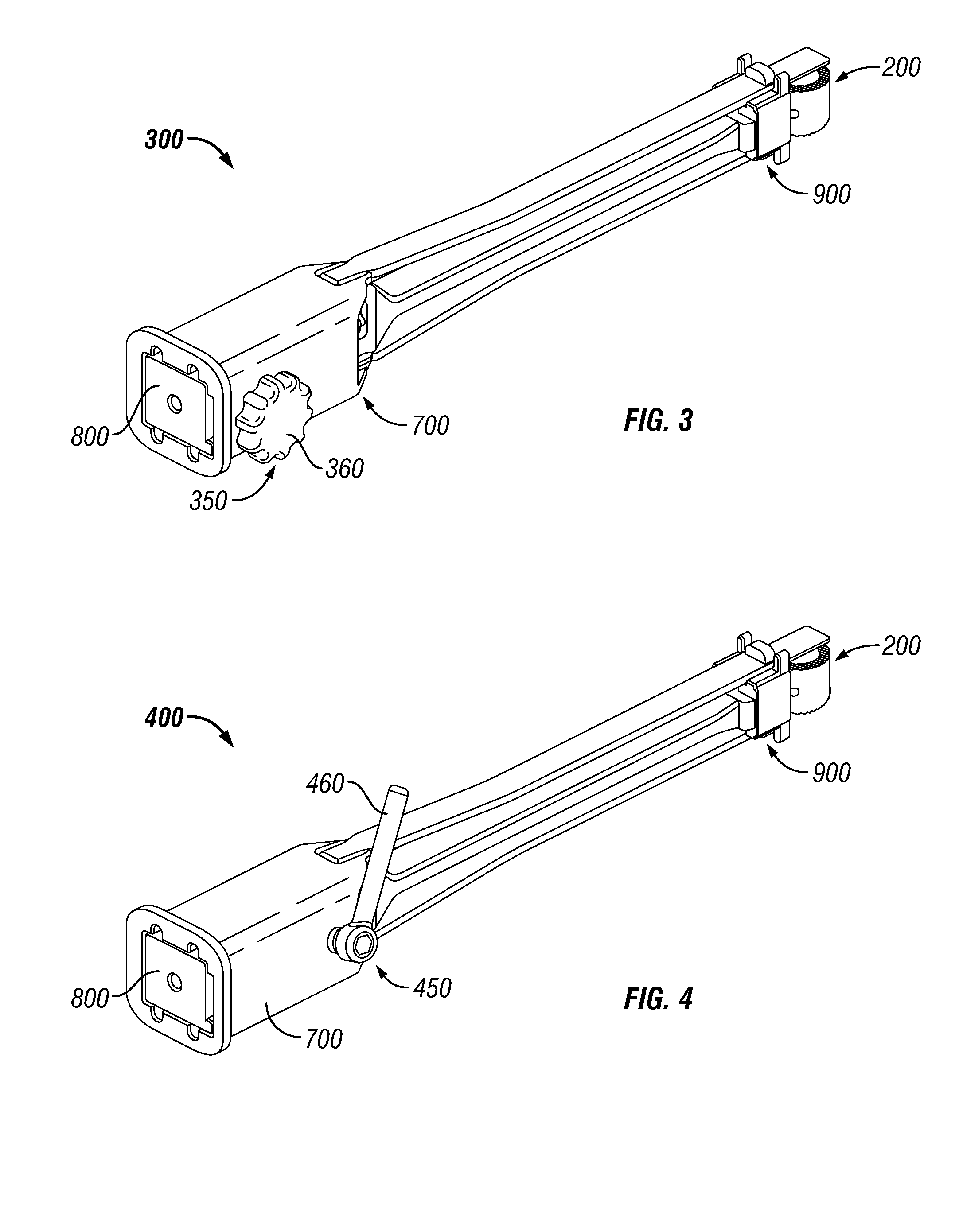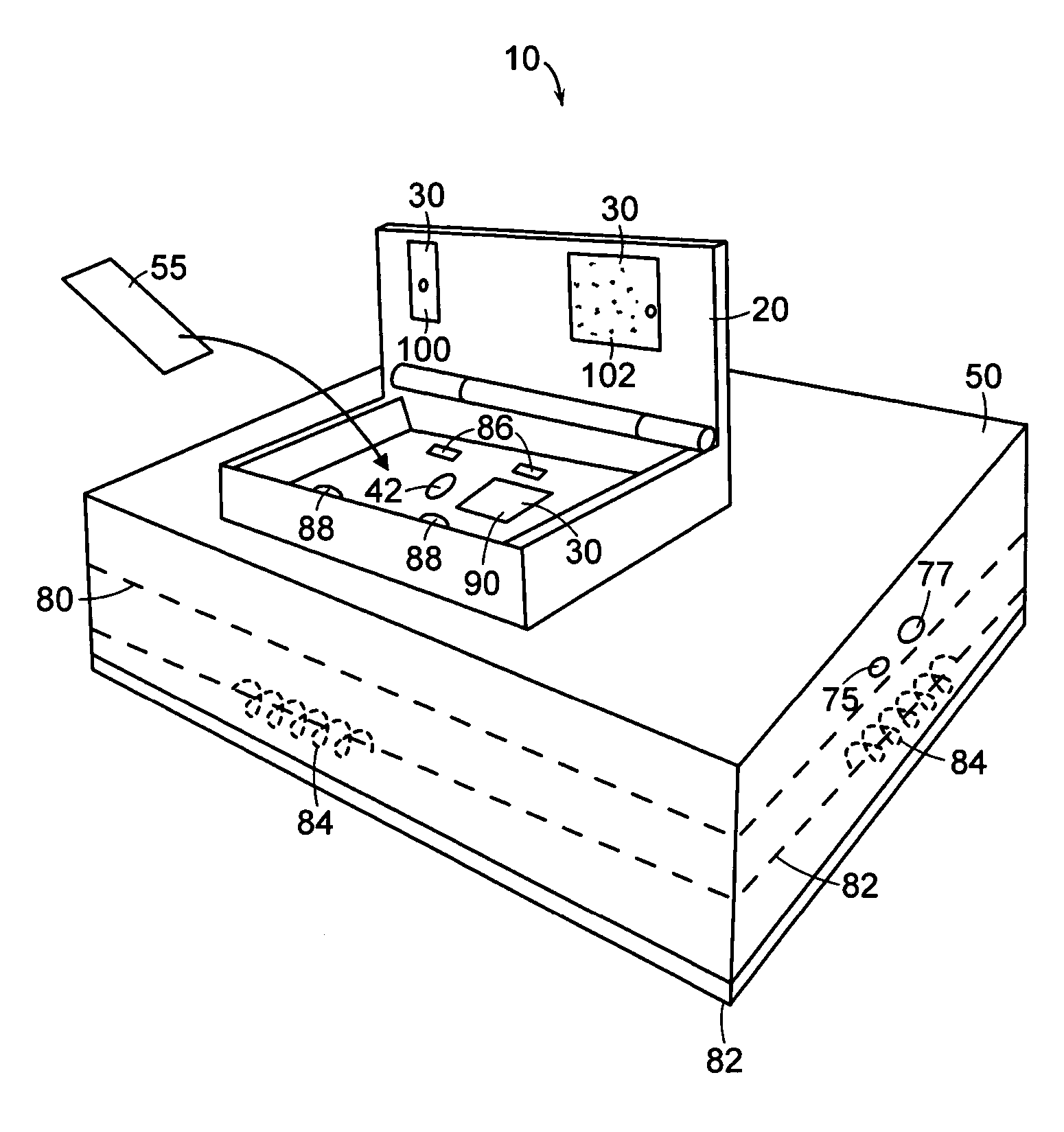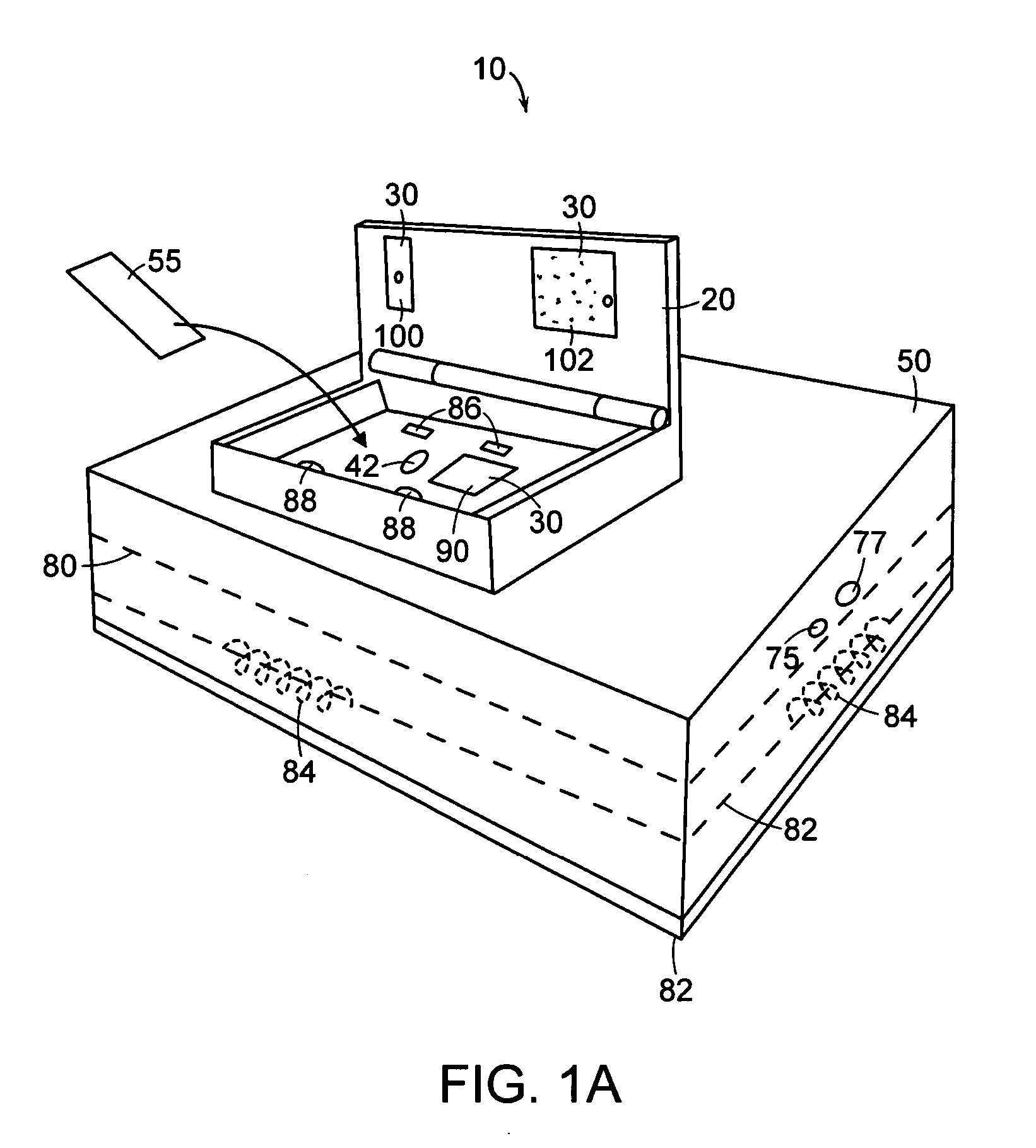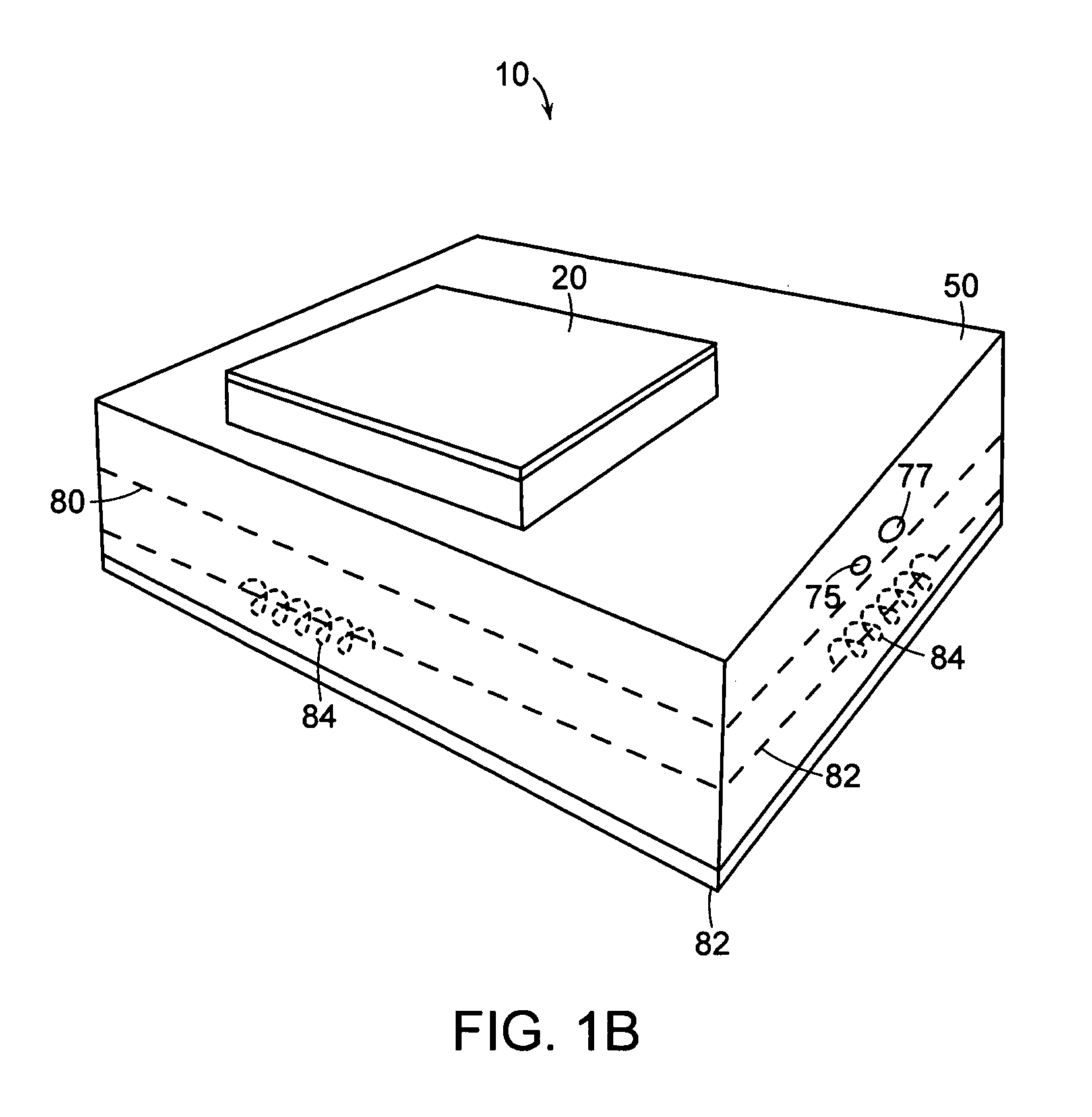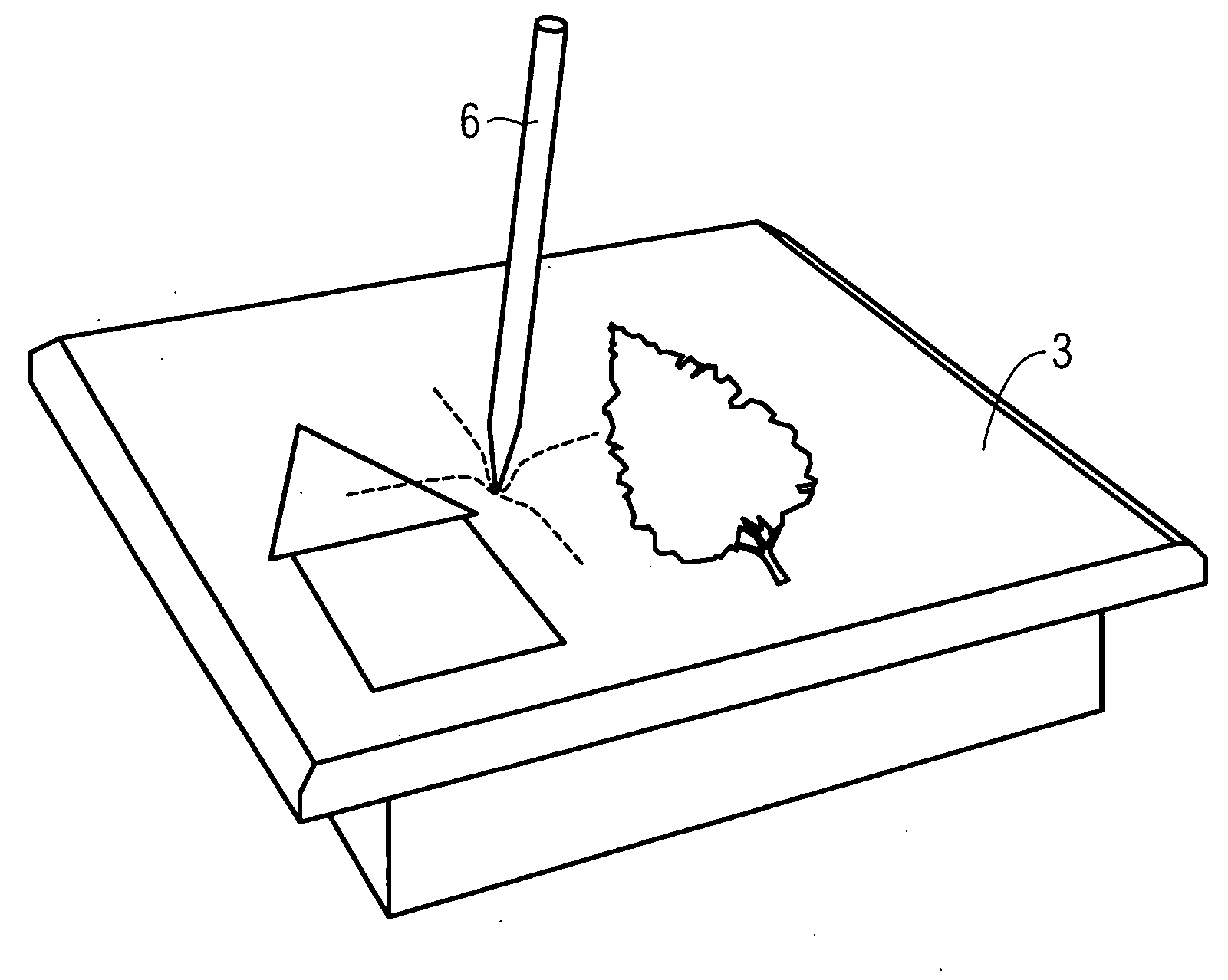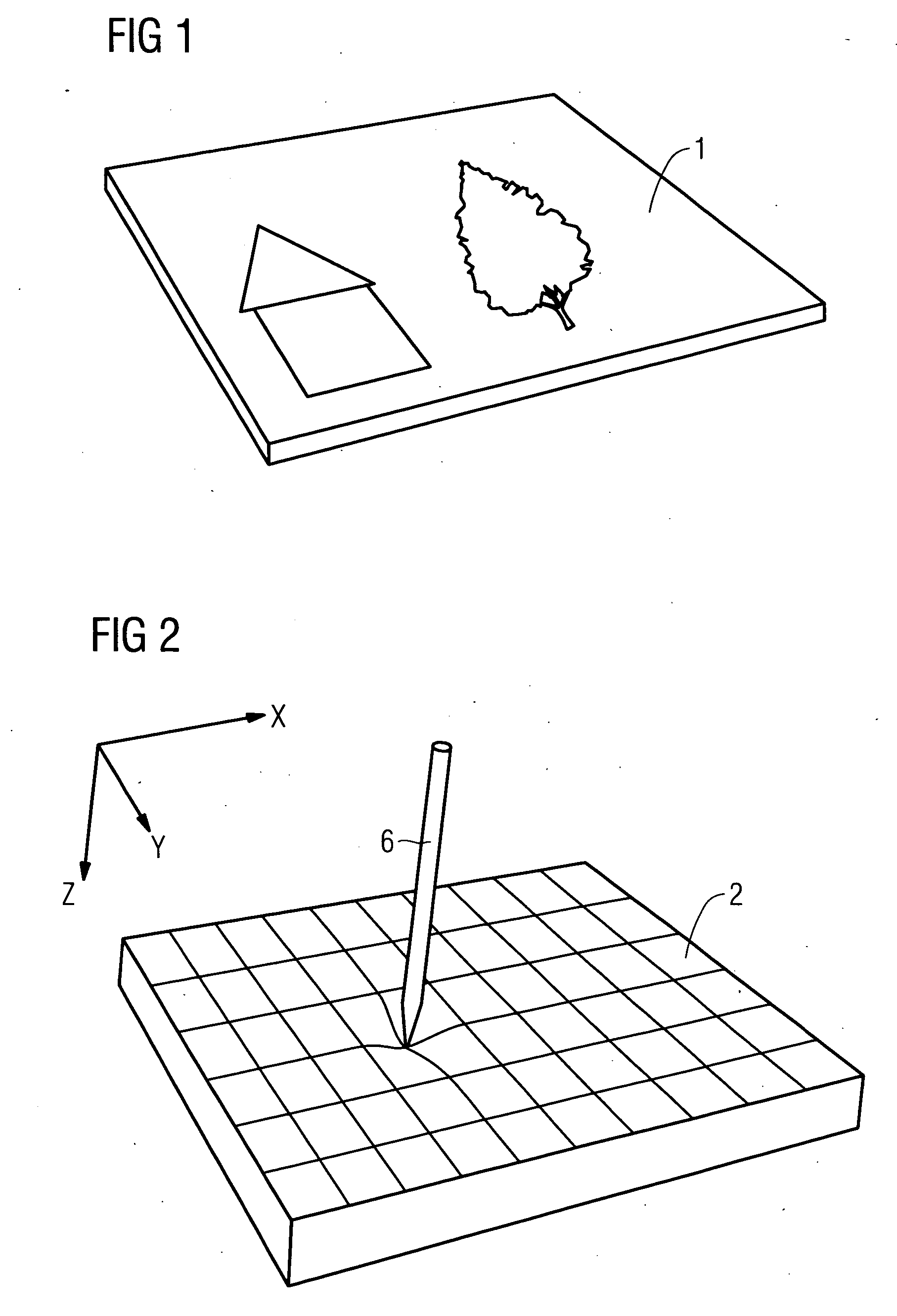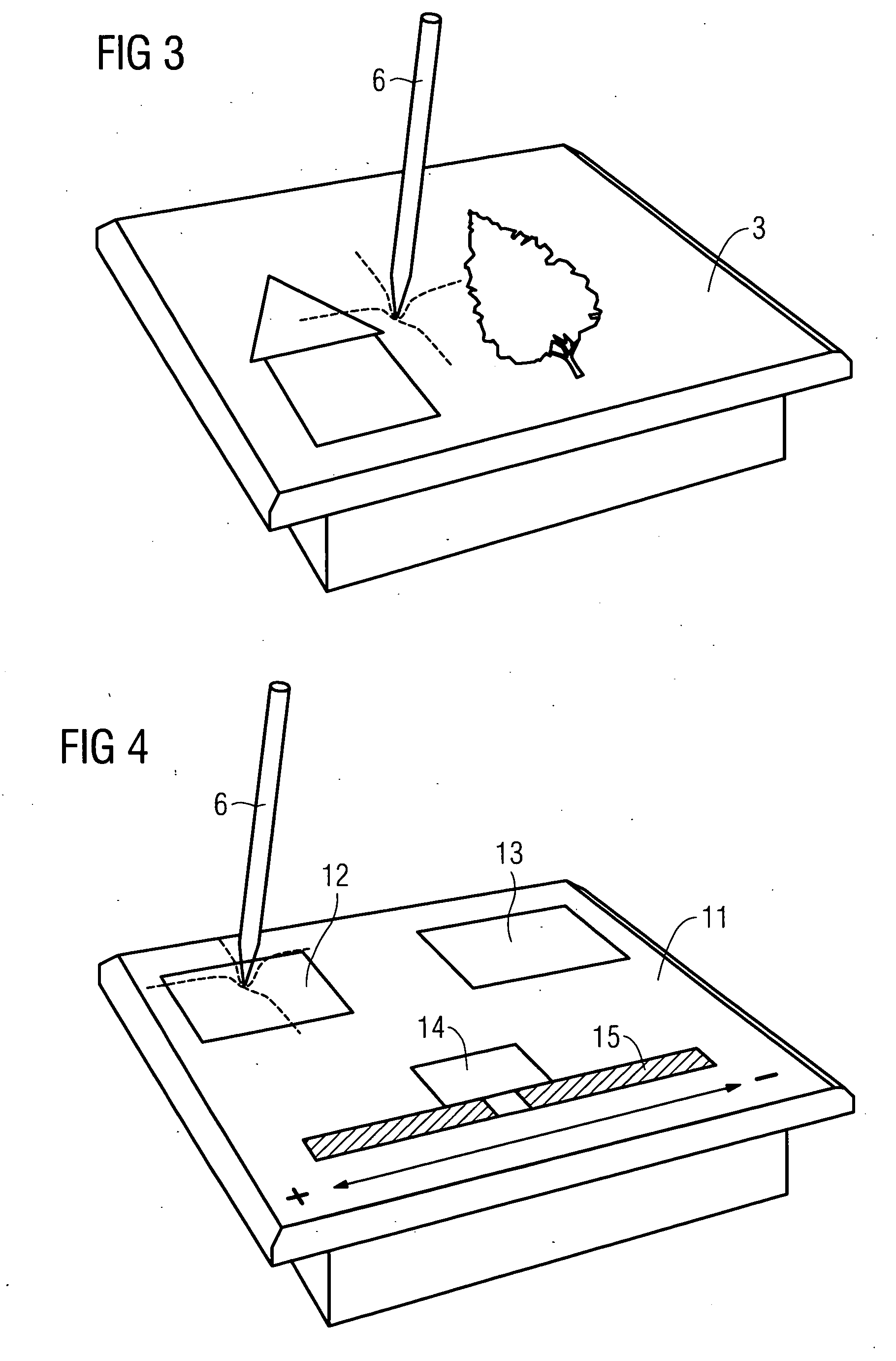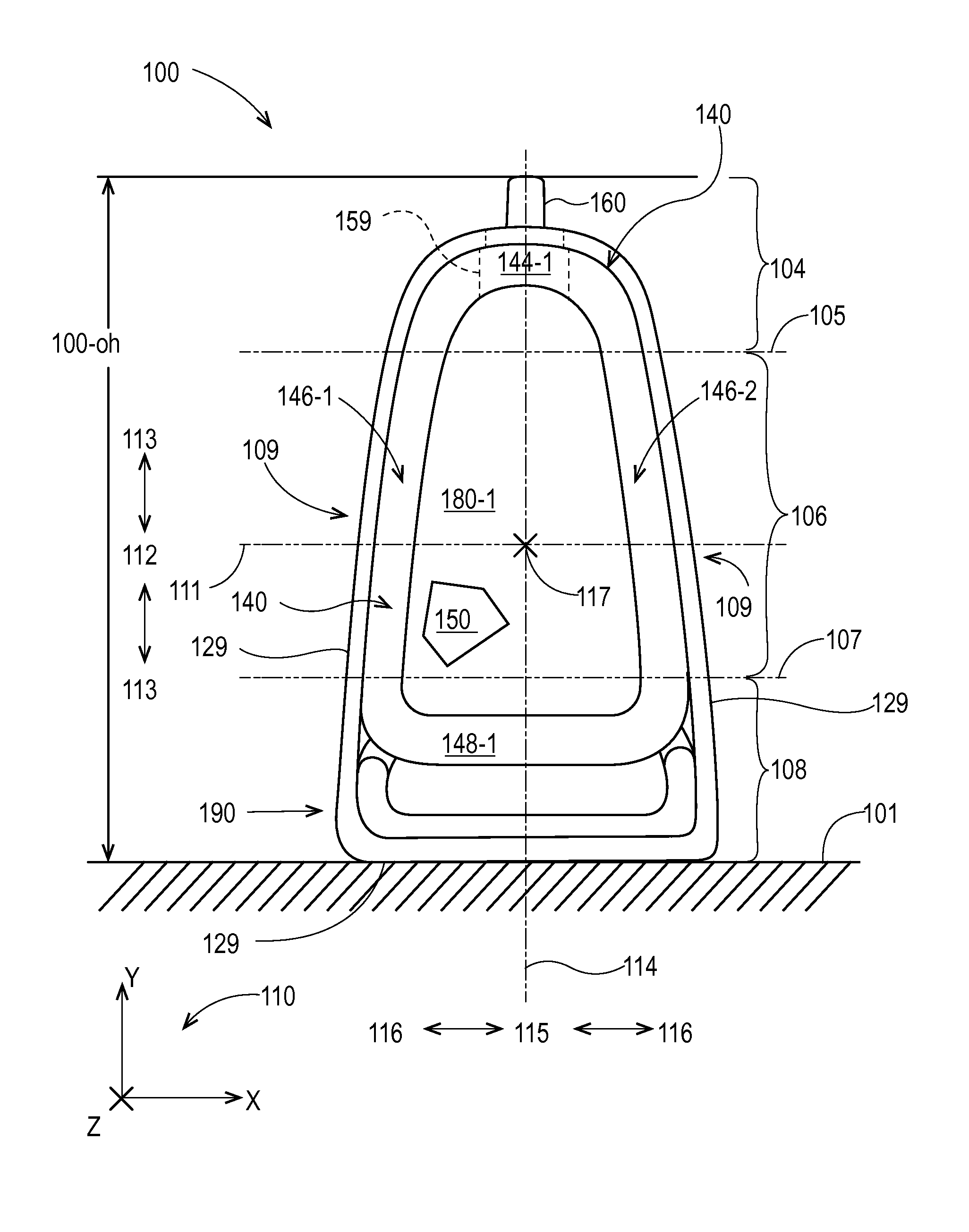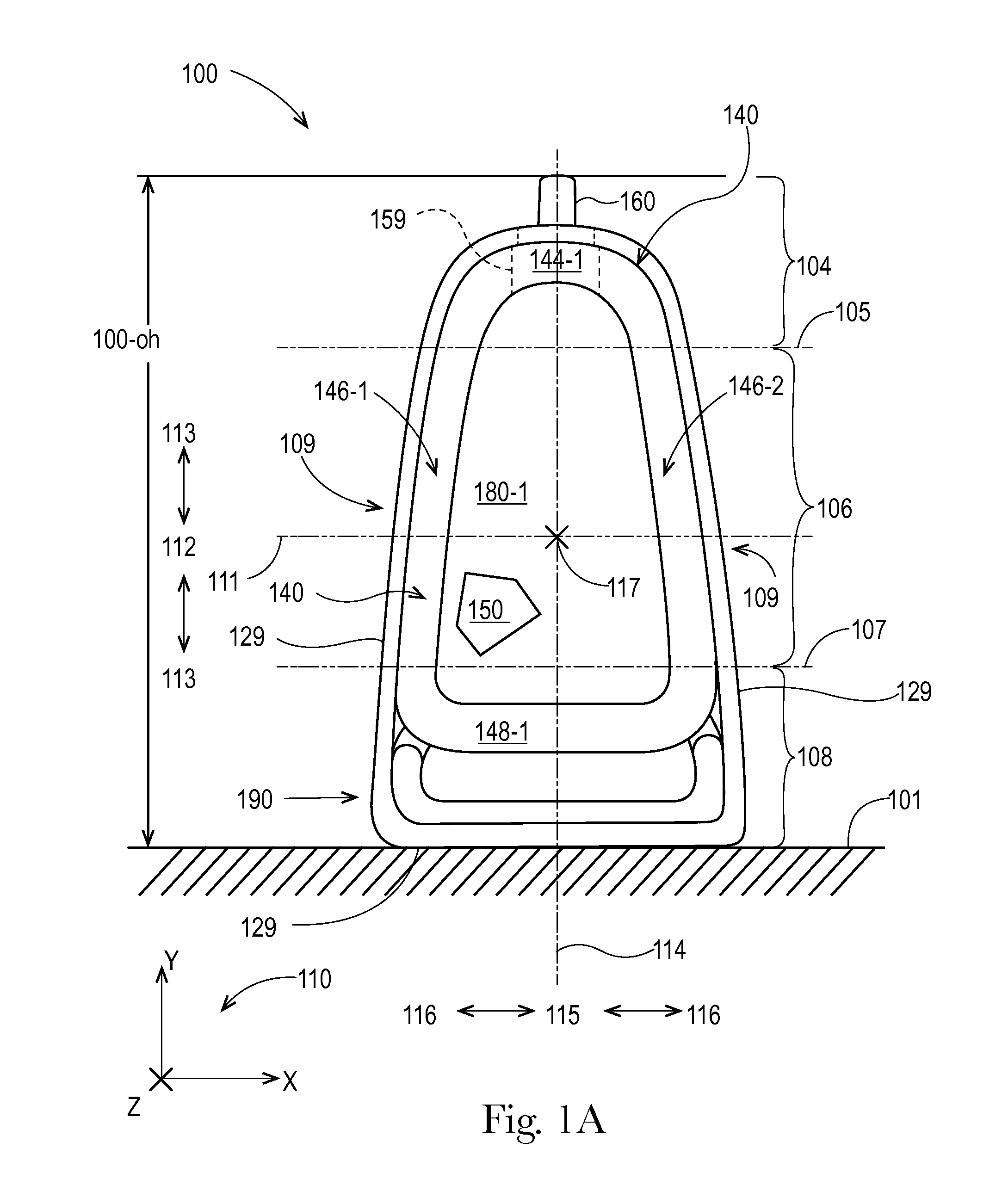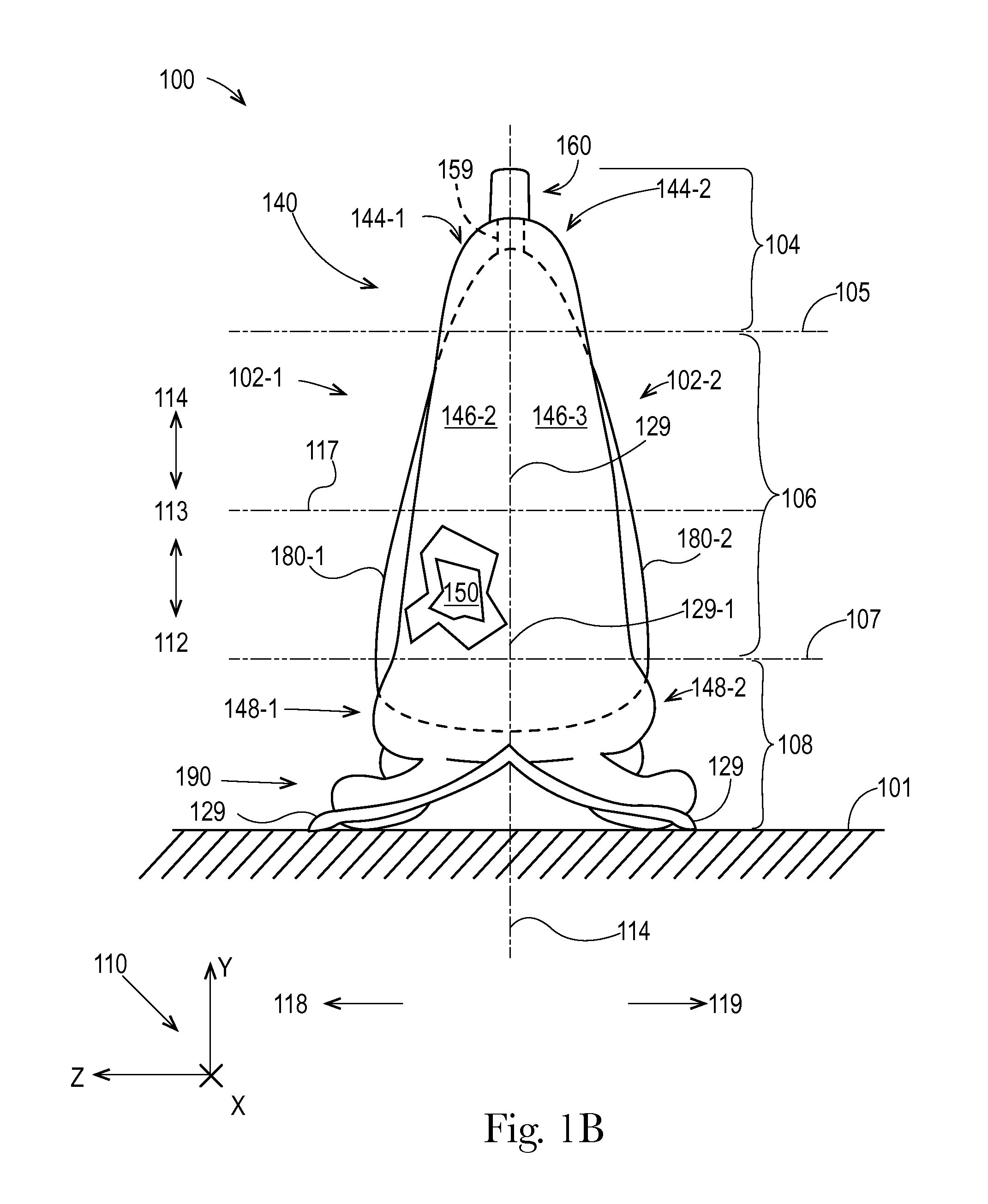Patents
Literature
1321results about How to "Less energy" patented technology
Efficacy Topic
Property
Owner
Technical Advancement
Application Domain
Technology Topic
Technology Field Word
Patent Country/Region
Patent Type
Patent Status
Application Year
Inventor
Apparatus and method for tissue removal
InactiveUS20020029055A1Less energyReduce frictionSurgical needlesVaccination/ovulation diagnosticsWood splinterMotion transfer
Percutaneous tissue removal apparatus comprises a flexible drill shaft, a cutting tip mounted on the shaft for placement adjacent a tissue mass for cutting the tissue, means for transmitting motion to the shaft to move the cutting tip against the tissue to cut tissue fragments from the tissue, and means for removing the tissue fragments along the shaft by suction to a location outside the tissue mass while cutting. The apparatus may include means for collecting one or more selected components of the harvested tissue fragments for implantation of the fragments preferably into the body of the patient from whom they were removed. Where the tissue to be cut is bone, a cutting tip is preferably made of a polymeric material which is softer than the cortical portion of the bone, although the cutting tip may be made of a ceramic or a composite material. A second flexible shaft may be provided either within or about the flexible drill shaft. The harvested tissue fragments may be implanted in the donor patient's body.
Owner:BONUTTI SKELETAL INNOVATIONS +2
Method for making memory cards and similar devices using isotropic thermoset materials with high quality exterior surfaces
InactiveUS7225537B2Shorten the timeQuality improvementPrinted circuit assemblingLine/current collector detailsEngineeringInjection moulding
Memory Cards containing Integrated Circuits and other electronic components (e.g. resistors) in a variety of form factors having high quality external surfaces of polycarbonate, synthetic paper (e.g. Teslin), or other suitable material (e.g. PVC) can be made through use of injection molded thermoplastic material or thermosetting material that becomes the core layer of said Memory Cards and similar devices. The object of the invention is to provide the following properties to Memory Cards: rapid production cycle, high volume manufacturing throughput, security, electronics protection, better tamper resistance, durability, and highly reliable complex electronics encapsulation, achieved through a process utilizing low temperature and low pressure.
Owner:CARDXX
Luminescent ink for printing of organic luminescent devices
InactiveUS6372154B1Improve efficiencyEasy transitionSolid-state devicesSemiconductor/solid-state device manufacturingSolventOrganic compound
Organic luminescent ink (L-ink) is disclosed for use in printing thin films of organic luminescent material. The L-ink is particularly useful in fabricating organic optoelectronic devices, e.g. organic luminescent devices. The L-ink contains at least one organic luminescent material mixed with a solvent and other functional additives to provide the necessary optical, electronic and morphological properties for light-emitting devices (LEDs). The additives play an important role either for enhanced thin film printing or for better performance of the optoelectronic device. The functional additives may be chemically bound to the luminescent compounds or polymers. Luminescent organic compounds, oligomers, or polymers with relatively low solution viscosity, good thin film formability, and good charge transporting properties, are preferred. The L-inks can be cross-linked under certain conditions to enhance thin film properties. The L-ink can be used in various printing methods, such as screen printing, stamp printing, and preferably ink-jet printing (including bubble-jet printing).
Owner:CANON KK
Substrate treatment installation
InactiveUS9076635B2High strengthAvoid cost-intensive shutdownElectric discharge tubesSemiconductor/solid-state device manufacturingEngineeringElectrical connection
A substrate treatment installation includes an installation chamber and a light source for the exposure of substrates to light. The light source is arranged in the interior of the substrate treatment installation and includes at least one discharge lamp arranged in a housing, which is permeable to light at least in sections and has a vacuum-tight cavity for accommodating the lamp, and also at least one reflector element arranged in spatial proximity to the at least one lamp and having an electrical connection.
Owner:VON ARDENNE ANLAGENTECHNIK GMBH
Power load-leveling system and packet electrical storage
InactiveUS6900556B2Reduce and even eliminate anomalyLong-term powerBatteries circuit arrangementsElectric devicesLow demandThermal energy storage
A large-scale, capacitor-based electrical energy storage and distribution system capable of effectuating load-leveling during periods of peak demand on a utility, and of effectuating a cost savings associated with the purchase of electrical energy. A capacitor or multitude of capacitors may be charged with electrical energy produced by the utility, such as during periods of low demand or low cost, and discharged during periods of high electrical energy consumption or high electrical energy cost. One or more capacitors may be located at a consumer's residence or business. Alternatively, a farm of capacitors may be provided at or near a utility, or at or near a location experiencing high demand. In another embodiment, one or more capacitors may be located in or on a vehicle, such as an automobile, a truck, or a train of a light rail system.
Owner:AMERICAN ELECTRIC POWER CO INC
Compositions of ethylene/alpha-olefin multi-block interpolymer for blown films with high hot tack
InactiveUS20060199030A1Superior hot tack propertyWider process windowSynthetic resin layered productsBagsCelsius DegreeVolumetric Mass Density
The present invention relates to film layers and compositions having improved hot tack properties. The compositions comprise at least one ethylene / α-olefin interpolymer, wherein the ethylene / α-olefin interpolymer may have, for example, a Mw / Mn from about 1.7 to about 3.5, at least one melting point, Tm, in degrees Celsius, and a density, d, in grams / cubic centimeter, wherein the numerical values of Tm and d correspond to the relationship: Tm>−2002.9+4538.5(d)−2422.2(d)2.
Owner:DOW GLOBAL TECH LLC
Ultrasound catheter for disrupting blood vessel obstructions
InactiveUS7137963B2Accelerated destructionImprove abilitiesChiropractic devicesMedical devicesBlood vessel occlusionGuide wires
Ultrasound catheter devices and methods provide enhanced disruption of blood vessel obstructions. Generally, an ultrasound catheter includes an elongate flexible catheter body with one or more lumens. An ultrasound transmission member or wire extends longitudinally through the catheter body lumen and, in many embodiments, a guide wire tube also extends through the same lumen. A distal head is fixed to or otherwise mechanically coupled with the distal end of the ultrasound transmission member or wire and is positioned adjacent the distal end of the catheter body. Although the distal end of the catheter body overlaps the distal head, the distal head is not directly affixed to the distal end of the catheter body. Thus, the distal tip may move freely, relative to the distal end of the catheter body when ultrasonic energy is applied through the ultrasound transmission member. Such a freely floating distal head enhances the efficiency of an ultrasound catheter, enabling the catheter to ablate calcific occlusions and increasing the useful life of the ultrasound transmission member and catheter.
Owner:FLOWCARDIA
Compositions of ethylene/alpha-olefin multi-block interpolymer for blown films with high hot tack
InactiveUS7582716B2Less energyLess timeSynthetic resin layered productsBagsCelsius DegreeAlpha-olefin
The present invention relates to film layers and compositions having improved hot tack properties. The compositions comprise at least one ethylene / α-olefin interpolymer, wherein the ethylene / α-olefin interpolymer may have, for example, a Mw / Mn from about 1.7 to about 3.5, at least one melting point, Tm, in degrees Celsius, and a density, d, in grams / cubic centimeter, wherein the numerical values of Tm and d correspond to the relationship:Tm>−2002.9+4538.5(d)−2422.2(d)2.
Owner:DOW GLOBAL TECH LLC
Susceptor for MOCVD reactor
InactiveUS7122844B2Reducing unwanted impurityLess energySemiconductor/solid-state device manufacturingSemiconductor devicesWaferingSusceptor
A susceptor for holding semiconductor wafers in an MOCVD reactor during growth of epitaxial layers on the wafers is disclosed. The susceptor comprises a base structure made of a material having low thermal conductivity at high temperature, and has one or more plate holes to house heat transfer plugs. The plugs are made of a material with high thermal conductivity at high temperatures to transfer heat to the semiconductor wafers. A metalorganic organic chemical vapor deposition reactor is also disclosed utilizing a susceptor according to the present invention.
Owner:CREE INC
Flexible Materials for Flexible Containers
ActiveUS20130337244A1Less-expensiveImprove the decorative effectDomestic containersCoatingsEngineeringMechanical engineering
A flexible material for a flexible container can include a first laminate and a second laminate joined to at least a portion of the first laminate by at least one seal. The first laminate can include a first gas barrier layer disposed between first and second sealable layers, wherein the first and second sealable layers define opposed exterior layers of the first laminate. The second laminate can include a third sealable layer defining an exterior layer of the second laminate, and a second gas barrier layer. The at least one seal joins a portion of the third sealable layer to at least a portion of the second sealable layer.
Owner:PROCTER & GAMBLE CO
Catalysts, activating agents, support media, and related methodologies useful for making catalyst systems especially when the catalyst is deposited onto the support media using physical vapor deposition
InactiveUS20050095189A1Improve performanceEasy to useMaterial nanotechnologyInternal combustion piston enginesGas phaseAdditive ingredient
Use of physical vapor deposition methodologies to deposit nanoscale gold on activating support media makes the use of catalytically active gold dramatically easier and opens the door to significant improvements associated with developing, making, and using gold-based, catalytic systems. The present invention, therefore, relates to novel features, ingredients, and formulations of gold-based, heterogeneous catalyst systems generally comprising nanoscale gold deposited onto a nanoporous support.
Owner:3M INNOVATIVE PROPERTIES CO
Volatile matrices for matrix-assisted laser desorption/ionization mass spectrometry
InactiveUS6104028AEasy to spreadReduce formationSamples introduction/extractionWithdrawing sample devicesThermal ionization mass spectrometryRoom temperature
A sample preparation method is disclosed for volatilization and mass spectrometric analysis of nonvolatile high molecular weight molecules. Photoabsorbing molecules having significant sublimation rates at room temperature under vacuum, and preferably containing hydroxy functionalities, are disclosed for use as matrices in matrix-assisted laser desorption / ionization mass spectrometry. The samples are typically cooled in the mass spectrometer to temperatures significantly below room temperature.
Owner:AGENA BIOSCI
Fan assembly
ActiveUS20100226797A1Heating fastIncrease contactPositive displacement pump componentsAir heatersAirflowNozzle
A bladeless fan assembly for creating an air current includes a nozzle mounted on a base housing a device for creating an air flow. The nozzle includes an interior passage for receiving the air flow and a mouth for emitting the air flow. The nozzle defines, and extends about, an opening through which air from outside the fan assembly is drawn by the air flow emitted from the mouth. The nozzle also includes a heater for heating the air flow upstream of the mouth.
Owner:DYSON TECH LTD
Portable microwave plasma systems including a supply line for gas and microwaves
ActiveUS7271363B2Increase energy densityWeaken energyElectric discharge tubesElectric arc lampsElectrical conductorCoaxial cable
Portable microwave plasma systems including supply lines for providing microwaves and gas flow are disclosed. The supply line includes at least one gas line or conduit and a microwave coaxial cable. A portable microwave plasma system includes a microwave source, a waveguide-to-coax adapter and a waveguide that interconnects the microwave source with the waveguide-to-coax adapter, a portable discharge unit and the supply line. The portable discharge unit includes a gas flow tube coupled to the supply line to receive gas flow and a rod-shaped conductor that is axially disposed in the gas flow tube and has an end configured to receive microwaves from the microwave coaxial cable and a tapered tip positioned adjacent the outlet portion of the gas flow tube. The tapered tip is configured to focus microwave traveling through the rod-shaped conductor and generate plasma from the gas flow.
Owner:RECARBON INC
Dynamic write cache size adjustment in raid controller with capacitor backup energy source
InactiveUS20070033433A1Improve usabilitySufficient energyError detection/correctionDigital data processing detailsData availabilityEnergy based
A high data availability write-caching storage controller has a volatile memory with a write cache for caching write cache data, a non-volatile memory, a capacitor pack for supplying power for backing up the write cache to the non-volatile memory in response to a loss of main power, and a CPU that determines whether reducing an operating voltage of the capacitor pack to a new value would cause the capacitor pack to be storing less energy than required for backing up the current size write cache to the non-volatile memory. If so, the CPU reduces the size of the write cache prior to reducing the operating voltage. The CPU estimates the capacity of the capacitor pack to store the required energy based on a history of operational temperature and voltage readings of the capacitor pack, such as on an accumulated normalized running time and warranted lifetime of the capacitor pack.
Owner:DOT HILL SYST
Apparatus and method for tissue removal
InactiveUS6174313B1Various locationsReduce frictionSurgical needlesVaccination/ovulation diagnosticsWood splinterMotion transfer
Percutaneous tissue removal apparatus comprises a flexible drill shaft, a cutting tip mounted on the shaft for placement adjacent a tissue mass for cutting the tissue, means for transmitting motion to the shaft to move the cutting tip against the tissue to cut tissue fragments from the tissue, and means for removing the tissue fragments along the shaft by suction to a location outside the tissue mass while cutting. The apparatus may include means for collecting one or more selected components of the harvested tissue fragments for implantation of the fragments preferably into the body of the patient from whom they were removed. Where the tissue to be cut is bone, a cutting tip is preferably made of a polymeric material which is softer than the cortical portion of the bone, although the cutting tip may be made of a ceramic or a composite material. A second flexible shaft may be provided either within or about the flexible drill shaft. The harvested tissue fragments may be implanted in the donor patient's body.
Owner:BONUTTI SKELETAL INNOVATIONS +1
Multi-arm adjustable fluorescent lighting fixture
InactiveUS7131753B1Less energyCloser to full spectrumNon-electric lightingLight source combinationsEngineeringLight source
This invention provides a high-output industrial light fixture that employs a plurality of commercially available fluorescent light sources in an array of adjustable arm assemblies each housing one or more light sources (fluorescent bulbs) in an associated reflector box or other source housing structure. By adjusting the arm assemblies, a more-precise spread of light onto the target surface can be achieved. Arm mounting brackets can be provided with one or more locking positions to facilitate multi-position angular placement of each individual arm. A plurality of arm assemblies can be provided around a center housing or hub, each directed outwardly in a radial direction from a central point or axis of the center housing / hub. Each arm's source reflector box / source housing structure can be located to project light either downwardly or upwardly and can be angled at a plurality of angular adjustment positions with respect to the center housing in each of the upward and / or downward positions. The bottom surface of center housing remains unobstructed (with arm assemblies extending away from it) so that cameras, sensors and other devices can be provided thereon. In an alternate embodiment, the reflector box / source housing structure for containing each light source can be mounted so as to extend transversely to a radial direction from the center. Accordingly, each box is located at a radial spacing from the center and extends substantially perpendicularly with respect to the radius, so as to define a polygon of reflector boxes around the center.
Owner:EDWARDS ENTERPRISES
Perishable product electronic label including time and temperature measurement
ActiveUS7057495B2Informed decisionSimpler and more complex calculationStampsElectric signal transmission systemsEngineeringElectronic assemblies
An electronic assembly may be contained in a label that performs time-temperature integration (TTI) and indicates that time and / or temperature levels have been reached that may compromise the quality, shelf life, or safety of the item to which the label is affixed. The label may be used on a wide variety of objects that require careful handling in terms of temperature and / or time elapsed before use. The labeling system includes circuitry that measures and calculates, and indictor(s) that signal that the time has come for discounted sale, and, later, that the time has come for disposal rather than sale. Optionally, the circuitry may act as an “over-temperature alarm” system, to measure, calculate, and indicate when a one-time temperature violation has occurred that is of such a magnitude that the item is immediately considered compromised or spoiled. The label may take the form of a flexible, disposable label that is typically powered by a small battery. Methods may include providing a temperature-variable oscillator or time-base, counting cycles of said oscillator within a logic circuit to determine when one or more preset total cycle counts is / are reached, and signaling when said total cycle count(s) is / are reached.
Owner:COPELAND COLD CHAIN LP
Catalysts, activating agents, support media, and related methodologies useful for making catalyst systems especially when the catalyst is deposited onto the support media using physical vapor deposition
InactiveUS7727931B2High catalytic activityTendency increaseMaterial nanotechnologyInternal combustion piston enginesGas phasePhysical chemistry
Use of physical vapor deposition methodologies to deposit nanoscale gold on activating support media makes the use of catalytically active gold dramatically easier and opens the door to significant improvements associated with developing, making, and using gold-based, catalytic systems. The present invention, therefore, relates to novel features, ingredients, and formulations of gold-based, heterogeneous catalyst systems generally comprising nanoscale gold deposited onto a nanoporous support.
Owner:3M INNOVATIVE PROPERTIES CO
Vaporizing reservoir
InactiveUS20160150828A1Less-prone to leakingEasy to change out flavorSpace heating and ventilationTobacco devicesElectricityEngineering
A vaporizing reservoir including a containment vessel having a first shaft port exposed to ambient and one or more sidewalls defining a body portion having an interior cavity and a vaporizing portion communicated to the interior cavity; an inductive coil disposed within the vaporizing portion, the inductive coil electrically disconnected outside of the containment vessel and configured for inductive heating; and an air shaft communicated to the vaporizing portion and extending to the first shaft port. Fluid or solid material may be present in the interior cavity for vaporization. For fluid material, a wick may be included with the inductive coil to facilitate communication of the material to the inductive coil. An exterior inductive coil heats the inductive coil within the vaporizing portion and vaporizes the material communicated to the interior inductive coil. Vapor from the heated interior inductive coil is extracted through the air shaft.
Owner:GOLDSTEIN GABRIEL MARC
Thermally effcient micromachined device
InactiveUS20030027022A1Reduce system sizeImprove performanceFlow mixersFixed microstructural devicesFuel cellsCompound (substance)
A micromachined device for efficient thermal processing at least one fluid stream includes at least one fluid conducting tube having at least a region with wall thickness of less than 50 mum. The device optionally includes one or more thermally conductive structures in thermal communication with first and second thermally insulating portions of the fluid conducting tube. The device also may include a thermally conductive region, and at least a portion of the fluid conducting tube is disposed within the region. A plurality of structures may be provided projecting from a wall of the fluid conducting tube into an inner volume of the tube. The structures enhance thermal conduction between a fluid within the tube and a wall of the tube. A method for fabricating, from a substrate, a micromachined device for processing a fluid stream allows the selective removal of portions of the substrate to provide desired structures integrated within the device. As an example, the micromachined device may be adapted to efficiently react fluid reactants to produce fuel for a fuel cell associated with the device, resulting in a system capable of conversion of chemical to electrical energy.
Owner:MASSACHUSETTS INST OF TECH
Natural gas liquefaction
A process for liquefying natural gas in conjunction with producing a liquid stream containing predominantly hydrocarbons heavier than methane is disclosed. In the process, the natural gas stream to be liquefied is partially cooled and divided into first and second streams. The first stream is further cooled to condense substantially all of it, expanded to an intermediate pressure, and then supplied to a distillation column at a first mid-column feed position. The second stream is also expanded to intermediate pressure and is then supplied to the column at a second lower mid-column feed position. A distillation stream is withdrawn from the column below the feed point of the second stream and is cooled to condense at least a part of it, forming a reflux stream. At least a portion of the reflux stream is directed to the distillation column as its top feed. The bottom product from this distillation column preferentially contains the majority of any hydrocarbons heavier than methane that would otherwise reduce the purity of the liquefied natural gas. The residual gas stream from the distillation column is compressed to a higher intermediate pressure, cooled under pressure to condense it, and then expanded to low pressure to form the liquefied natural gas stream.
Owner:UOP LLC
Natural gas liquefaction
A process for liquefying natural gas in conjunction with producing a liquid stream containing predominantly hydrocarbons heavier than methane is disclosed. In the process, the natural gas stream to be liquefied is partially cooled, expanded to an intermediate pressure, and supplied to a distillation column. The bottom product from this distillation column preferentially contains the majority of any hydrocarbons heavier than methane that would otherwise reduce the purity of the liquefied natural gas. The residual gas stream from the distillation column is compressed to a higher intermediate pressure, cooled under pressure to condense it, and then expanded to low pressure to form the liquefied natural gas stream.
Owner:UOP LLC
Vaporization of liquefied natural gas for increased efficiency in power cycles
InactiveUS7299619B2Easy to compressLess contaminantGas turbine plantsJet propulsion plantsCombustion chamberPower cycle
Owner:SIEMENS ENERGY INC
Electrode for use in electro-optical devices
InactiveUS20020130605A1Good conductivityLess energyMaterial nanotechnologyElectric discharge tubesForward scatterElectro-optics
An electrode for an electro-optical device is provided. Light is passing through this electrode which comprises a pattern of conductive elements. The elements have dimensions small compared to the wavelength of light, so that the electrode appear transparent. The light intensity distribution after having penetrated the electrode compared with the light intensity distribution before having penetrated the electrode is influenced by forward scattering.
Owner:AU OPTRONICS CORP
Disposable flexible containers having surface elements
ActiveUS20150034670A1Less-expensiveImprove the decorative effectDispensing apparatusPharmaceutical containersEngineeringSurface plate
Owner:THE PROCTER & GAMBLE COMPANY
Geared spinal implant inserter-distractor
ActiveUS8114088B2Efficient and accurate deliveryGreat control and feedbackSpinal implantsOsteosynthesis devicesLinear motionPosterior approach
Embodiments of a geared spinal implant inserter-distractor disclosed herein provide a greater mechanical advantage in delivering an intervertebral implant via an anterior, anterior-lateral, or posterior approach. The geared spinal implant inserter-distractor comprises an inserter, a distractor structured to slidably receive the inserter with a collar and an intervertebral implant attached thereto, and a gear mechanism arranged to translate a surgeon's rotational motion into linear motion, allowing the surgeon to have a greater control and feedback when placing an implant within an intervertebral disc space. The gear arrangement comprises a pinion inside the distractor and a rack on the inserter. The pinion can be driven by a shaft connected to a knob or handle. With the gear mechanism, a surgeon can turn the knob or handle to drive the inserter in and out of the distractor in a quantifiable manner, which facilitates the desirable precision delivery of the intervertebral implant.
Owner:ZIMMER BIOMET SPINE INC
Ruggedized apparatus for analysis of nucleic acid and proteins
ActiveUS20060260941A1Miniaturized fast highly ruggedizedSignificant performance improvementBioreactor/fermenter combinationsElectrolysis componentsPoint of careBiology
The invention provides methods and systems for ruggedizing a nucleic acid analyzing apparatus. The ruggedized apparatus can be used reliably and effectively in uncontrolled environments, such as, for example at a crime scene to collect and analyze forensic data, as well as in semi-controlled environments, such as, for example at a point of care location.
Owner:ANDE CORP
Input device
InactiveUS20070139391A1Easily exchangeLess energyCathode-ray tube indicatorsInput/output processes for data processingTouch panelInput device
In one aspect, an input device having a flexible display and a three-dimensional sensitive layer for acquiring inputs is provided. The flexible display of the input device is advantageously very thin, pliable and energy-saving. The three-dimensional sensitive layer is embedded behind the display means as a 3D touch panel. Inputs on the display means can thus be sensitively identified on a three-dimensional basis, and implemented.
Owner:SIEMENS AG
Flexible materials for flexible containers
ActiveUS9469088B2Less-expensiveImprove the decorative effectDomestic containersCoatingsMechanical engineeringGas barrier
A flexible material for a flexible container can include a first laminate and a second laminate joined to at least a portion of the first laminate by at least one seal. The first laminate can include a first gas barrier layer disposed between first and second sealable layers, wherein the first and second sealable layers define opposed exterior layers of the first laminate. The second laminate can include a third sealable layer defining an exterior layer of the second laminate, and a second gas barrier layer. The at least one seal joins a portion of the third sealable layer to at least a portion of the second sealable layer.
Owner:PROCTER & GAMBLE CO
Features
- R&D
- Intellectual Property
- Life Sciences
- Materials
- Tech Scout
Why Patsnap Eureka
- Unparalleled Data Quality
- Higher Quality Content
- 60% Fewer Hallucinations
Social media
Patsnap Eureka Blog
Learn More Browse by: Latest US Patents, China's latest patents, Technical Efficacy Thesaurus, Application Domain, Technology Topic, Popular Technical Reports.
© 2025 PatSnap. All rights reserved.Legal|Privacy policy|Modern Slavery Act Transparency Statement|Sitemap|About US| Contact US: help@patsnap.com
